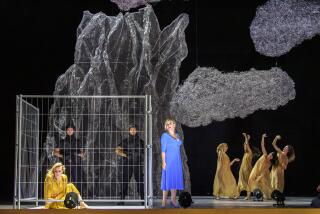Review: A night of Riehm rattles and excites
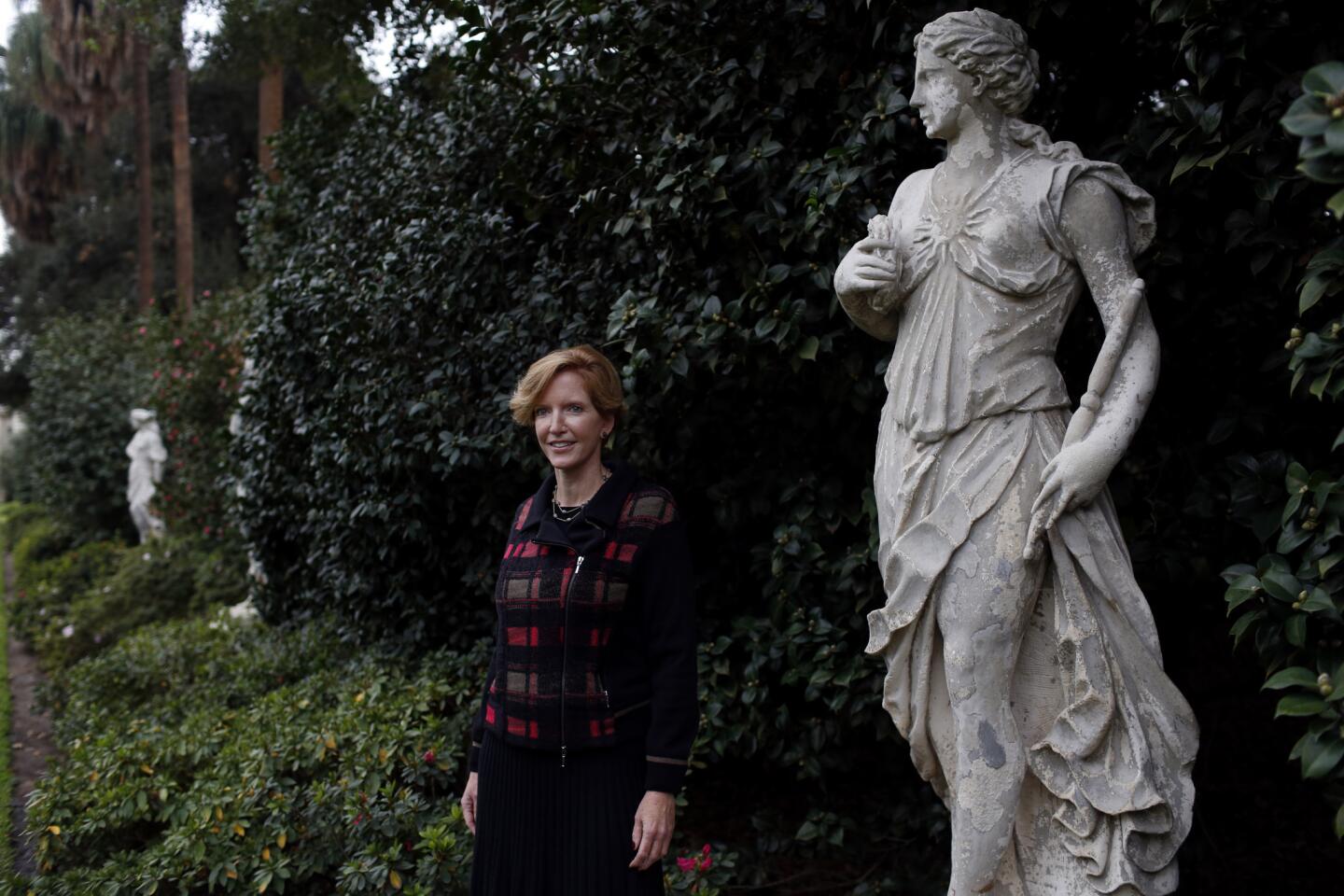
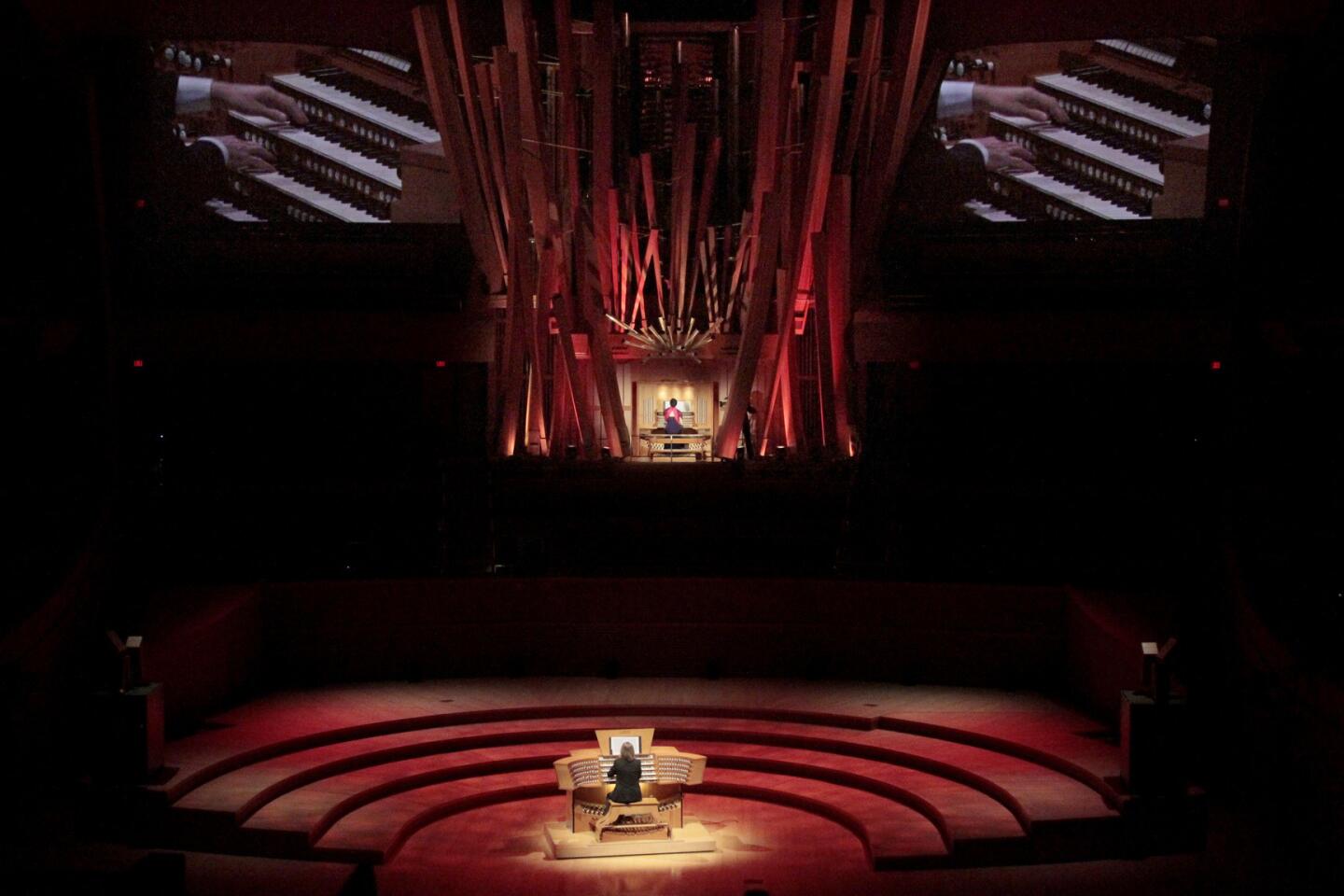
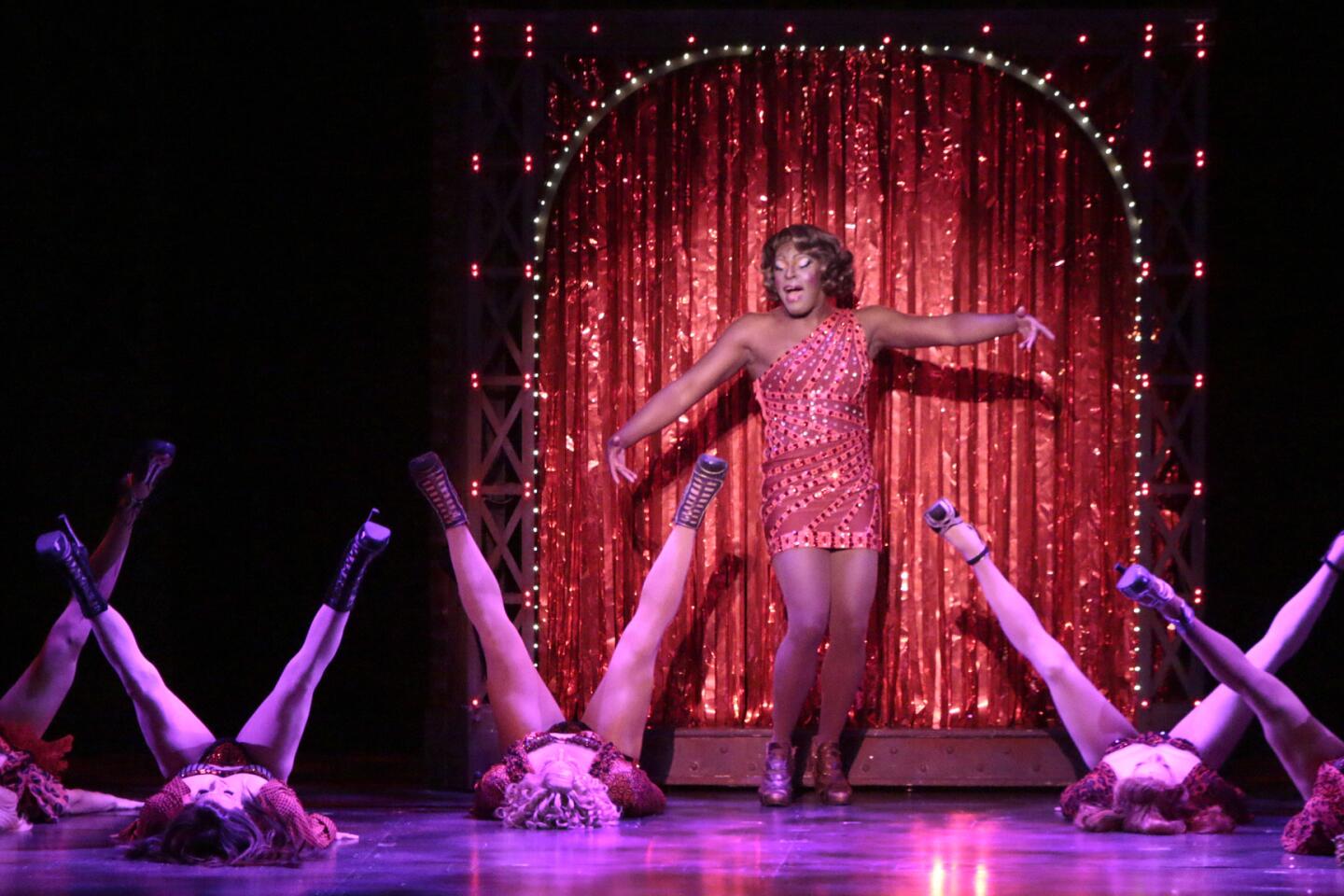
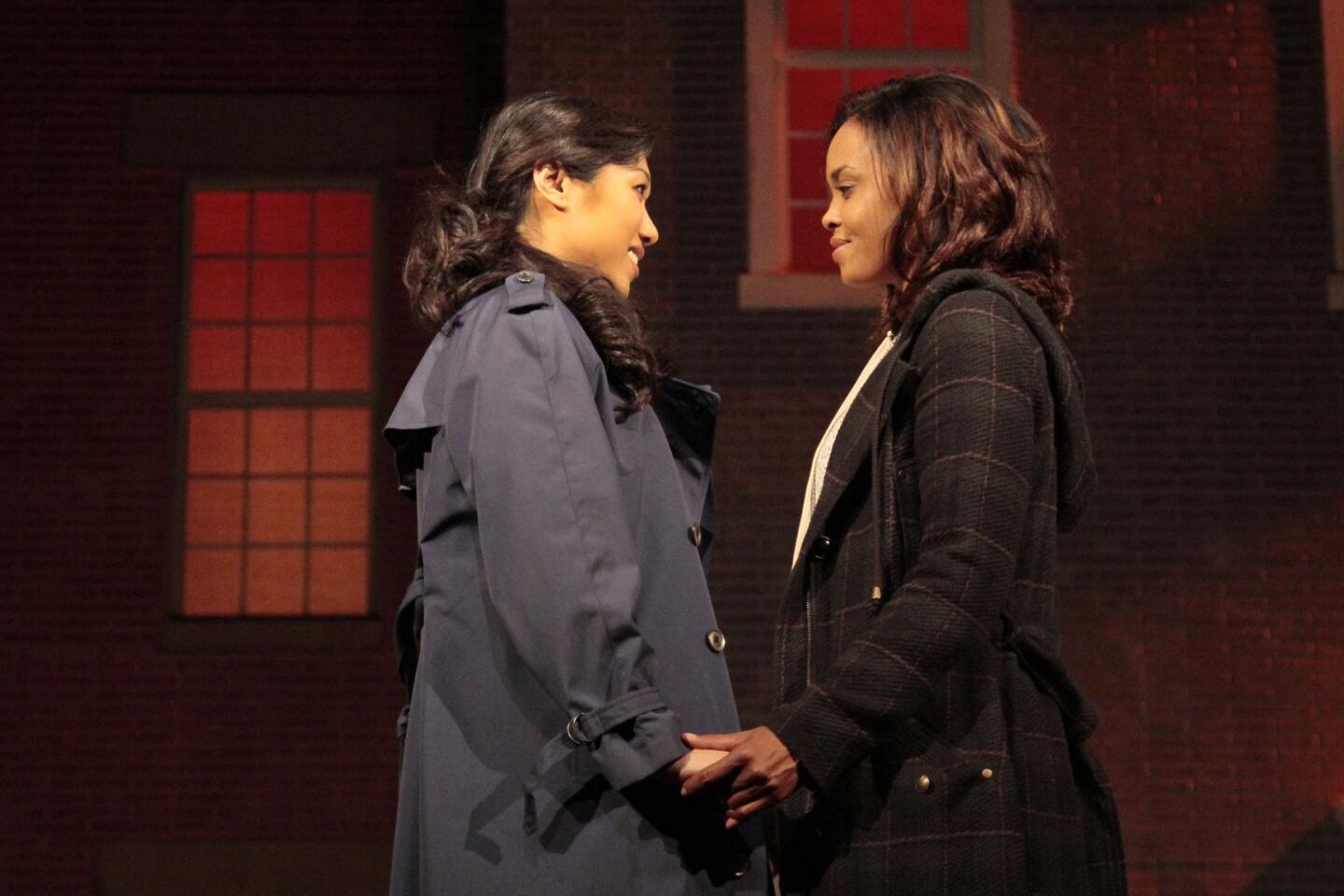

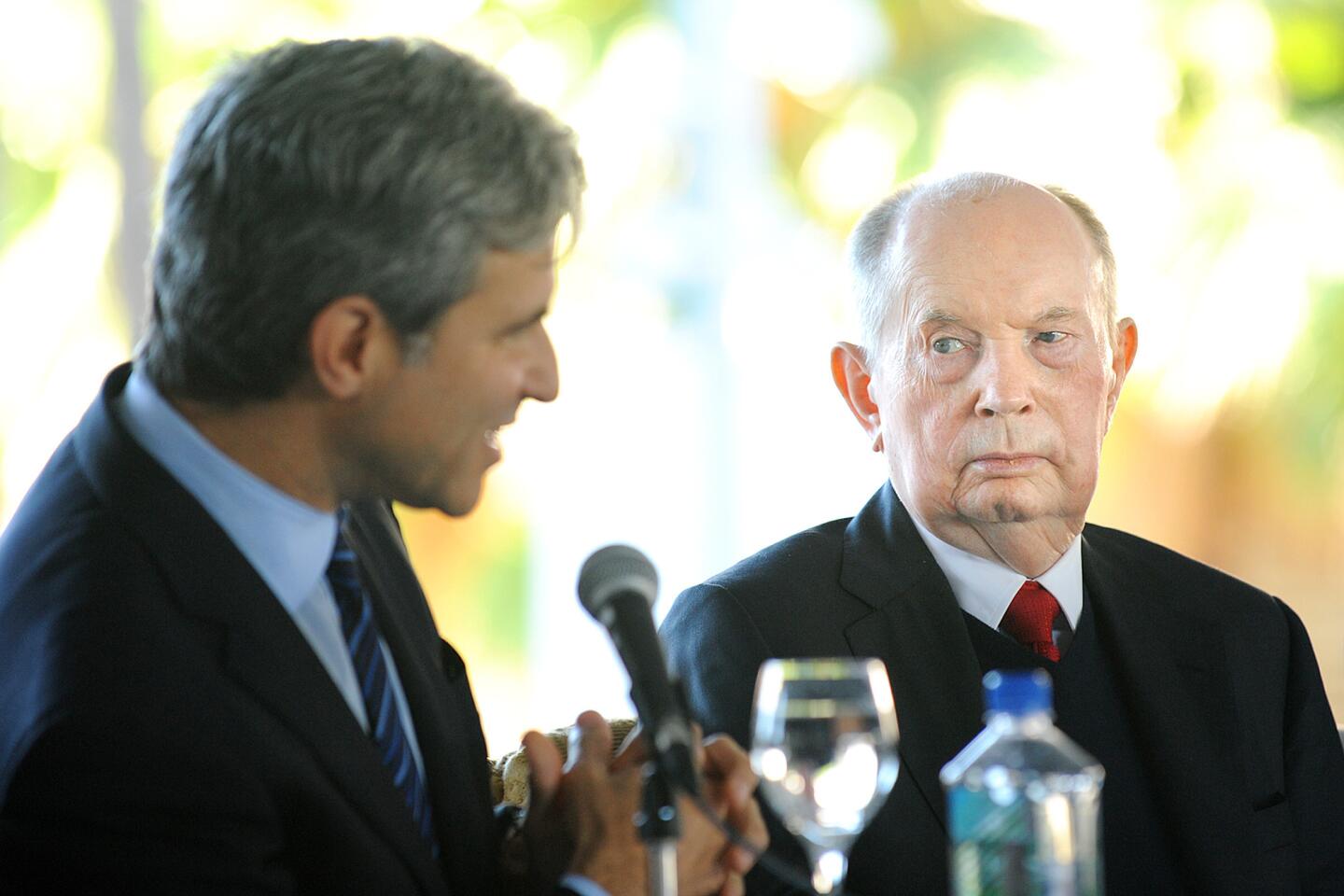

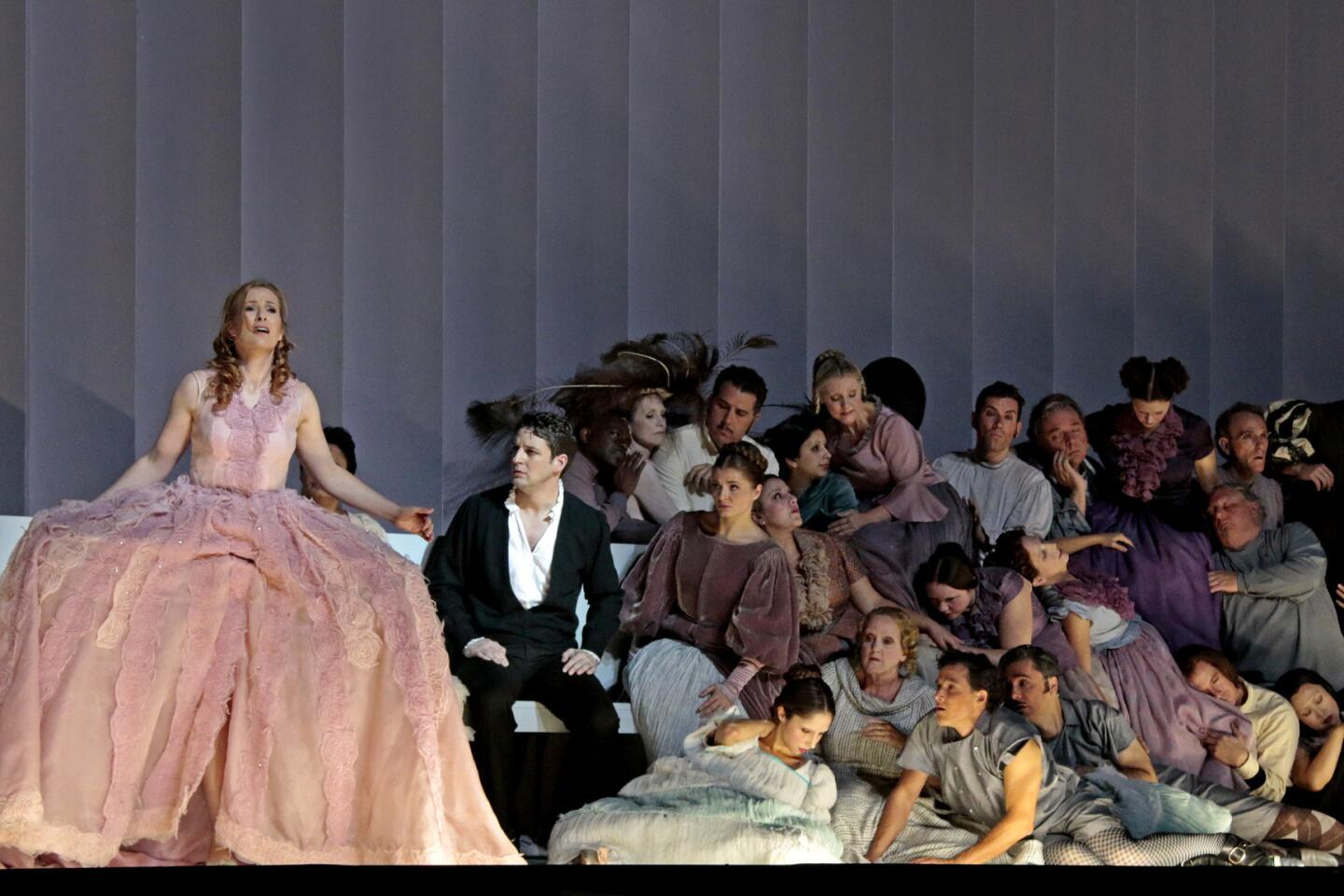
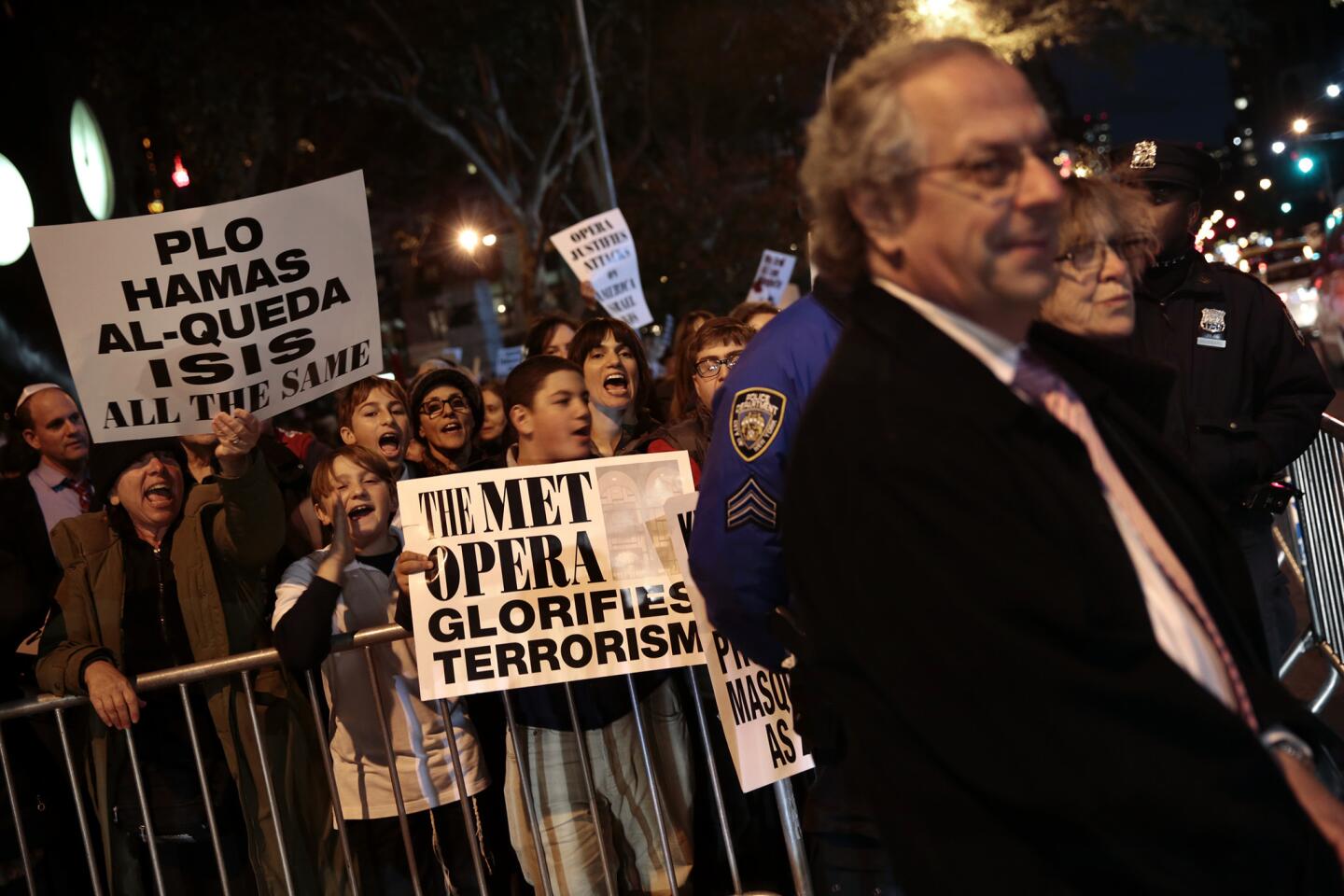


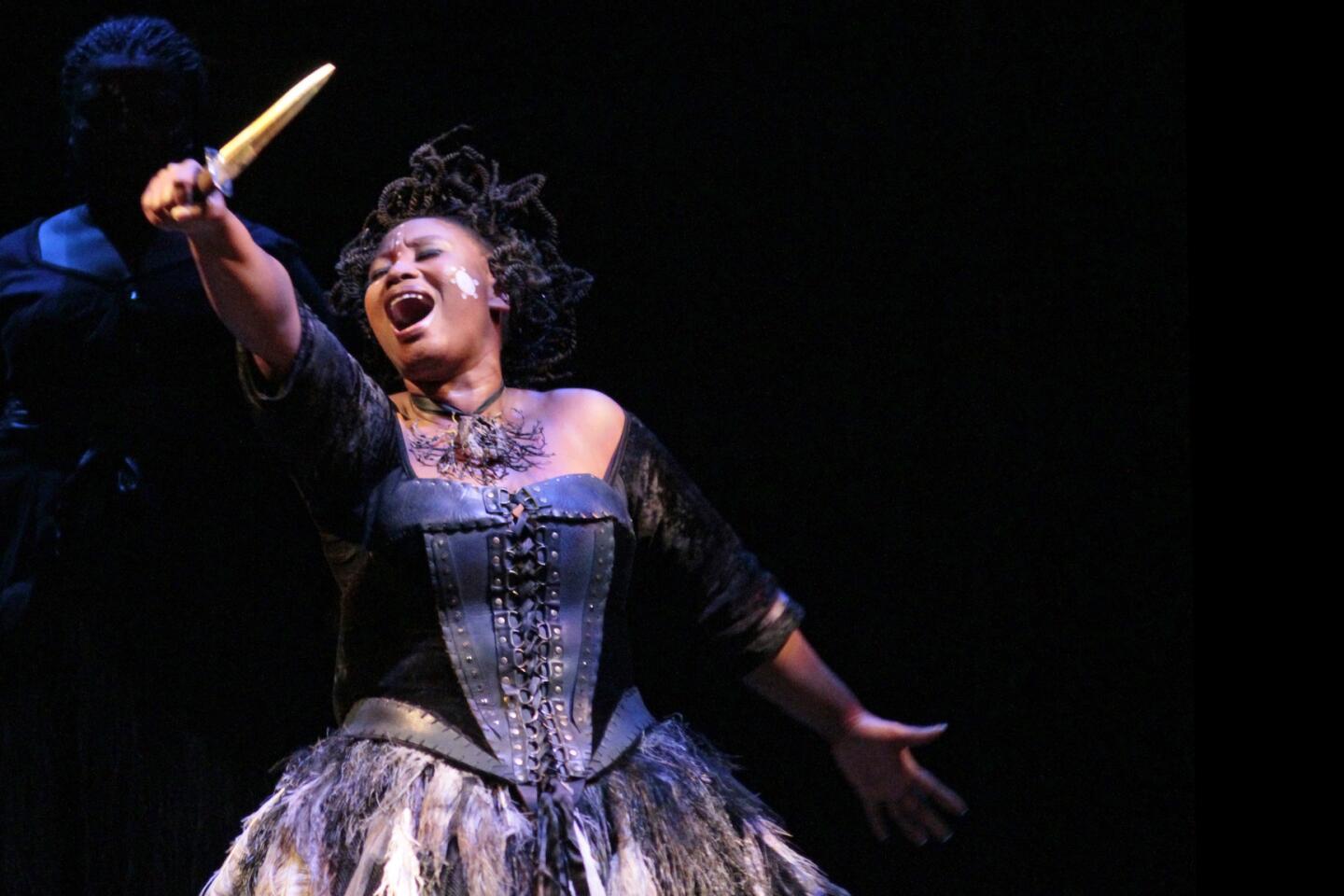
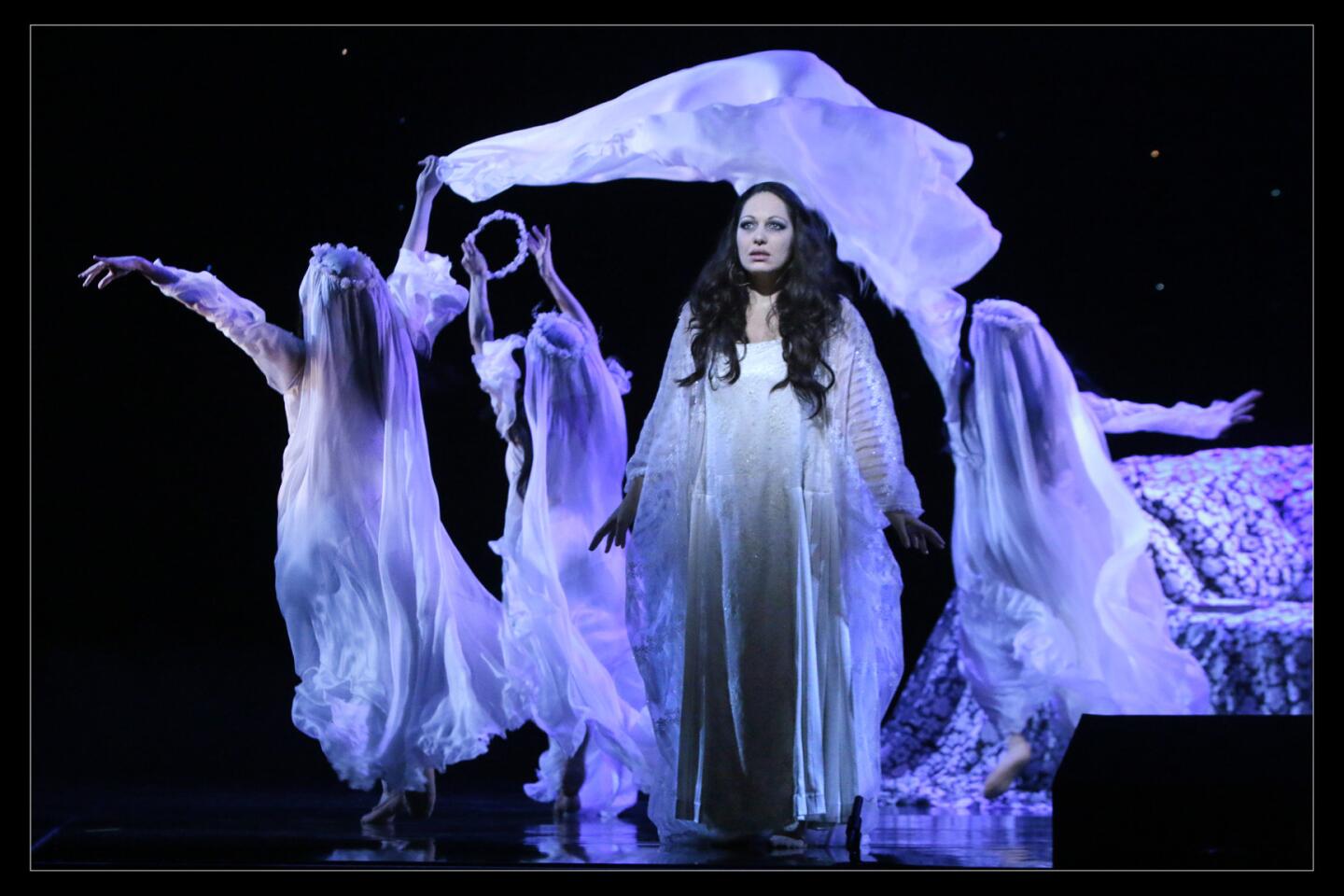
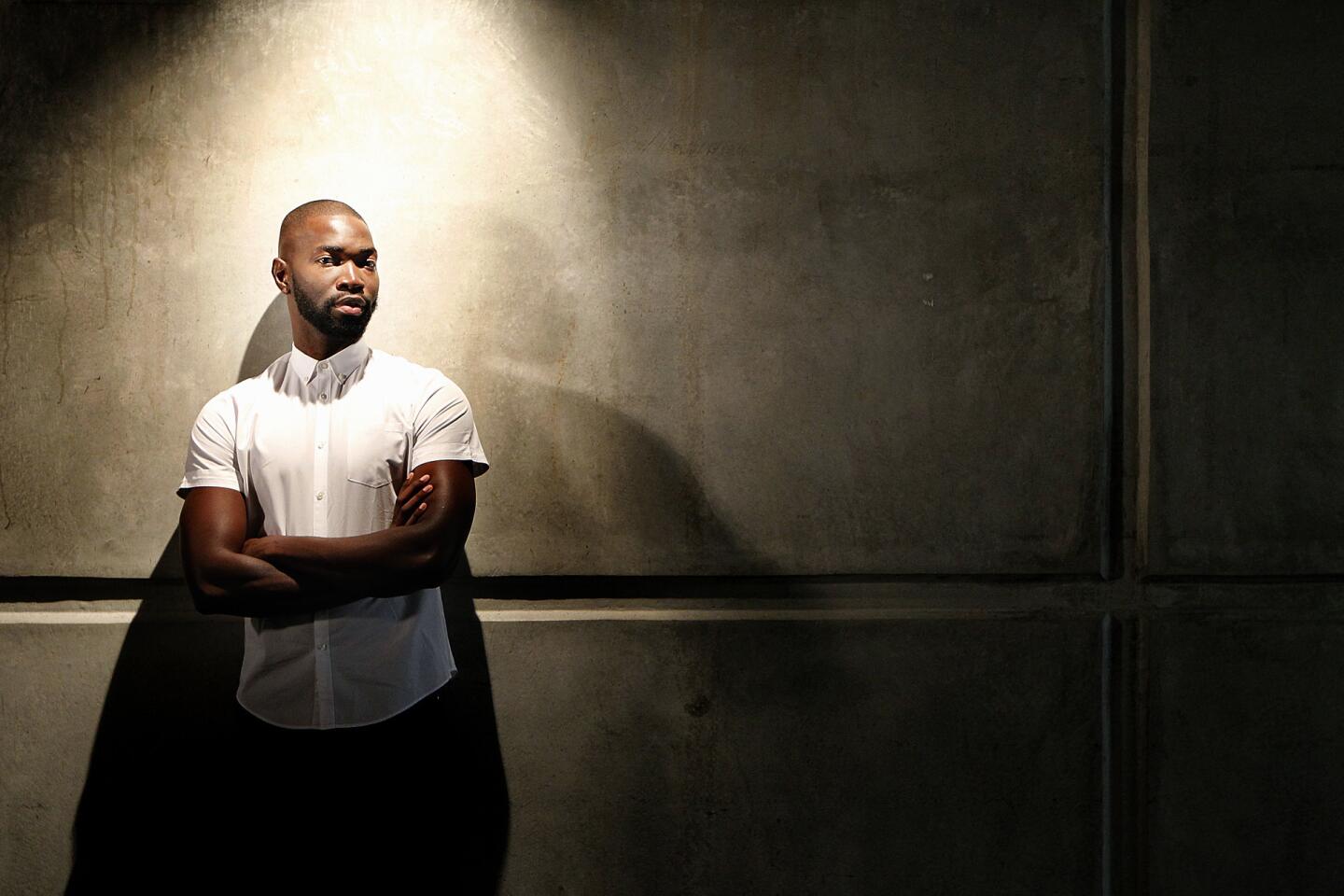
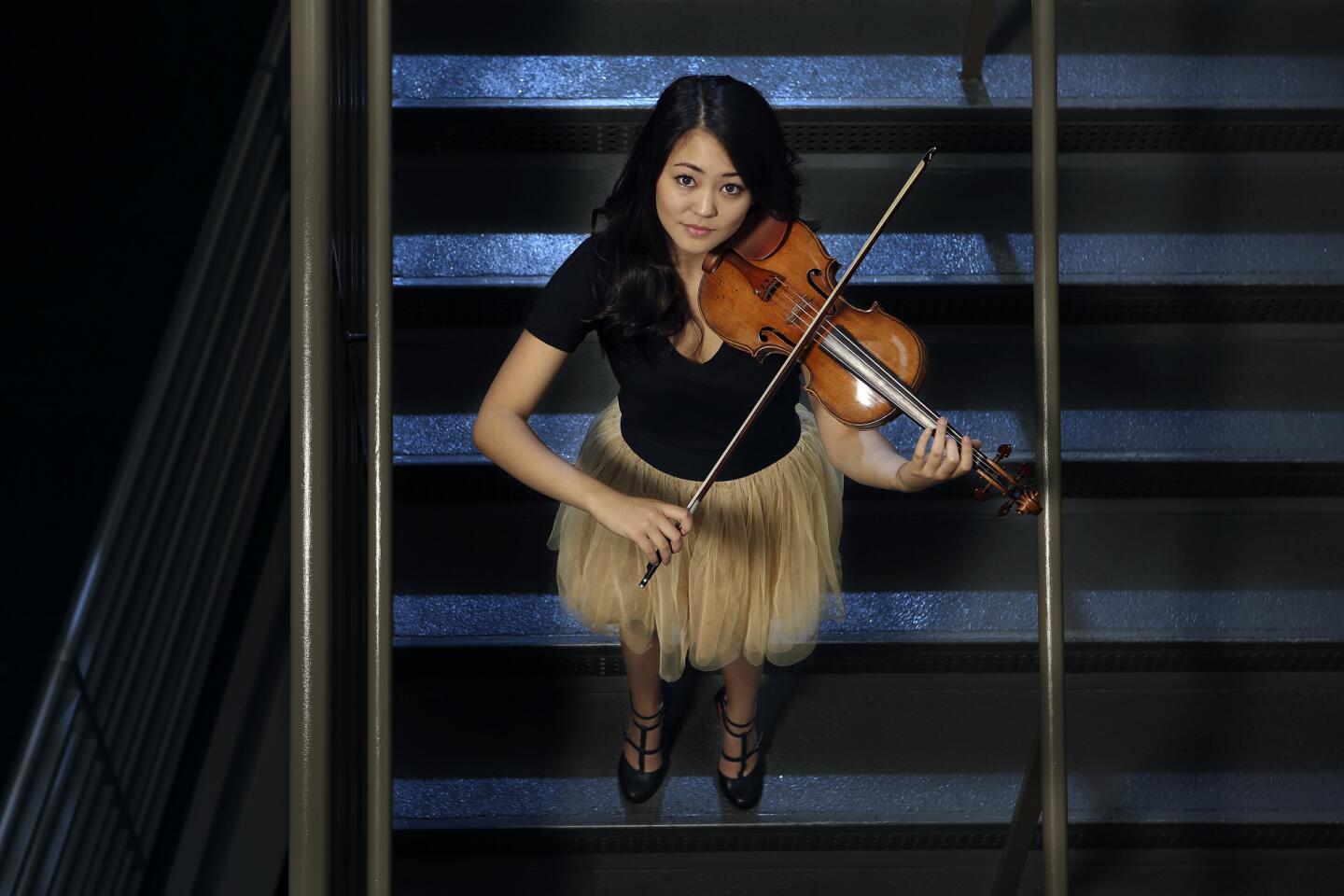
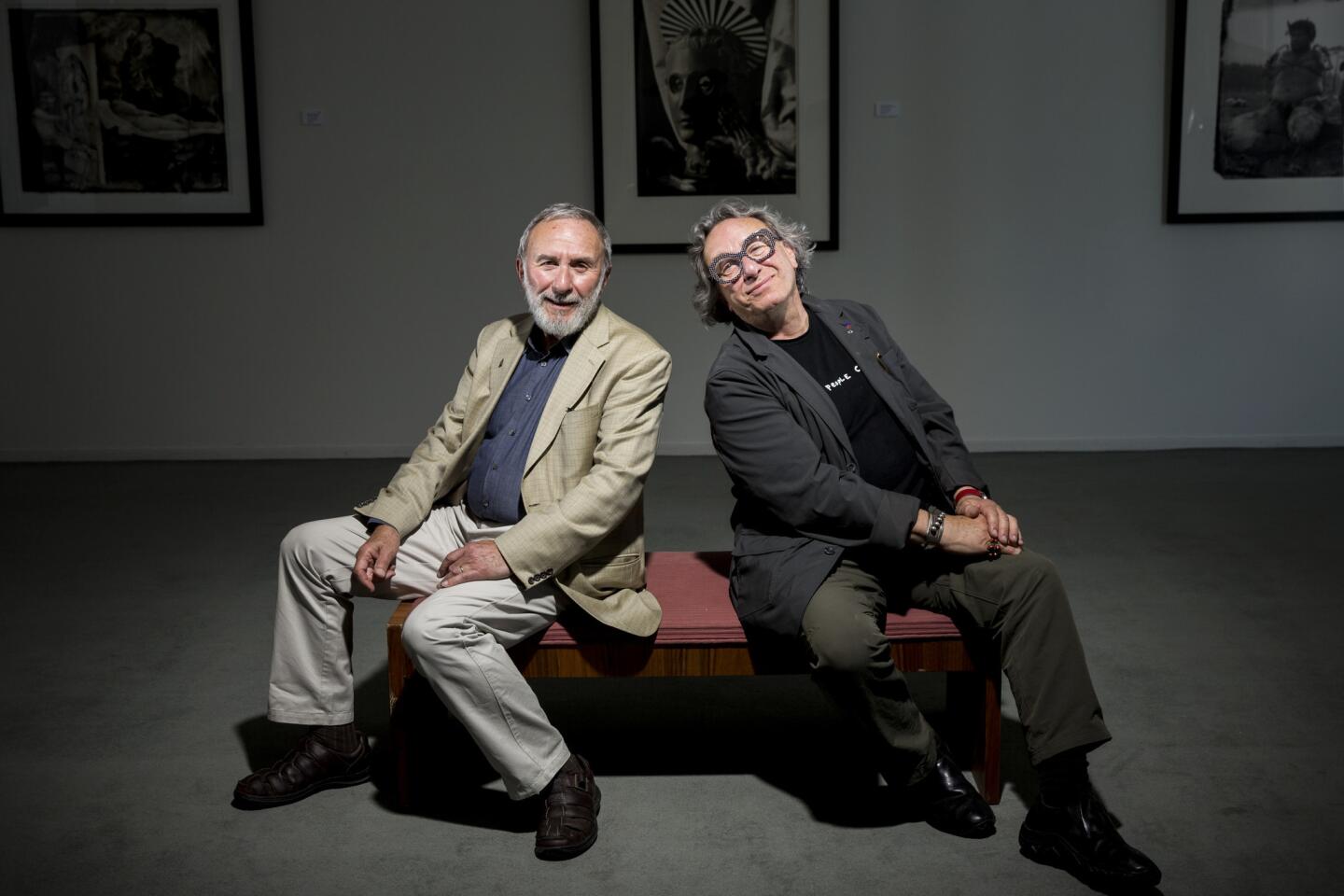
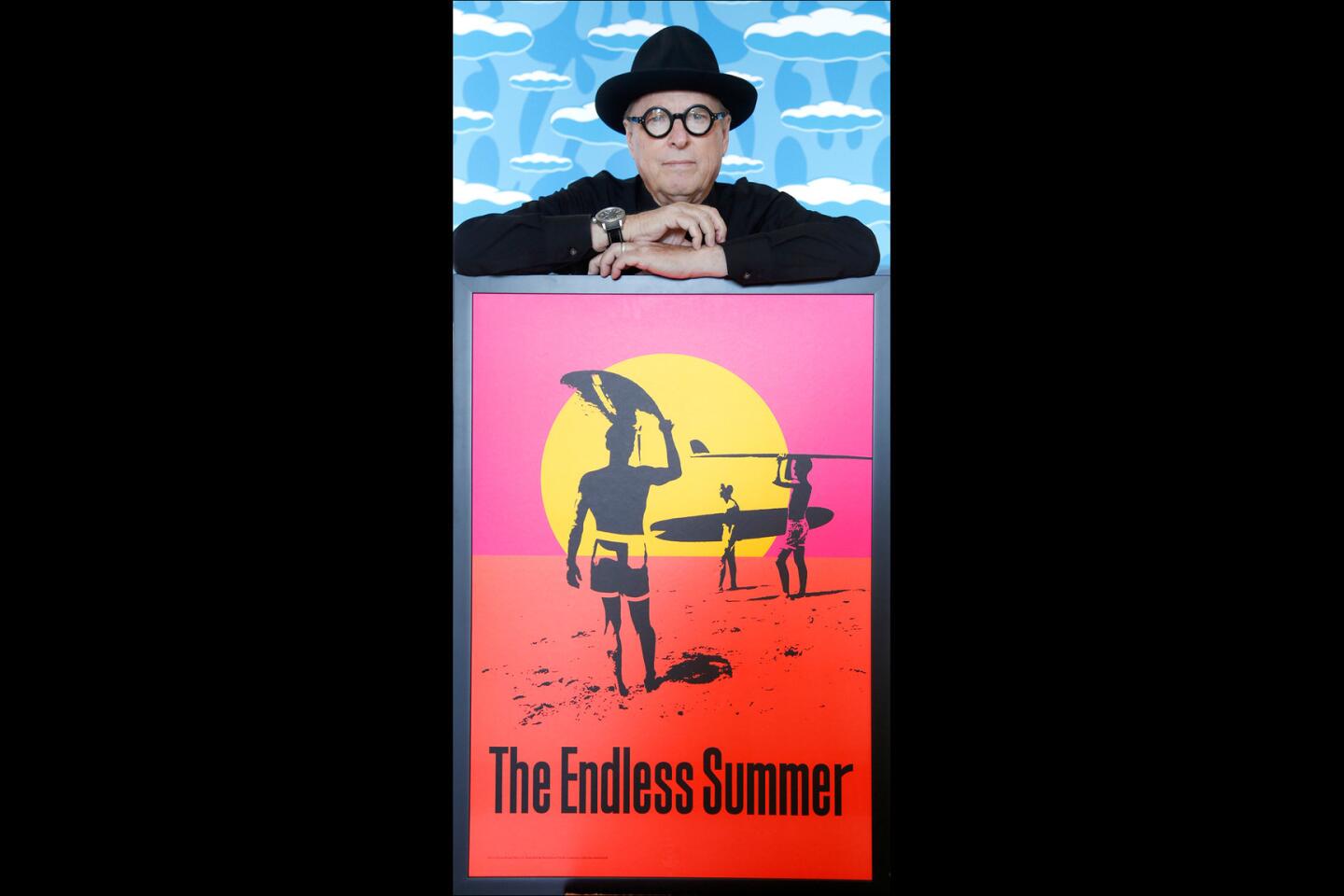
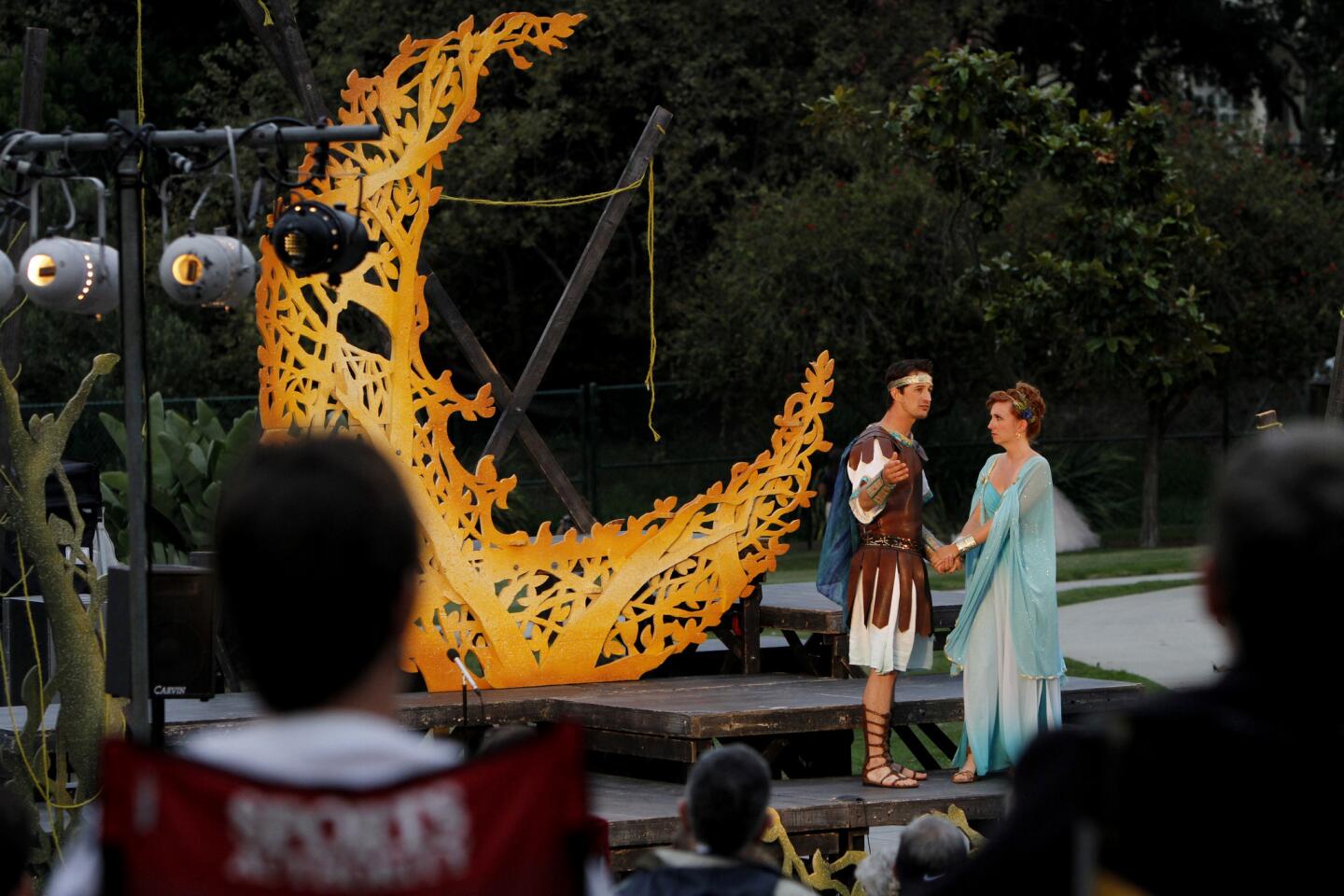

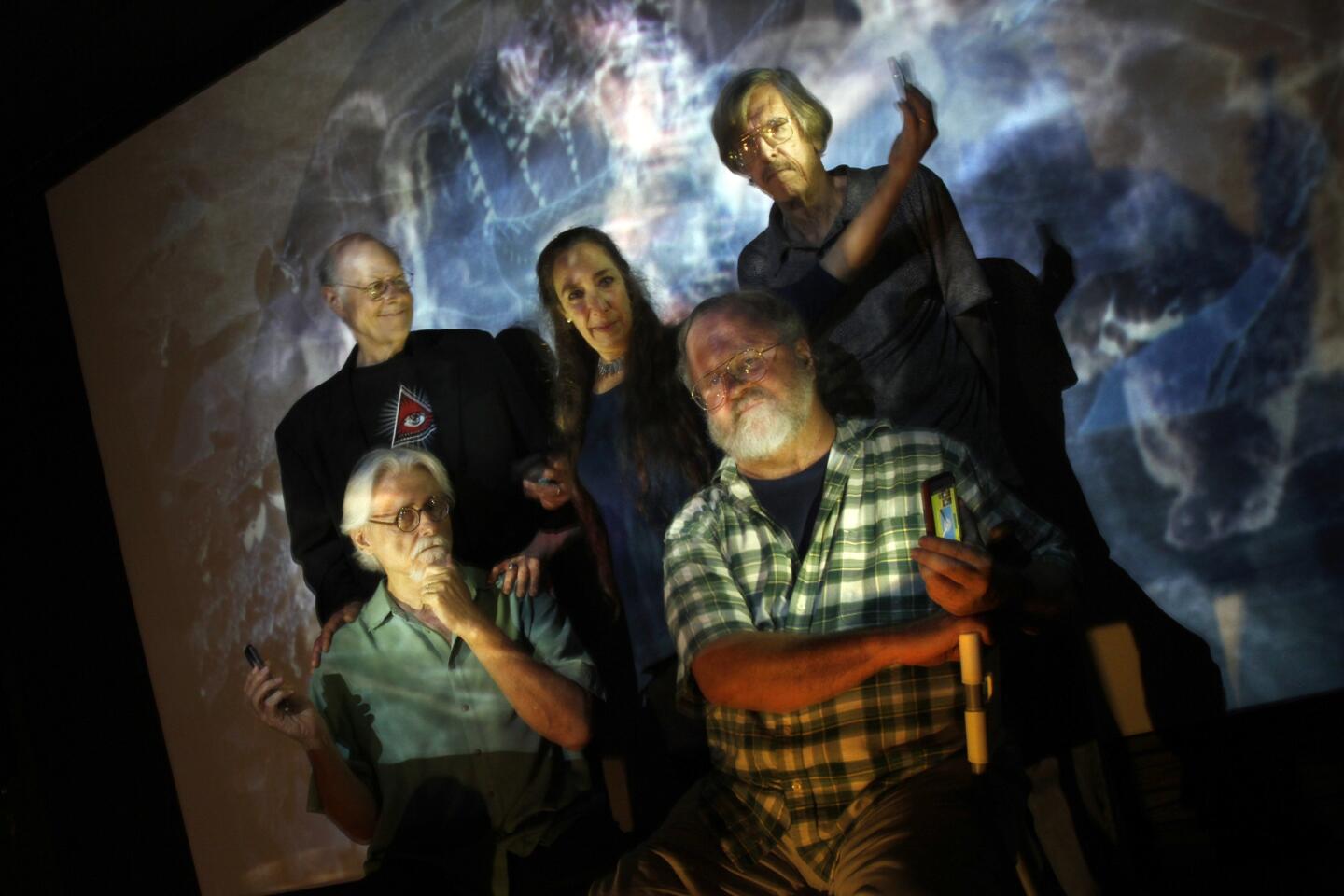



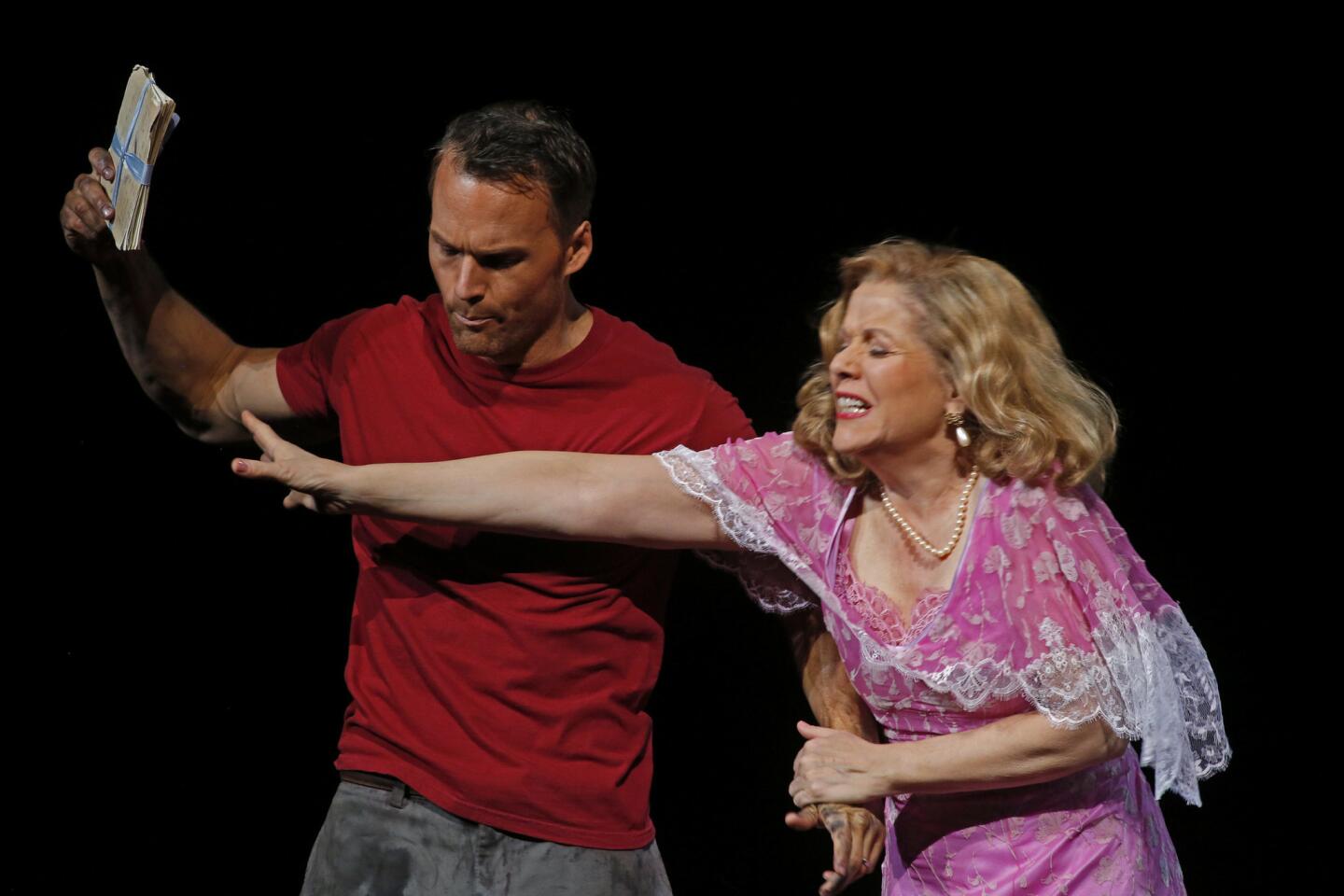
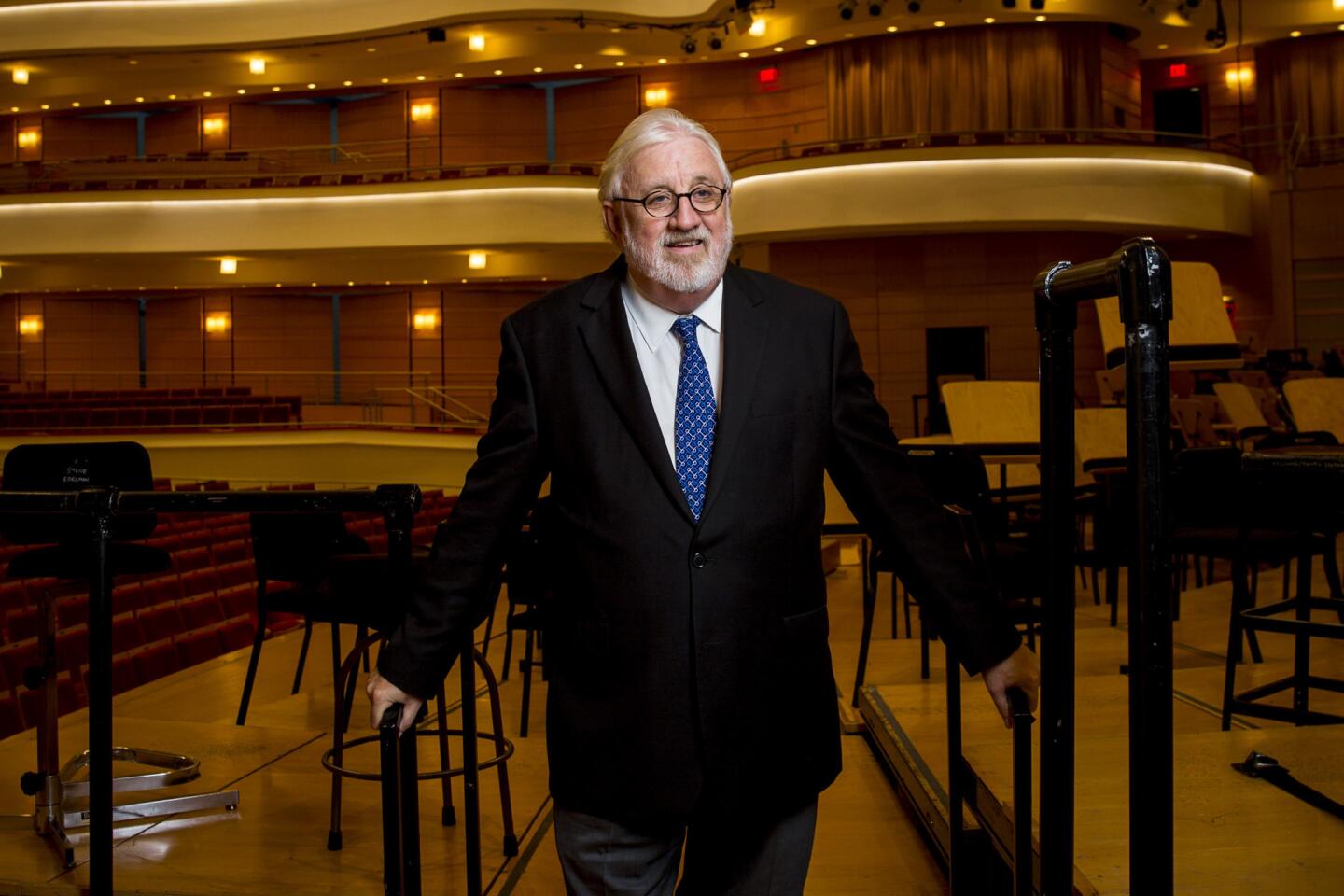
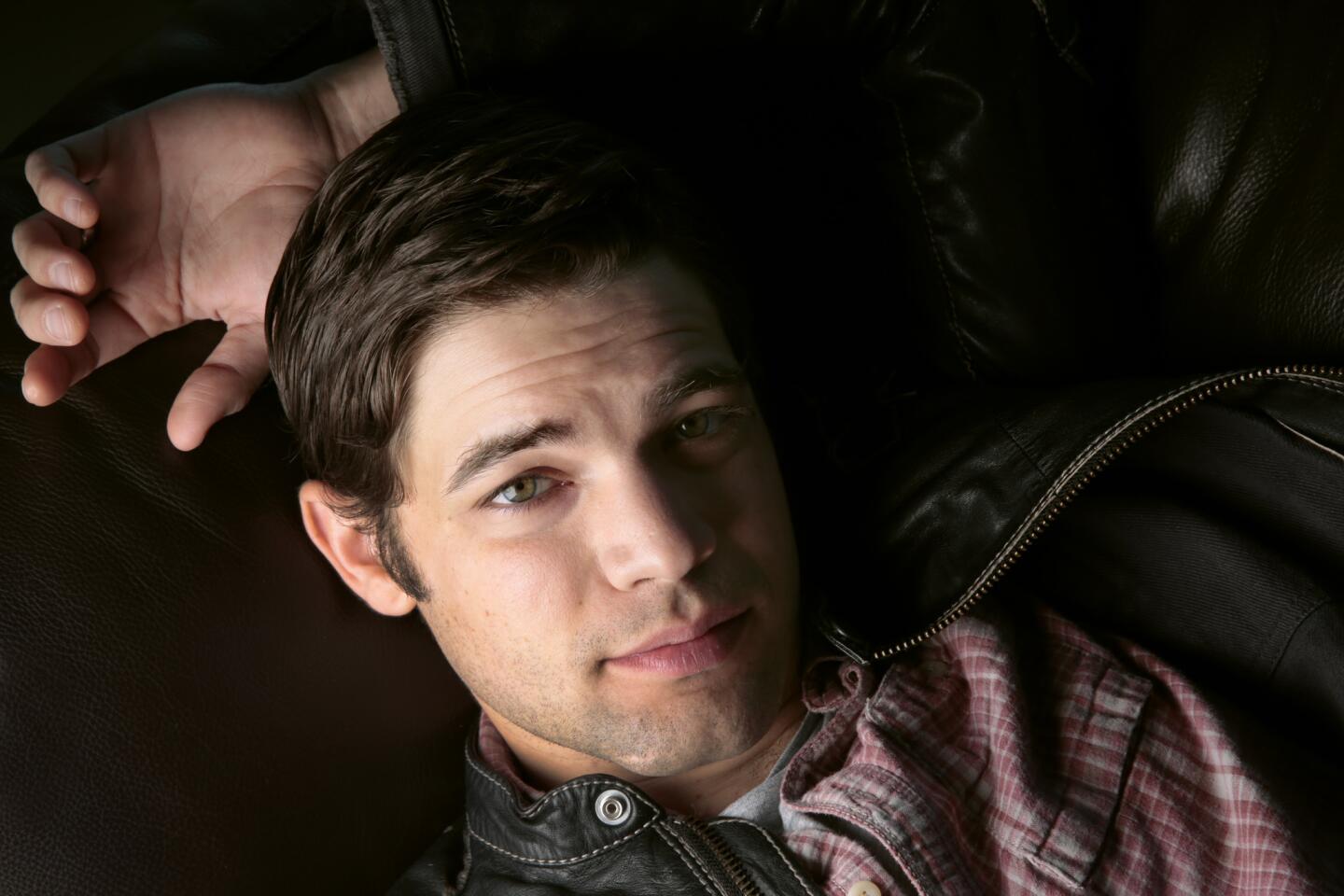

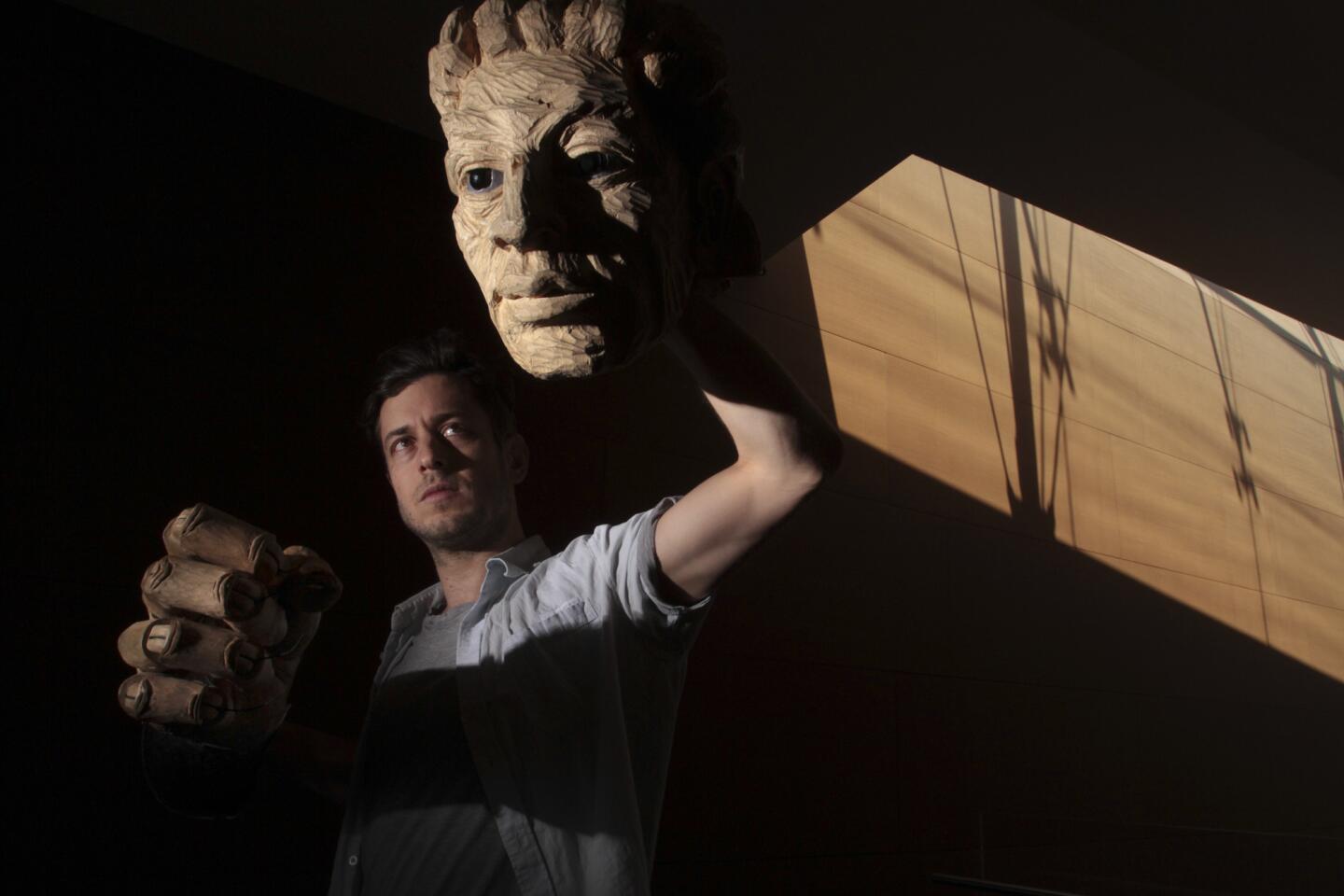
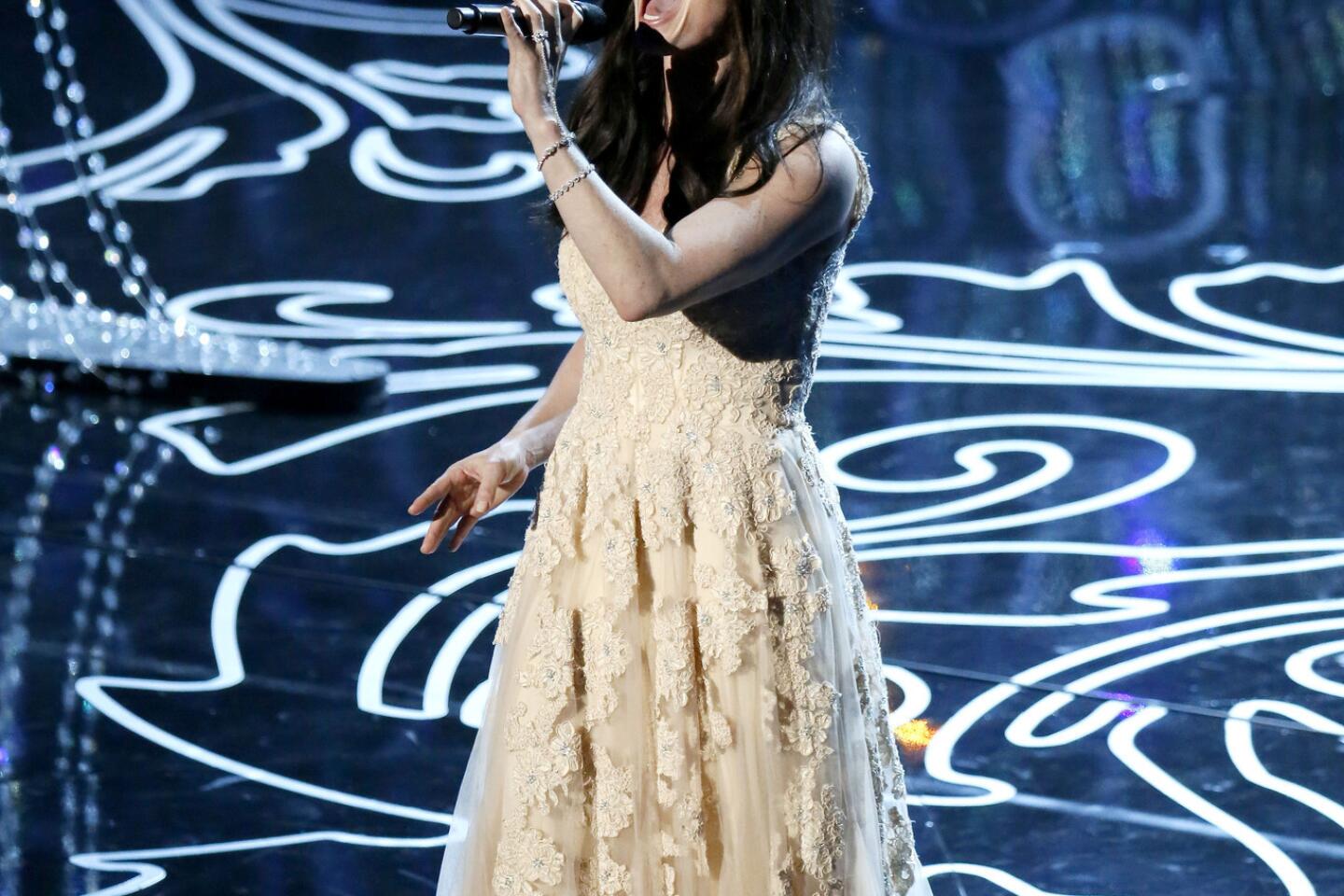
MORE: Oscars 2014: Idina Menzel sings Oscar-winning ‘Let It Go’ from ‘Frozen’
Idina Menzel replaced by ‘Adele Dazeem’ in ‘If/Then’ playbill joke
Adele Dazeem (Idina Menzel) saluted at ‘The Book of Mormon’ (Robert Gauthier / Los Angeles Times)
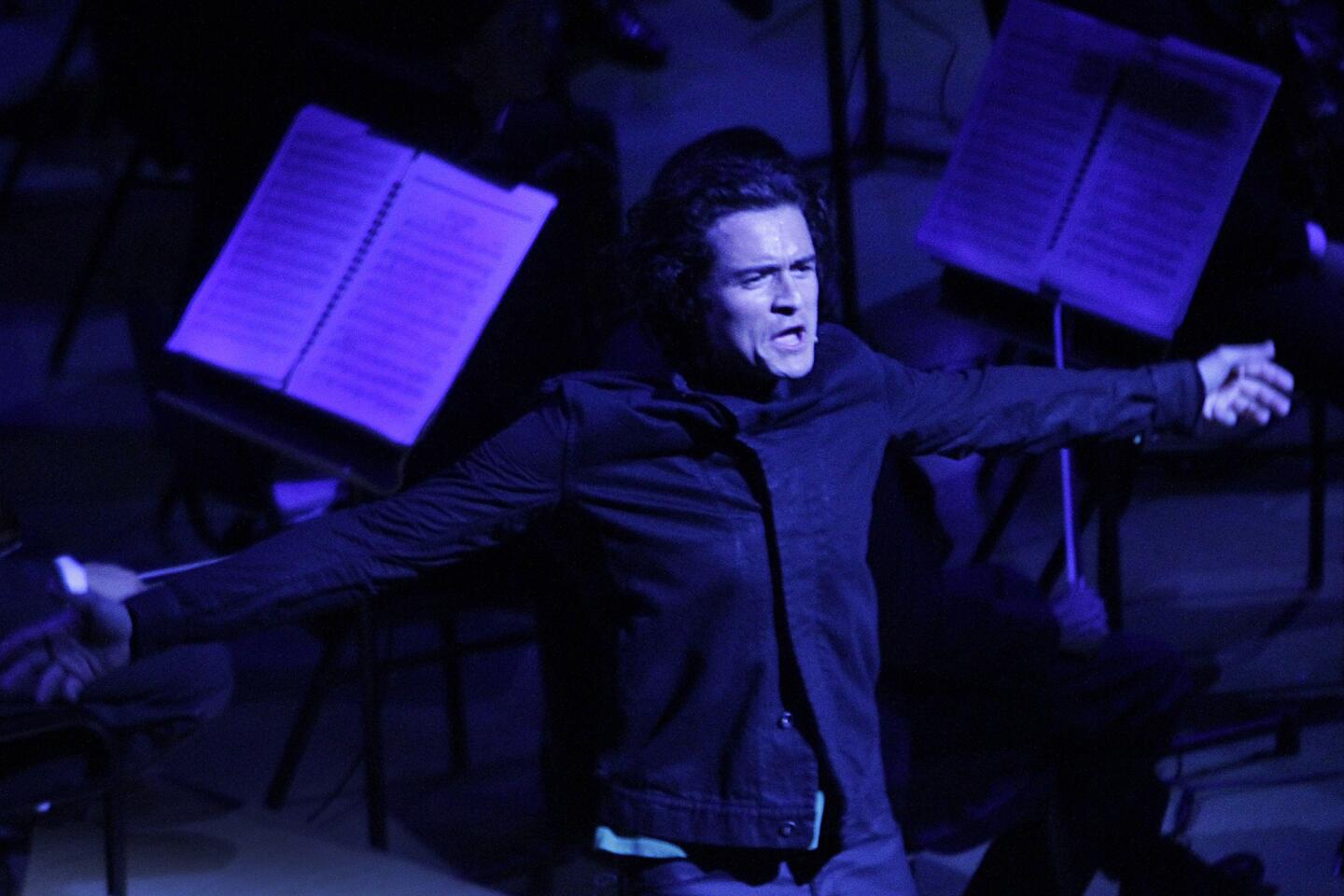
MORE: Orlando Bloom, Joe Morton brighten TchaikovskyFest at Disney Hall
REVIEW: Tchaikovsky on a grand scale (Lawrence K. Ho / Los Angeles Times)
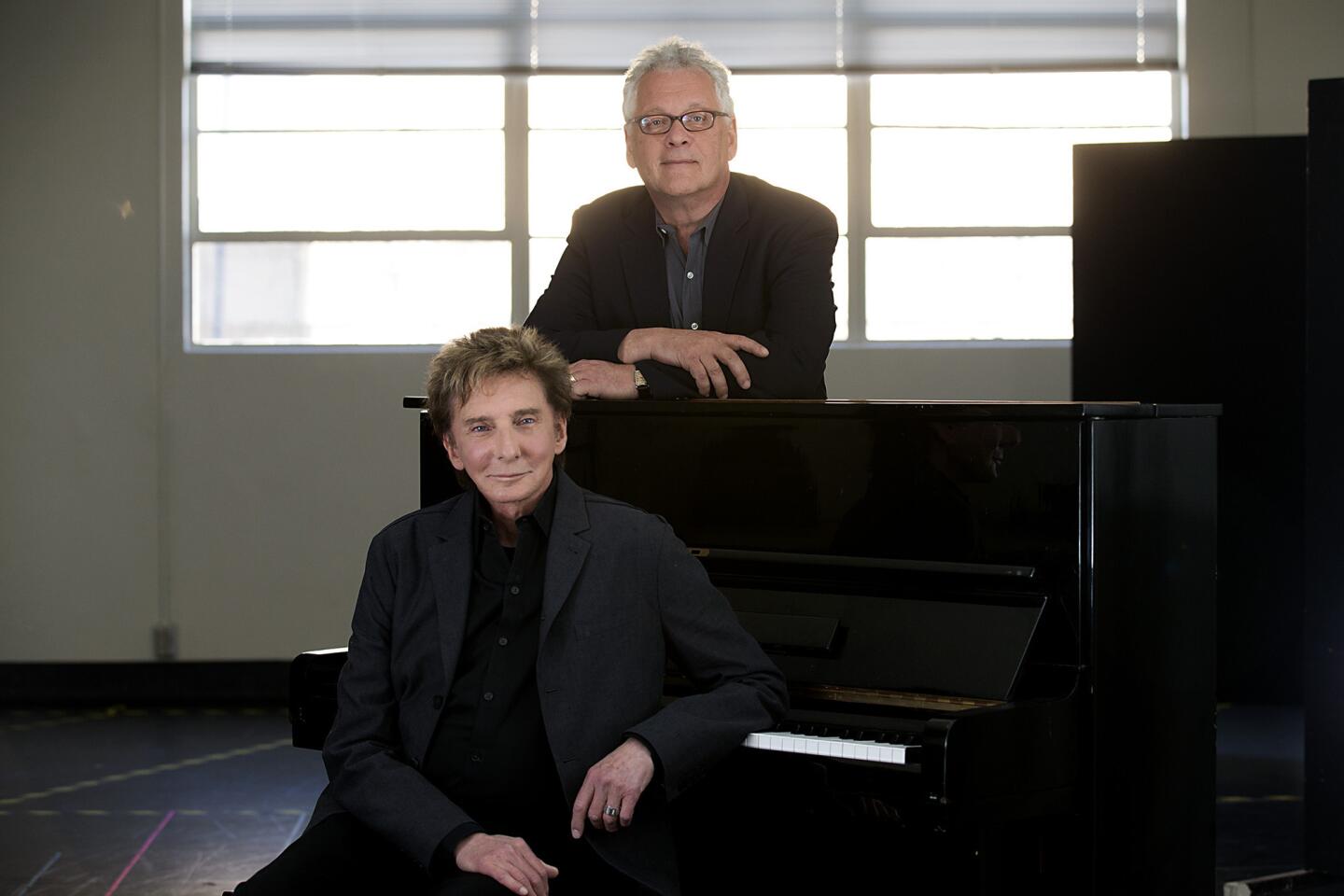
REVIEW: Barry Manilow’s ‘Harmony’ musical can sing but needs work (Luis Sinco / Los Angeles Times)
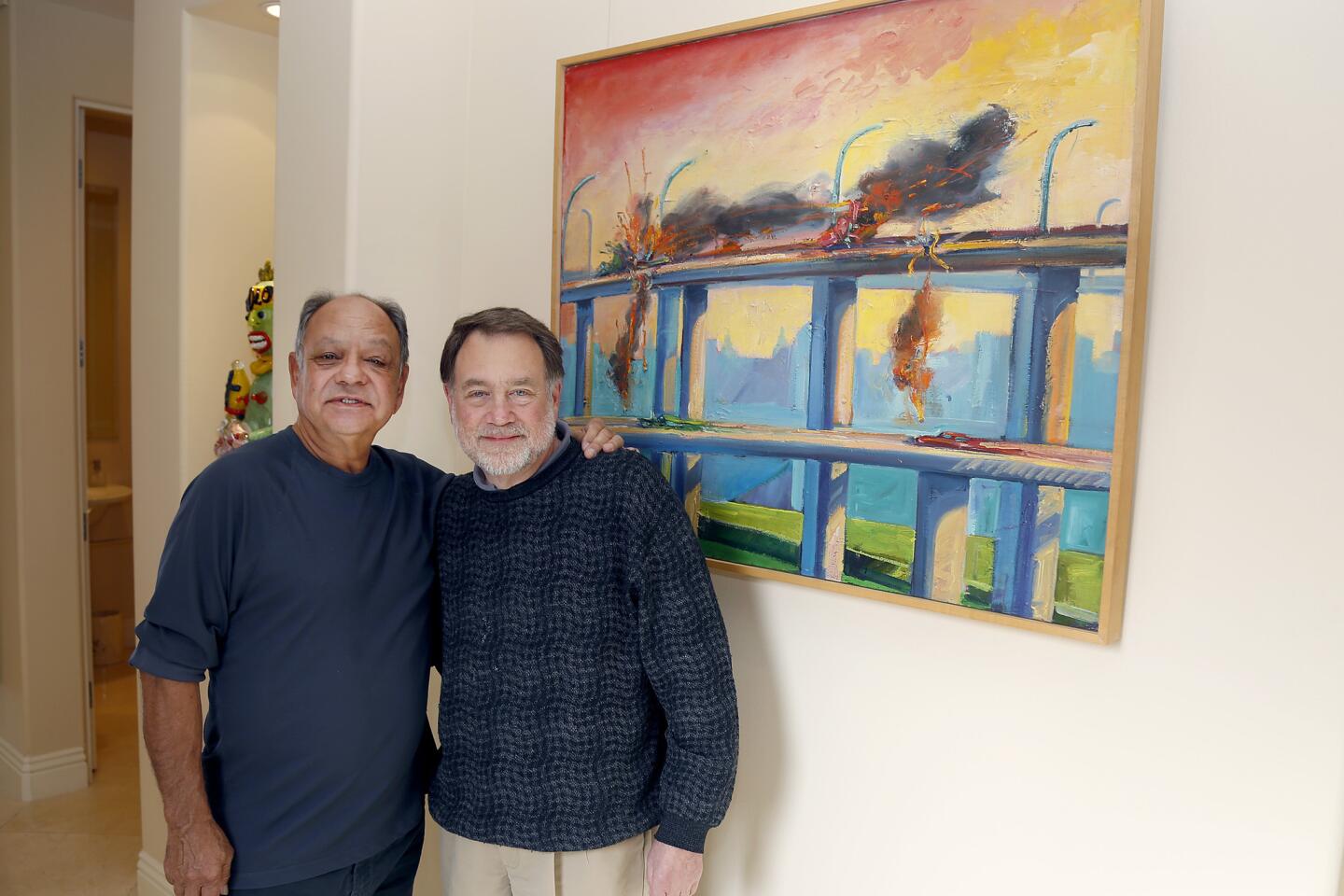
MORE: Carlos Almaraz’s time is coming, nearly 30 years after death (Kirk McKoy / Los Angeles Times)
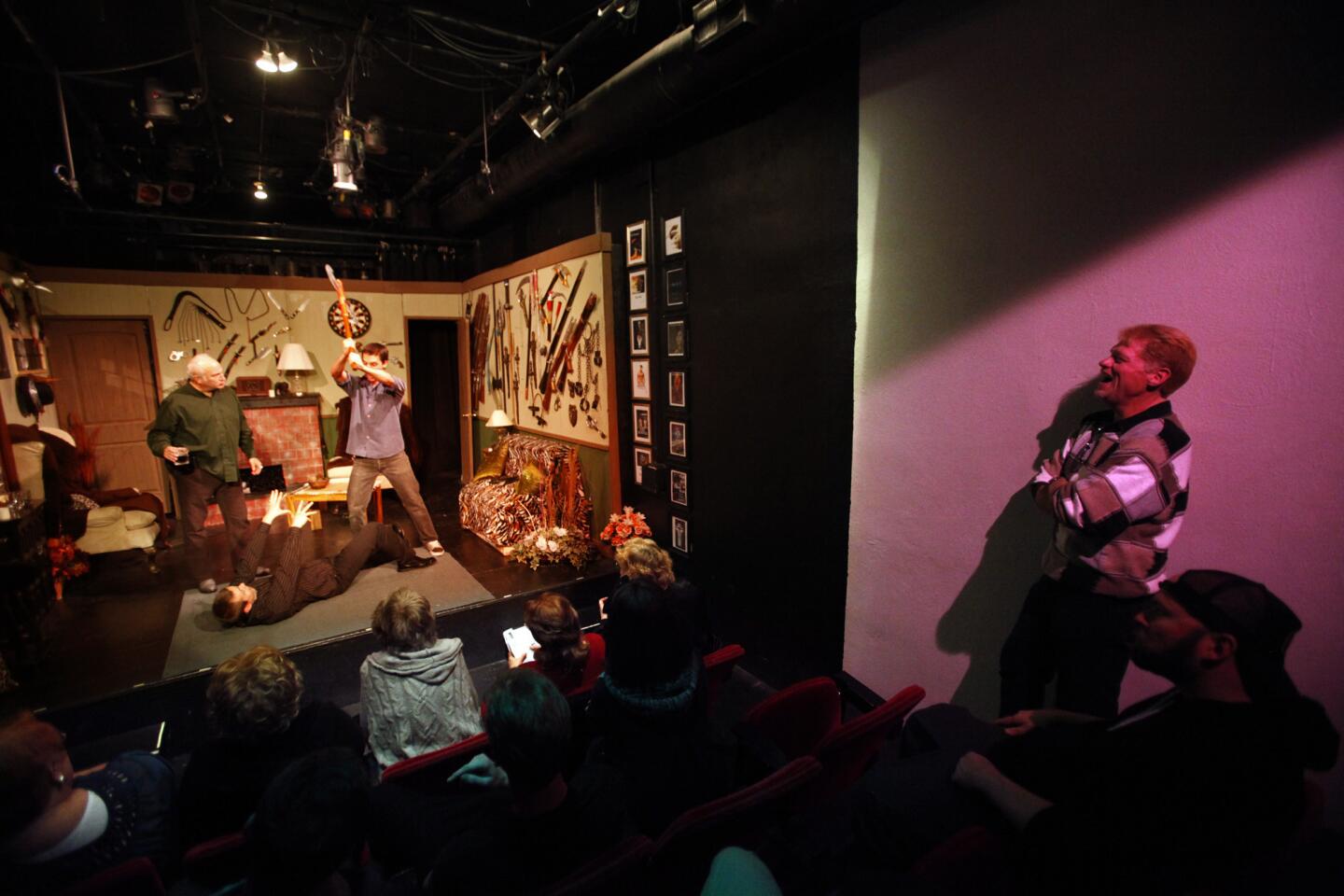
MORE: Hollywood’s Theatre Row sees exits stage right, left as scene changes
INTERACTIVE: Hollywood’s Theatre Row (Genaro Molina / Los Angeles Times)
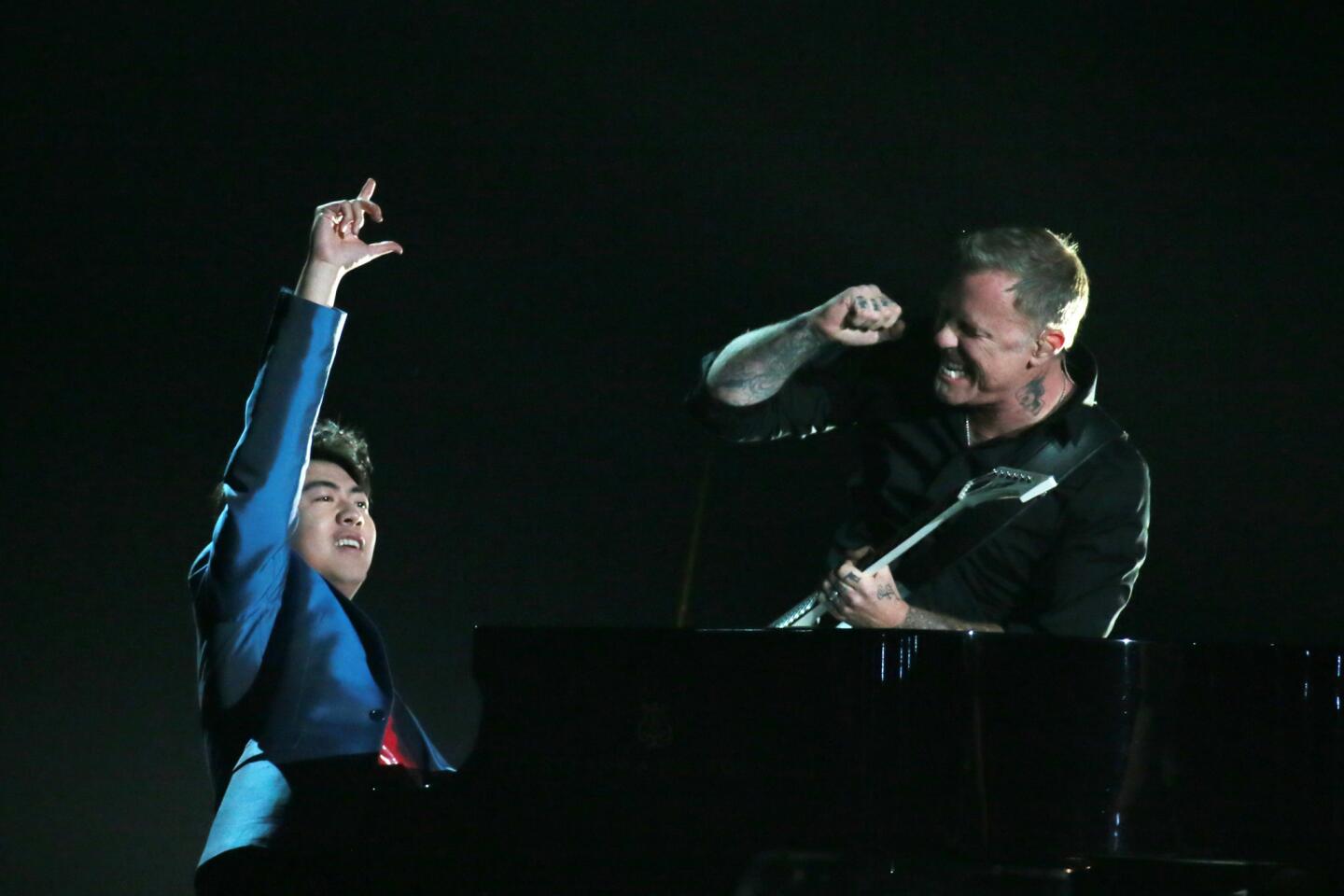
More: Grammys 2014: Lang Lang performs ‘One’ with Metallica (Robert Gauthier / Los Angeles Times)
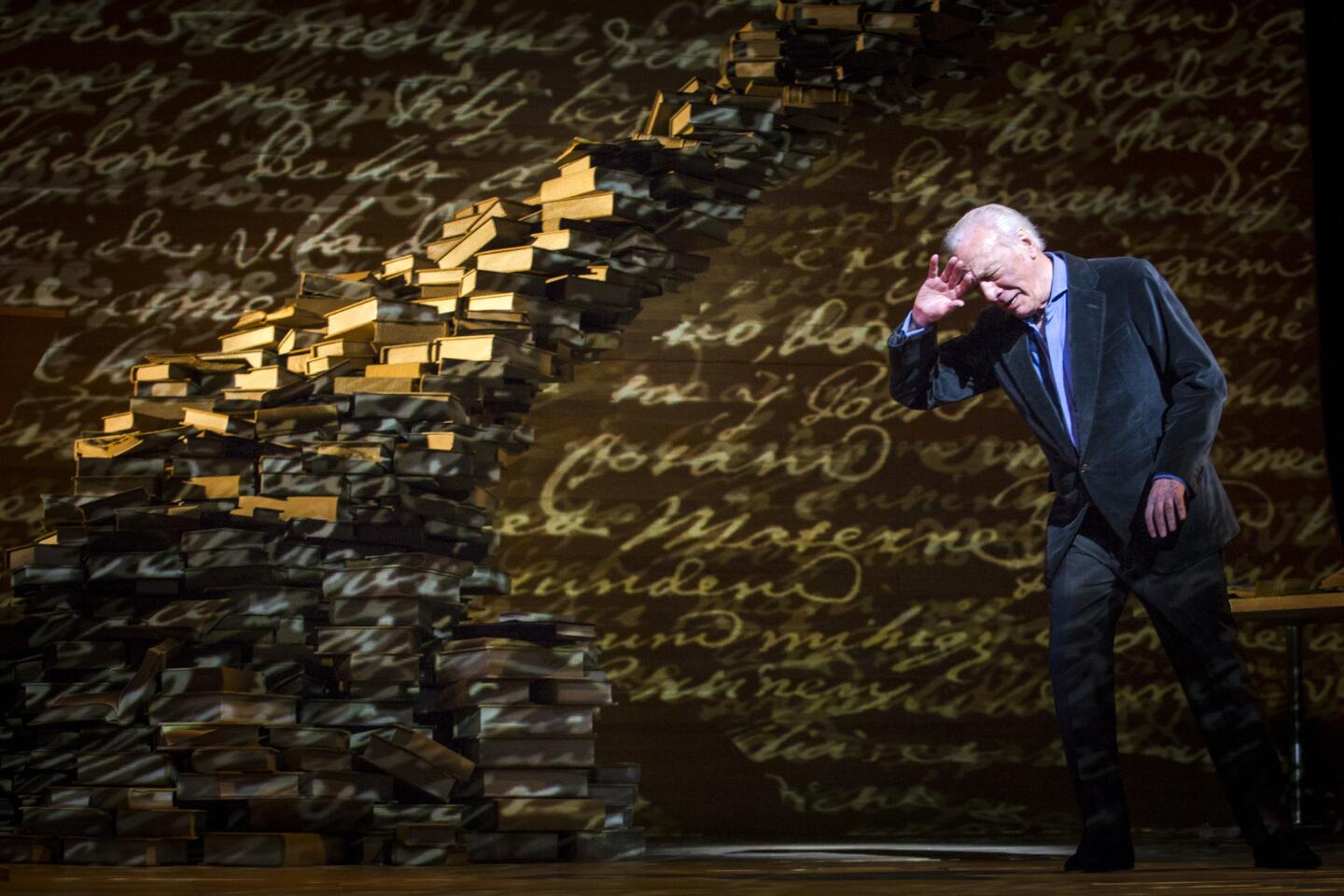
Review: Christopher Plummer, a man of letters, says ‘A Word or Two’ (Doriane Raiman / Los Angeles Times)
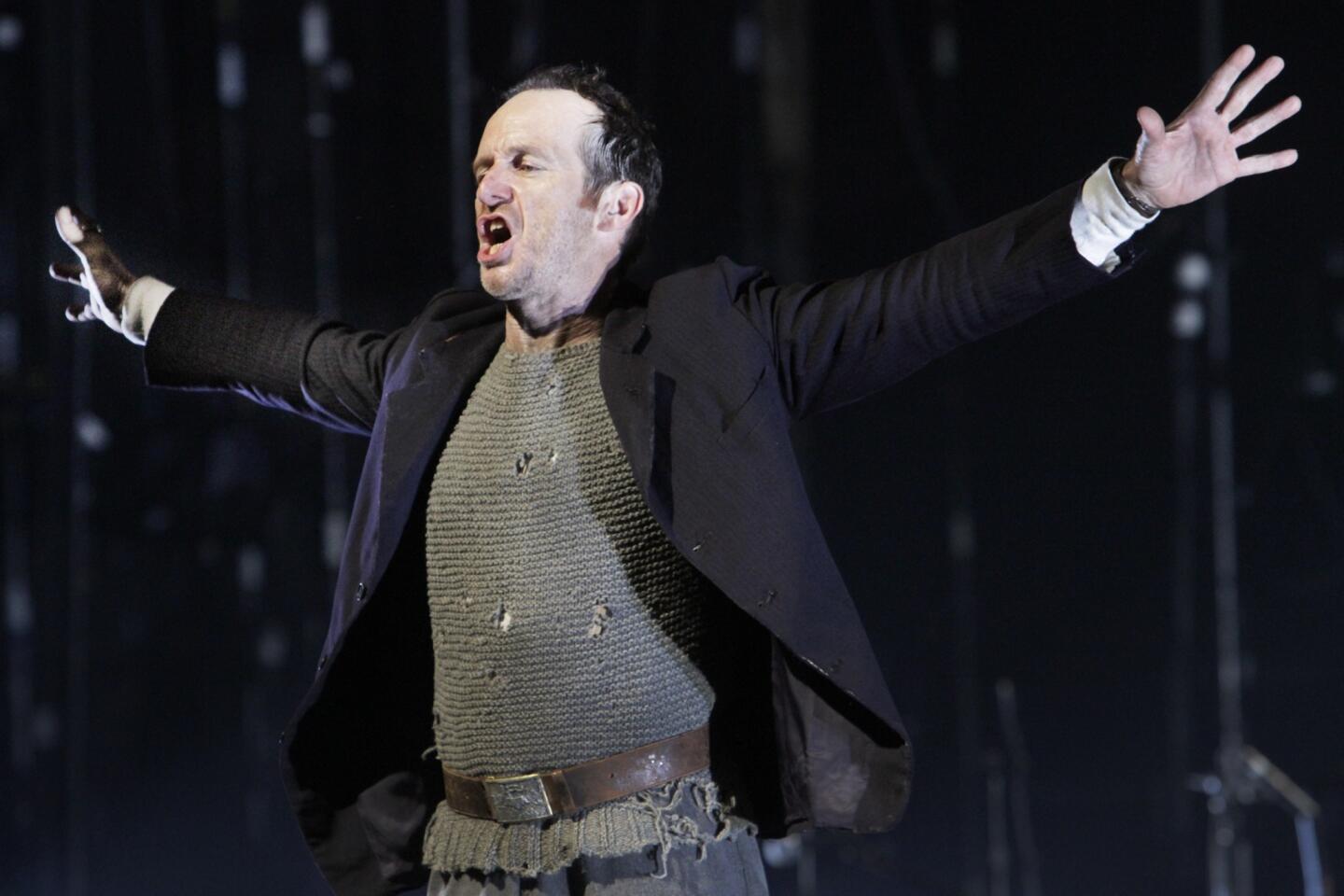
REVIEW: A poet embedded among troops lives to tell ‘An Iliad’ (Lawrence K. Ho / Los Angeles Times)

MORE: New MOCA director Philippe Vergne is a museum veteran
New MOCA director Philippe Vergne plans an artist-enabling museum (Carolyn Cole / Los Angeles Times)

MORE: A ‘Beautiful’ tapestry of Carole King’s life (Carolyn Cole / Los Angeles Times)
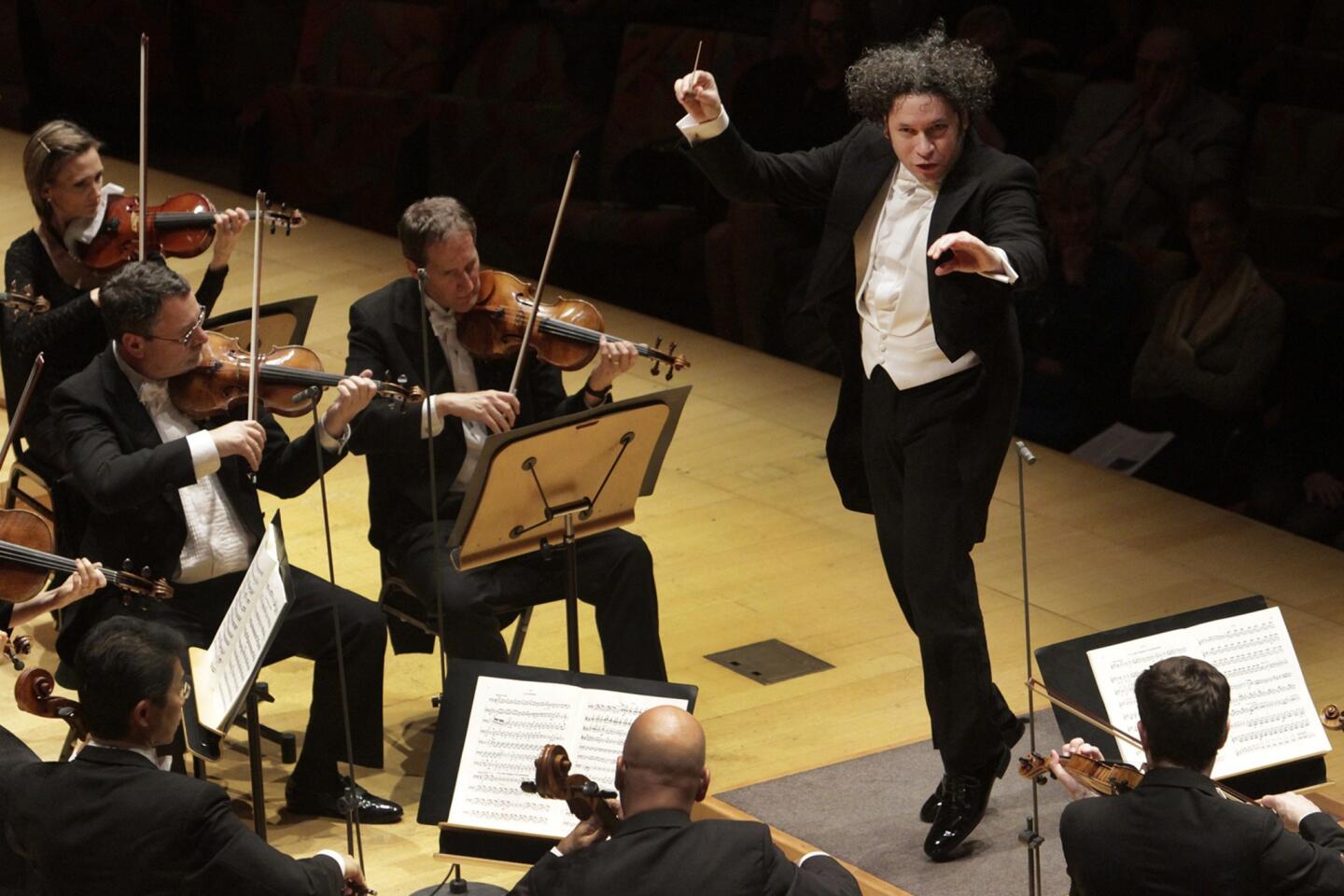
REVIEW: L.A. Phil, Dudamel reinvigorate Tchaikovsky’s ‘Nutcracker’ (Lawrence K. Ho / Los Angeles Times)
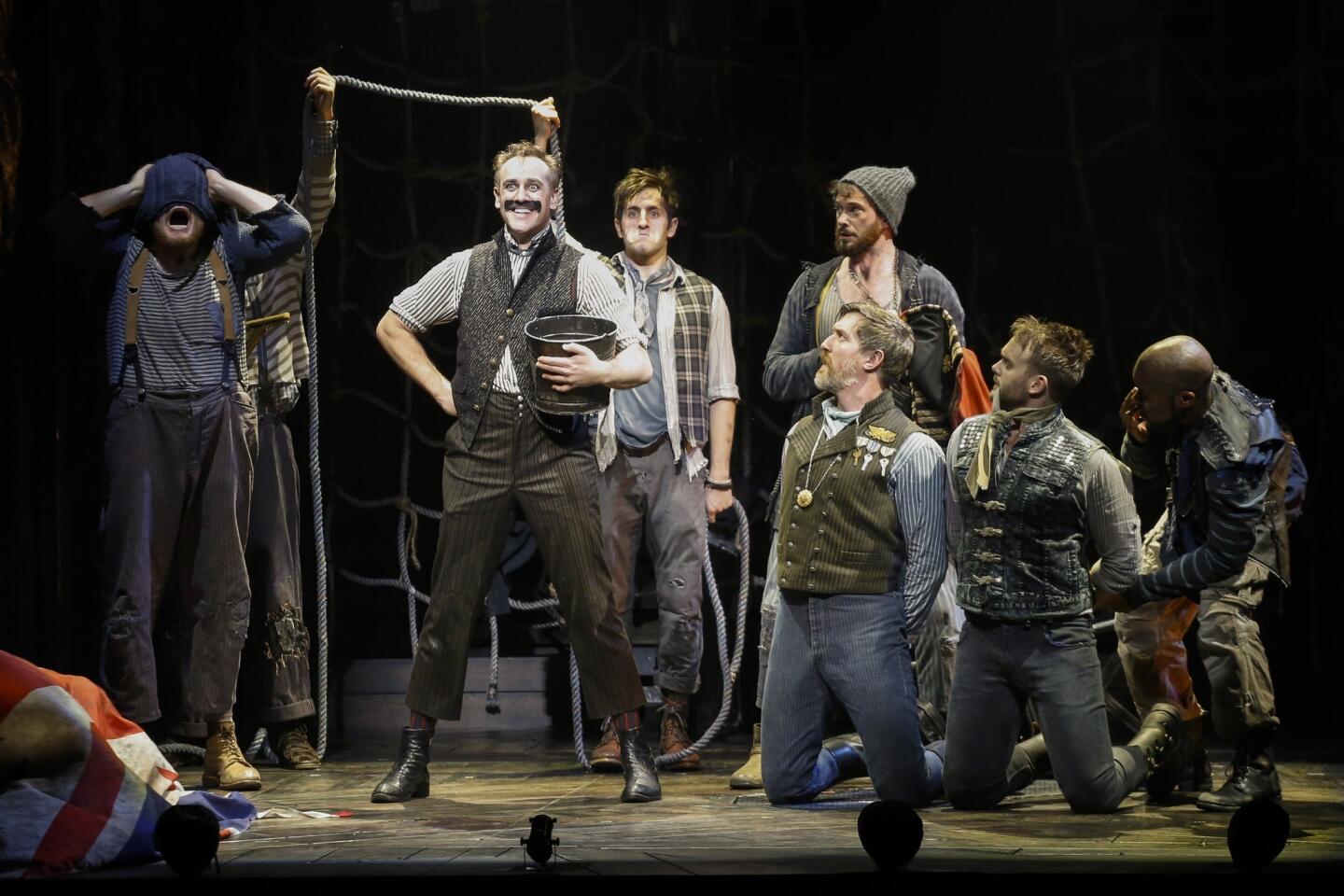
REVIEW: Lively ‘Peter and the Starcatcher’ make us believers again
MORE: Baddie role in ‘Peter and the Starcatcher’ hooked John Sanders (Jay L. Clendenin / Los Angeles Times)
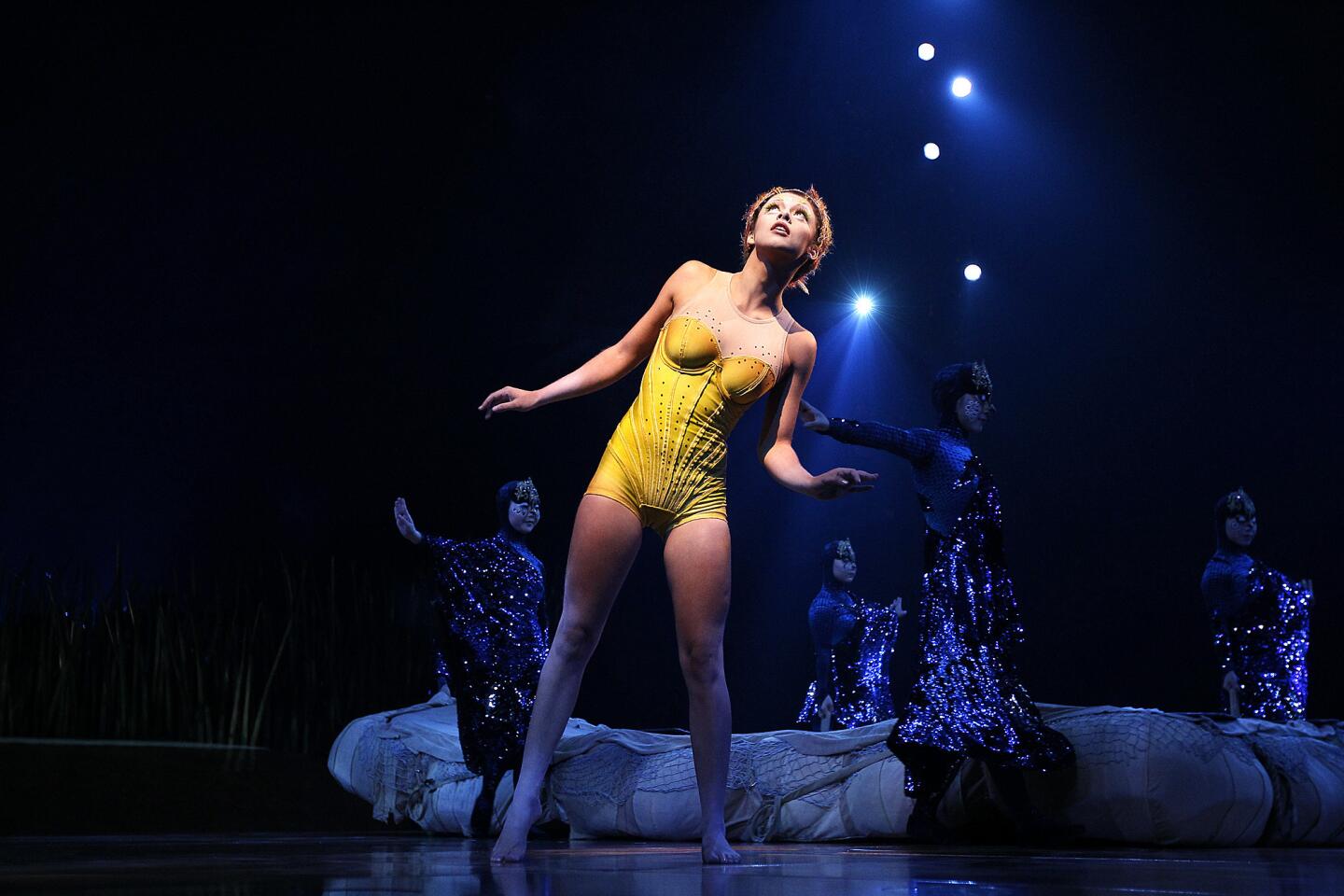
REVIEW: Cirque du Soleil’s ‘Totem’ a thrilling salute to human growth (Christina House / For the Times)
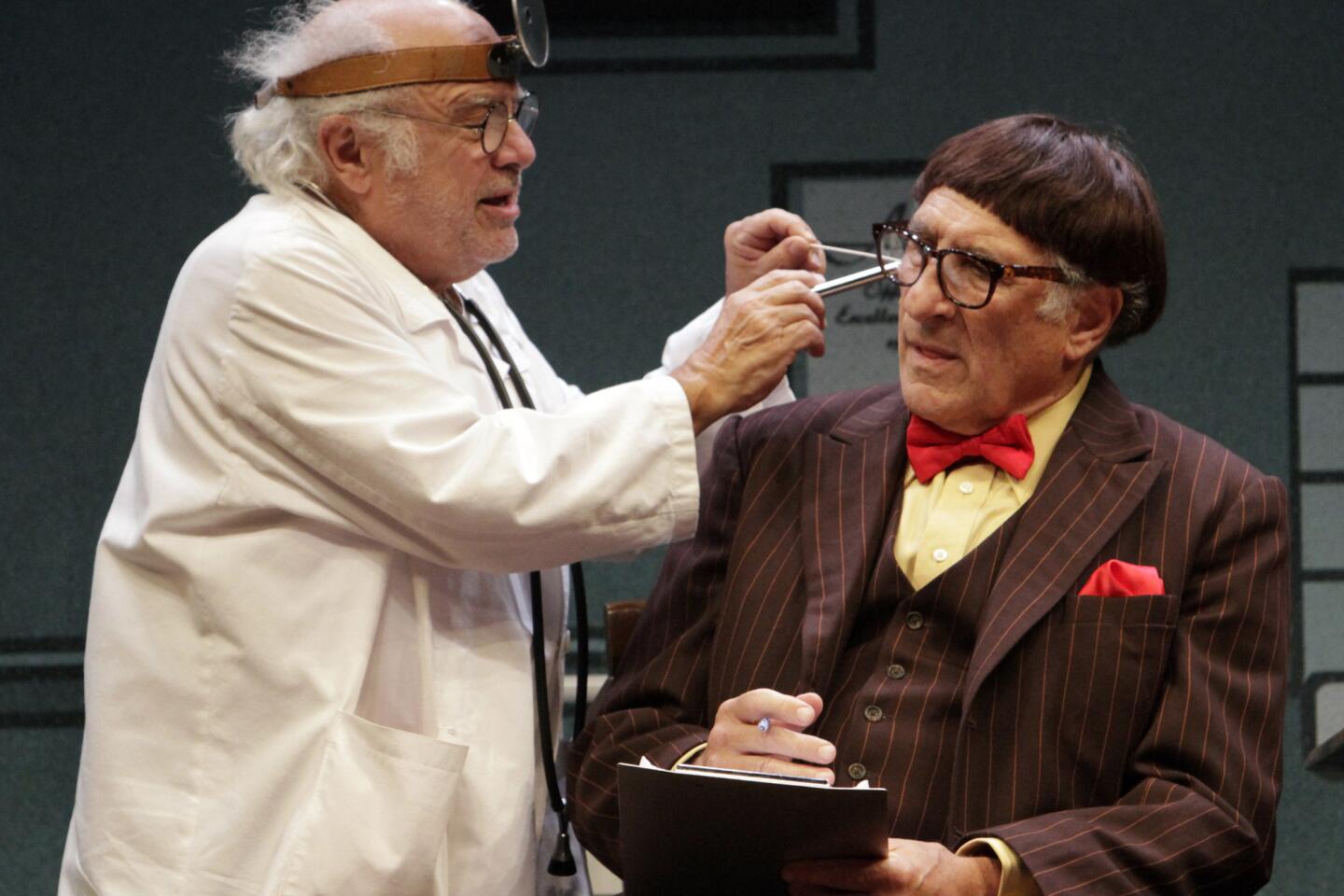
REVIEW: Time has overtaken ‘The Sunshine Boys’ (Lawrence K. Ho / Los Angeles Times)
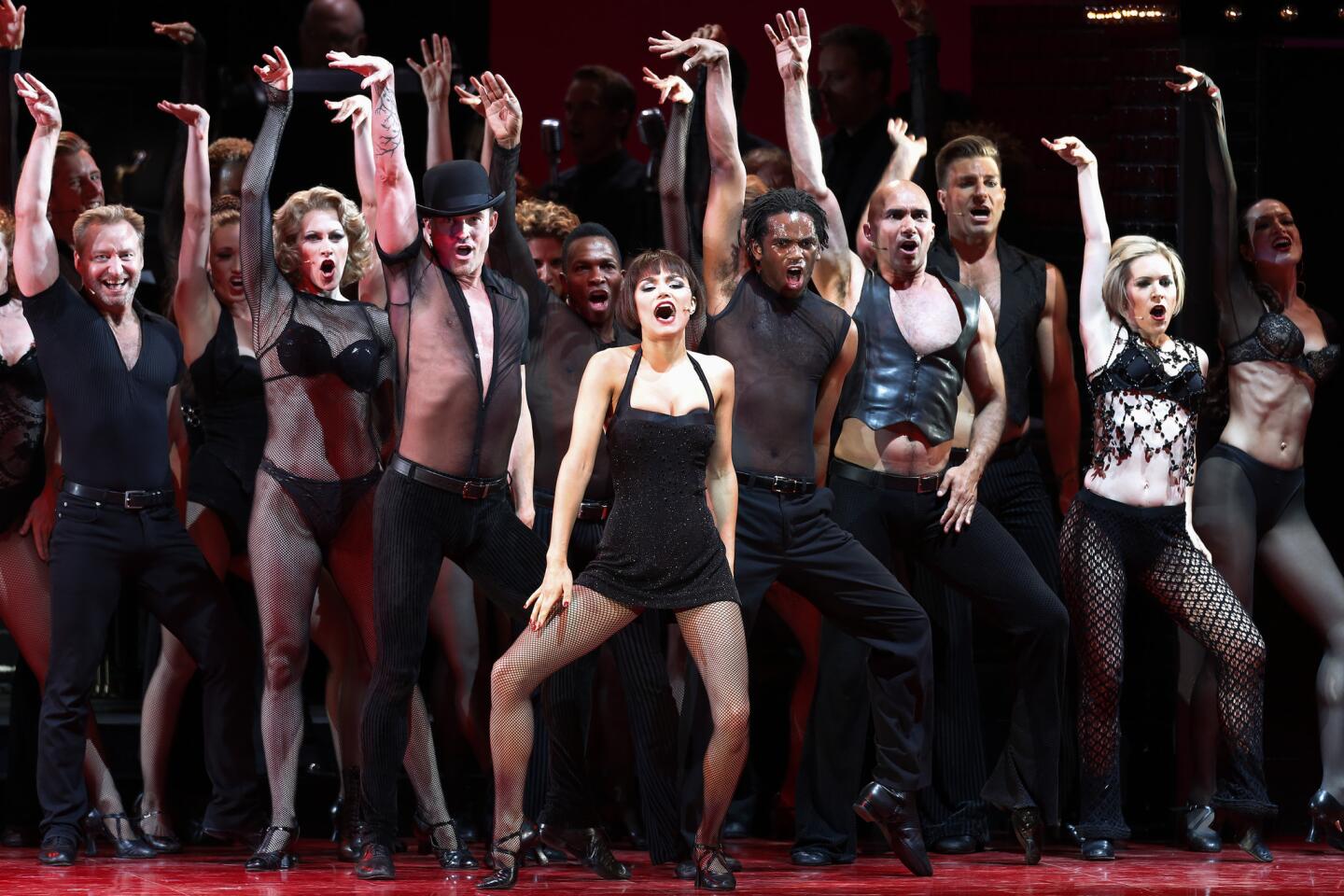
REVIEW: ‘Chicago’ storms into the Hollywood Bowl (Jay L. Clendenin / Los Angeles Times)
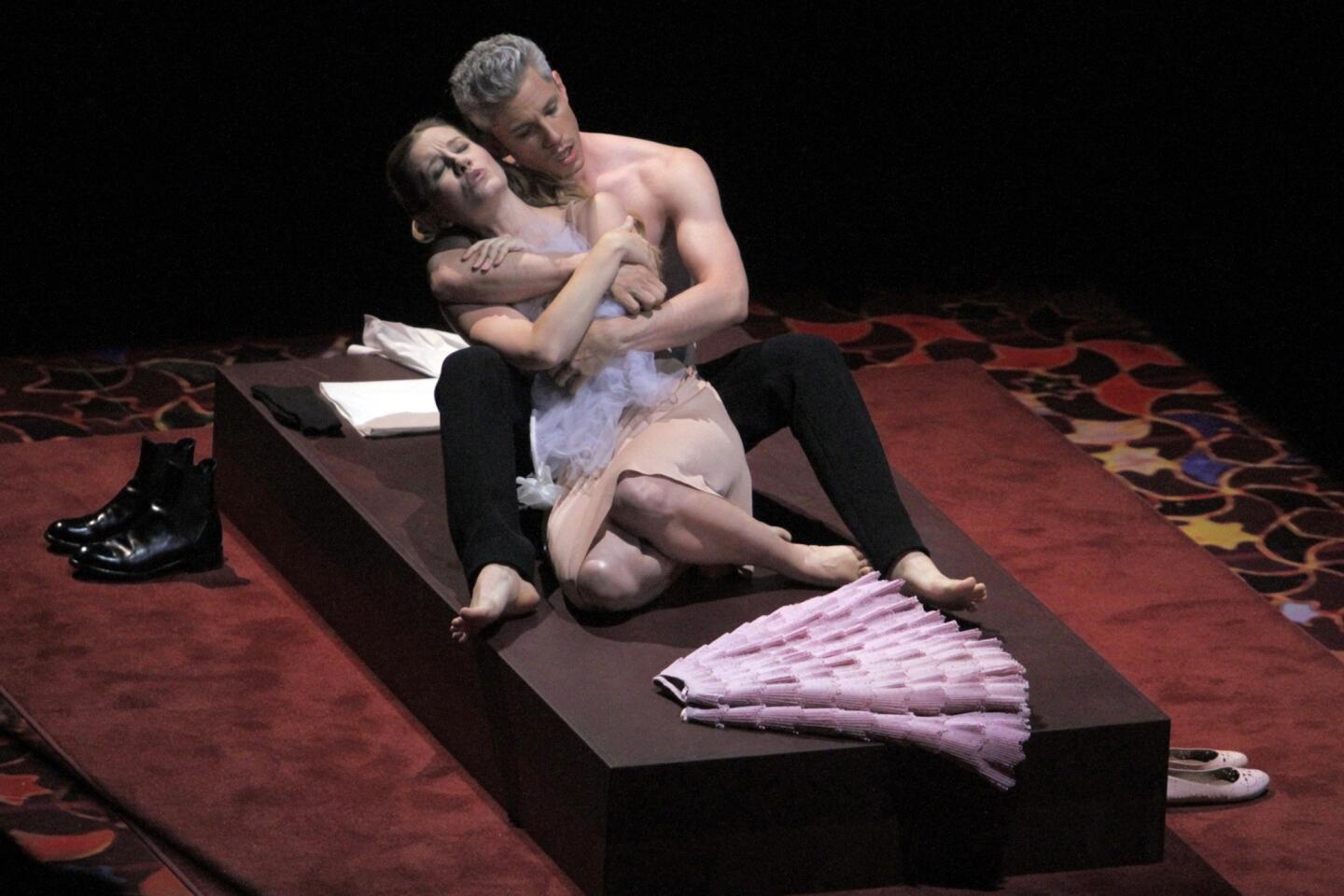
REVIEW: ‘Marriage of Figaro’ a wedding of many talents (Lawrence K. Ho / Los Angeles Times)
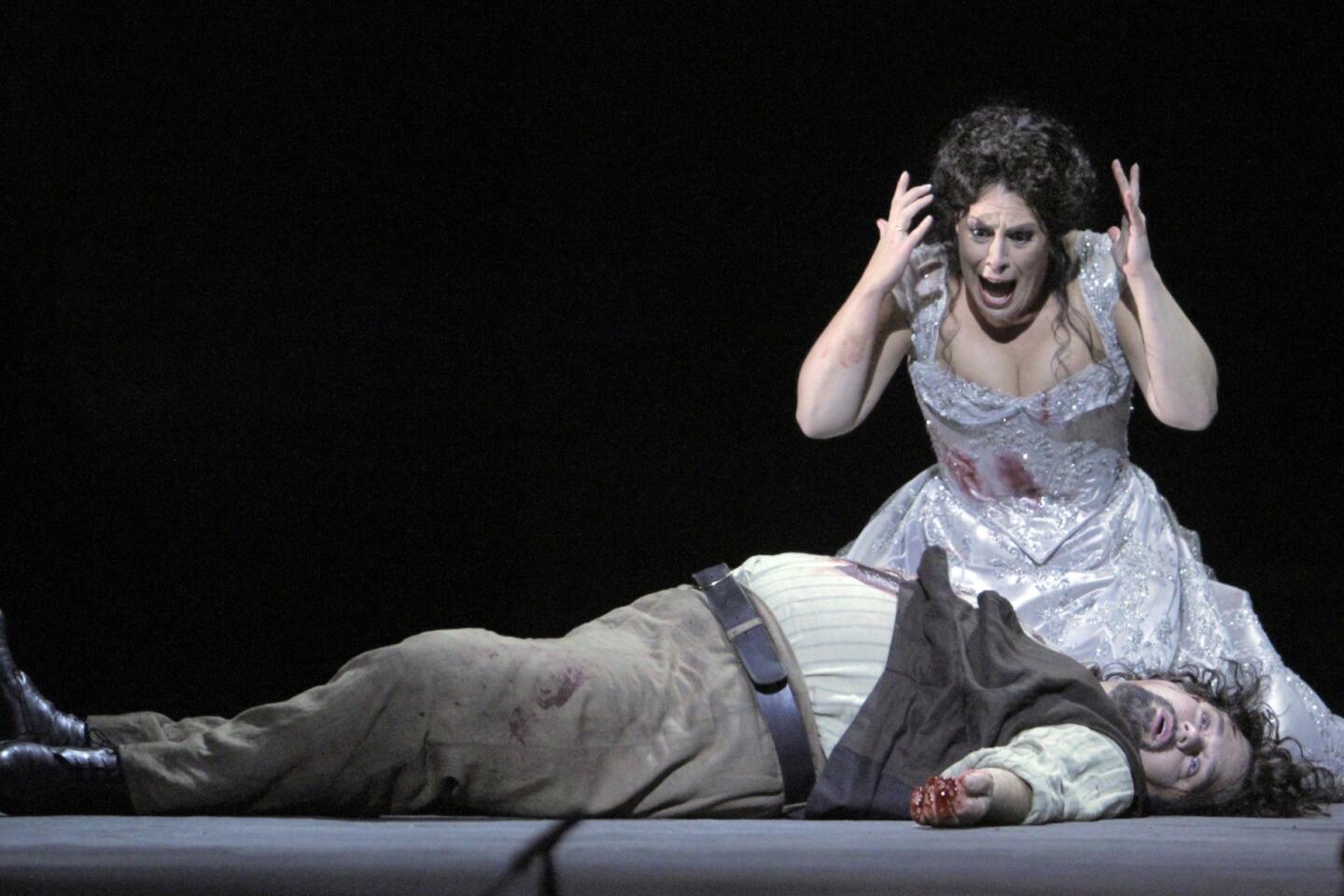
REVIEW: With ‘Tosca,’ Los Angeles Opera goes for grand (Lawrence K. Ho / Los Angeles Times)
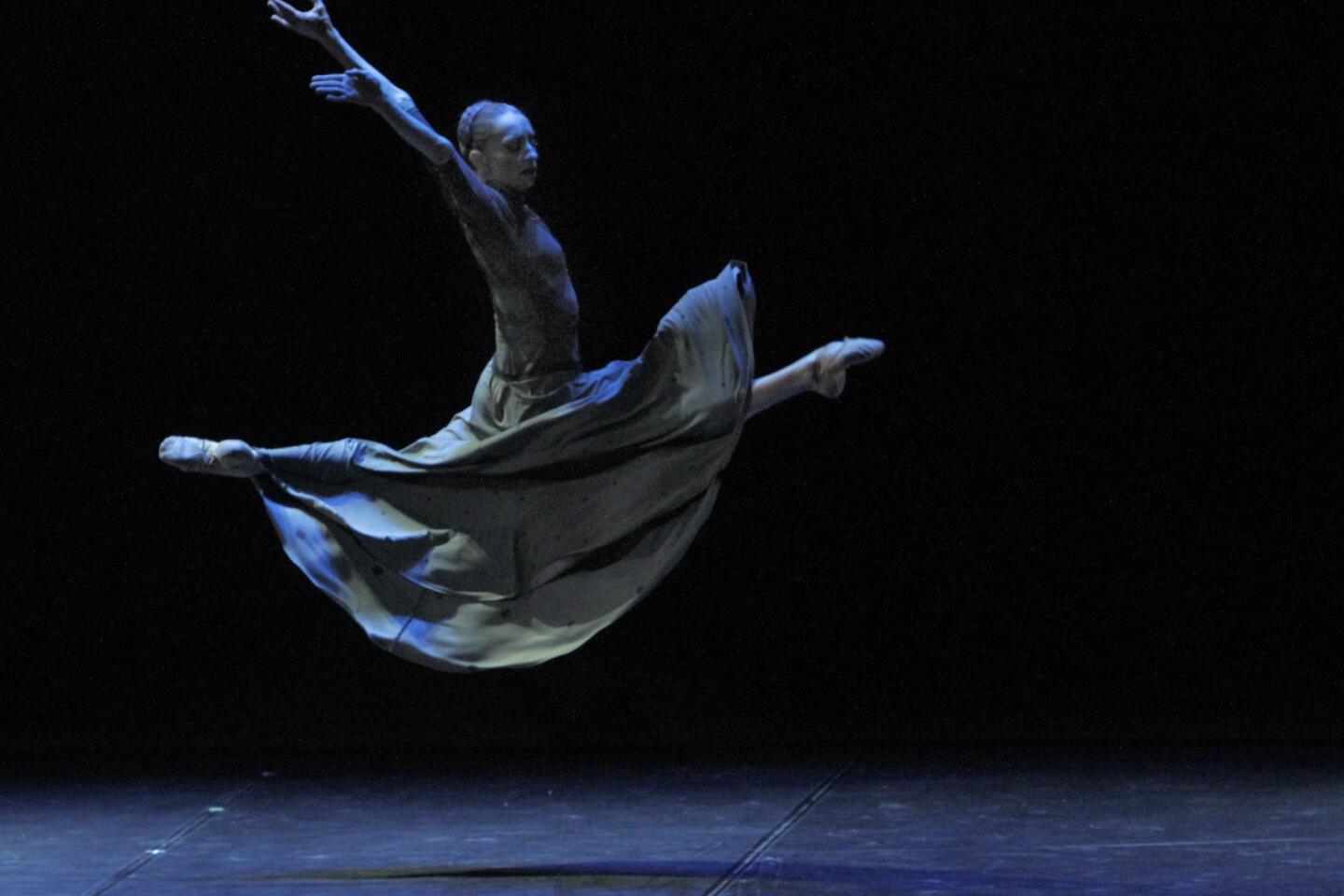
REVIEW: The collateral damage of genius in Boris Eifman’s ‘Rodin’ (Lawrence K. Ho / Los Angeles Times)
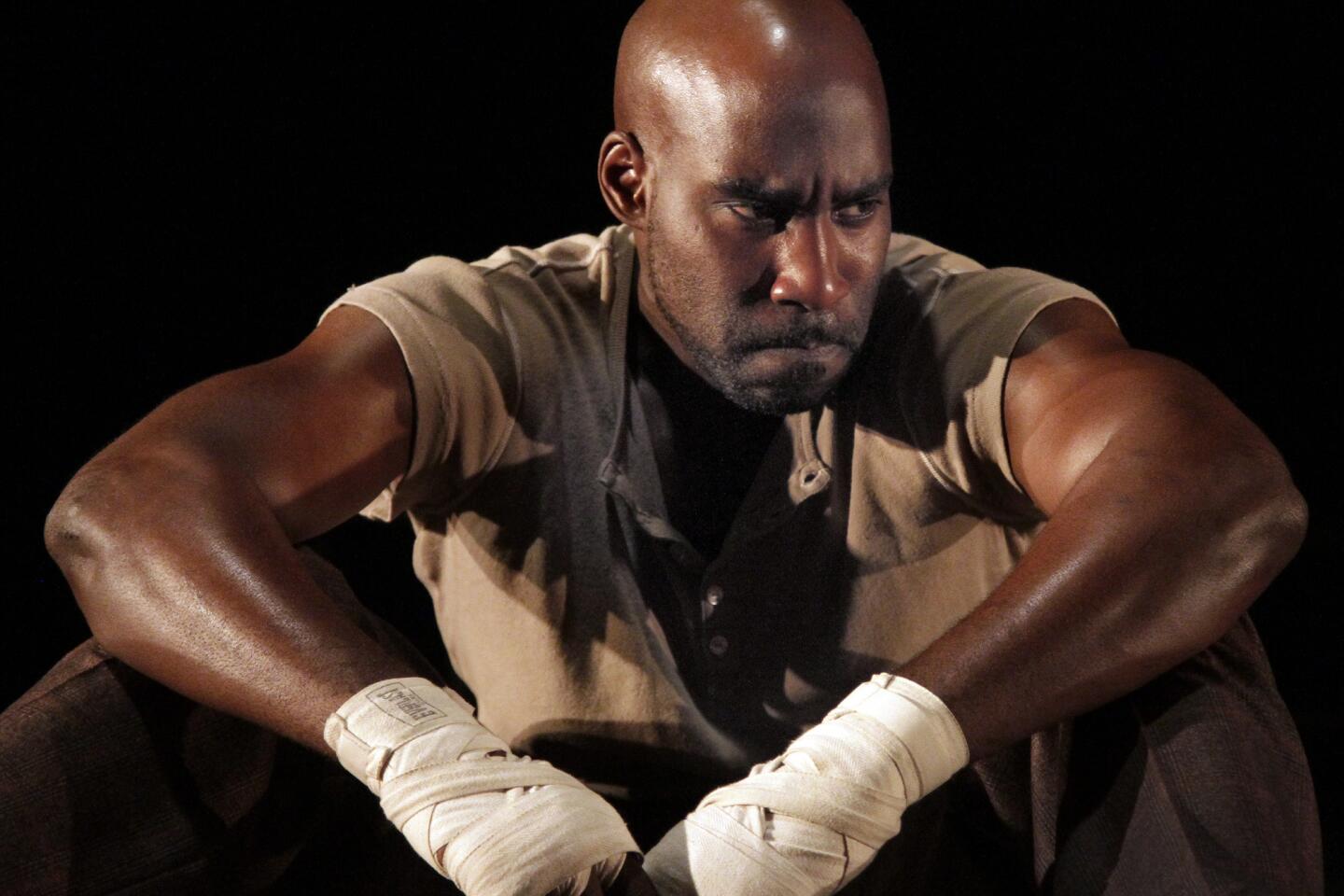
REVIEW: ‘The Royale’ punches well but has character issues (Lawrence K. Ho / Los Angeles Times)
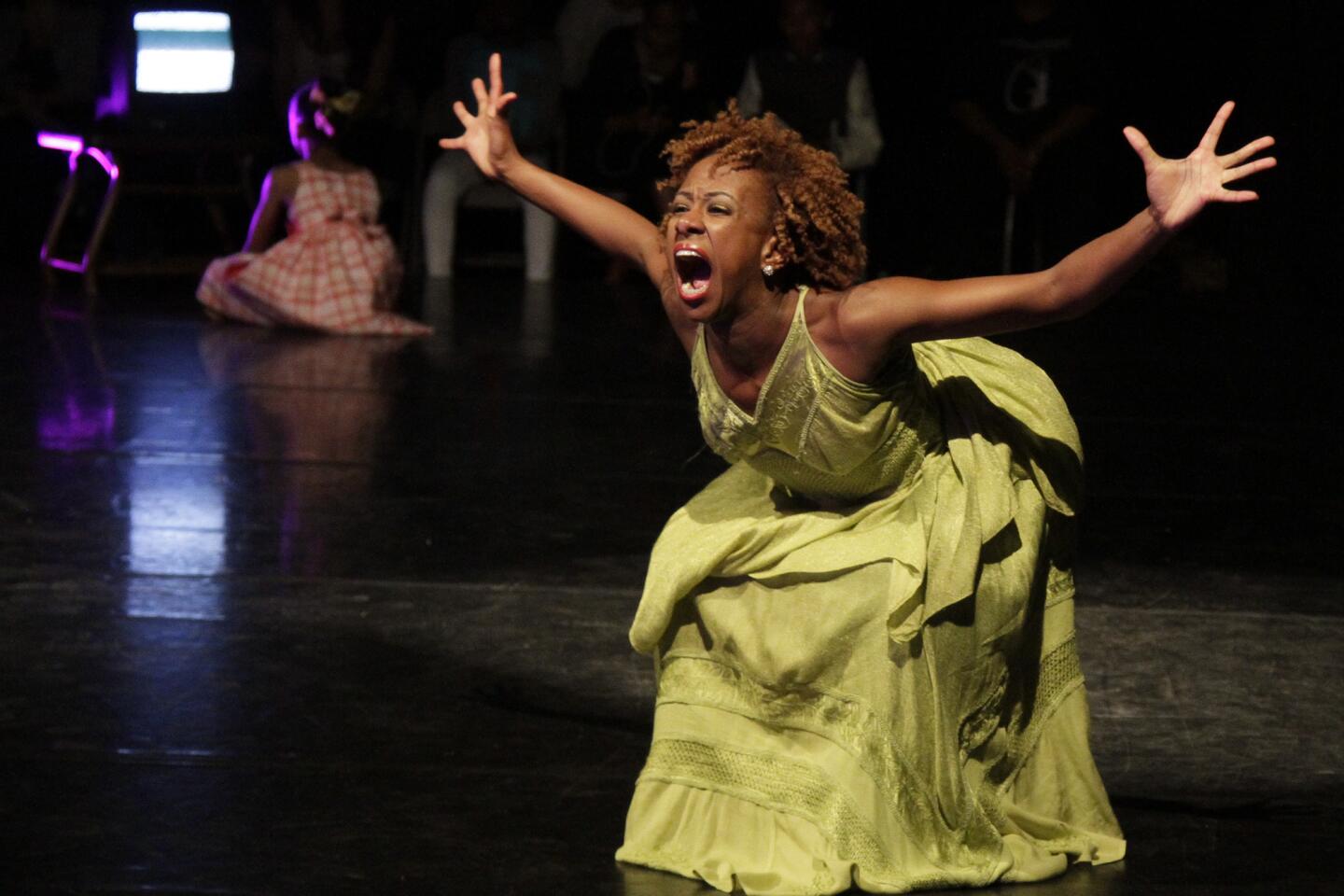
REVIEW: L.A. Dance Festival returns to boost homegrown dance (Lawrence K. Ho / Los Angeles Times)
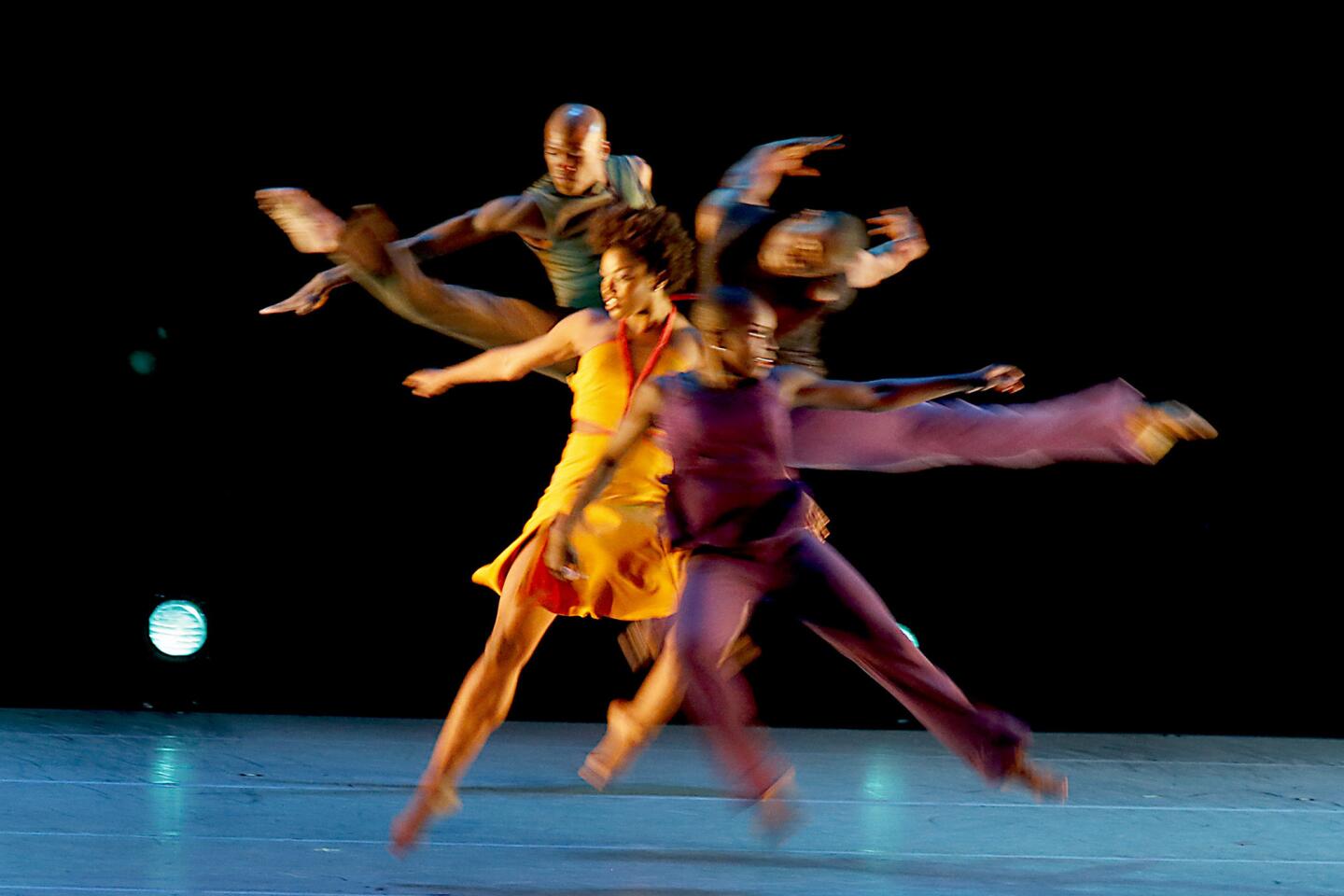
REVIEW: Sensual energy crackles in Alvin Ailey dance program (Luis Sinco / Los Angeles Times)
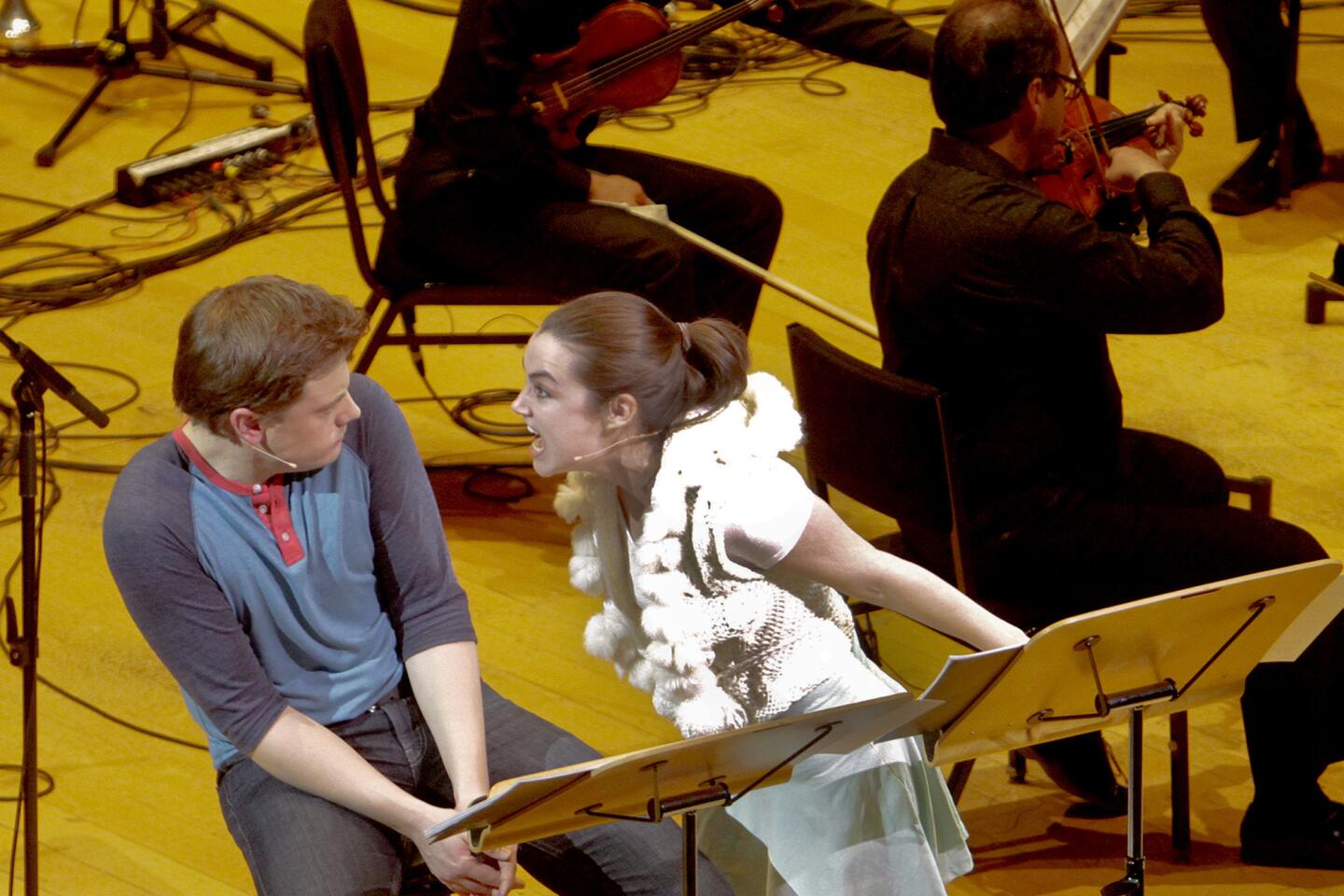
REVIEW: Aaron Copland as a hinge (Lawrence K. Ho / Los Angeles Times)
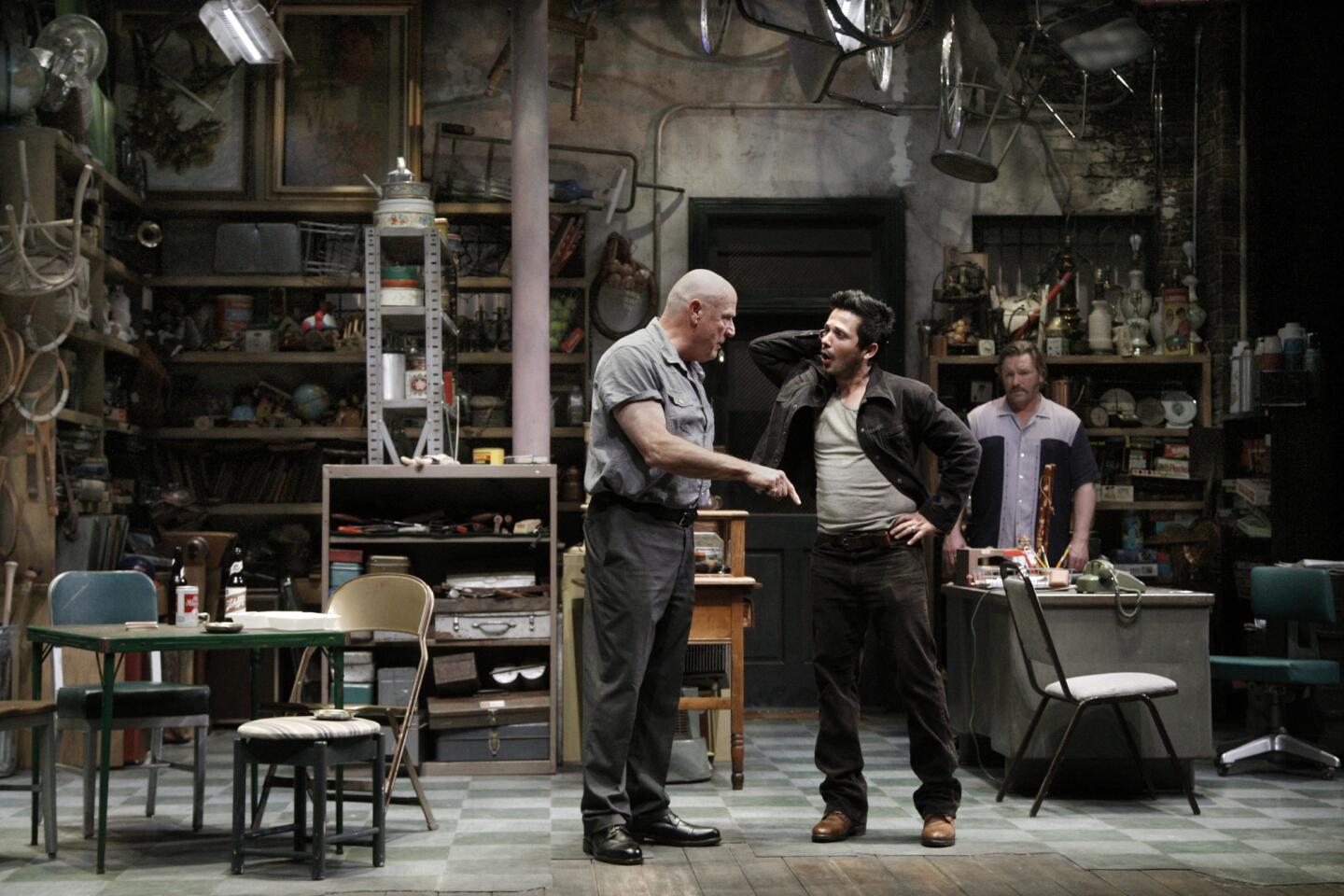
REVIEW: ‘American Buffalo’ at Geffen a refreshing dose of Mamet (Gary Friedman / Los Angeles Times)
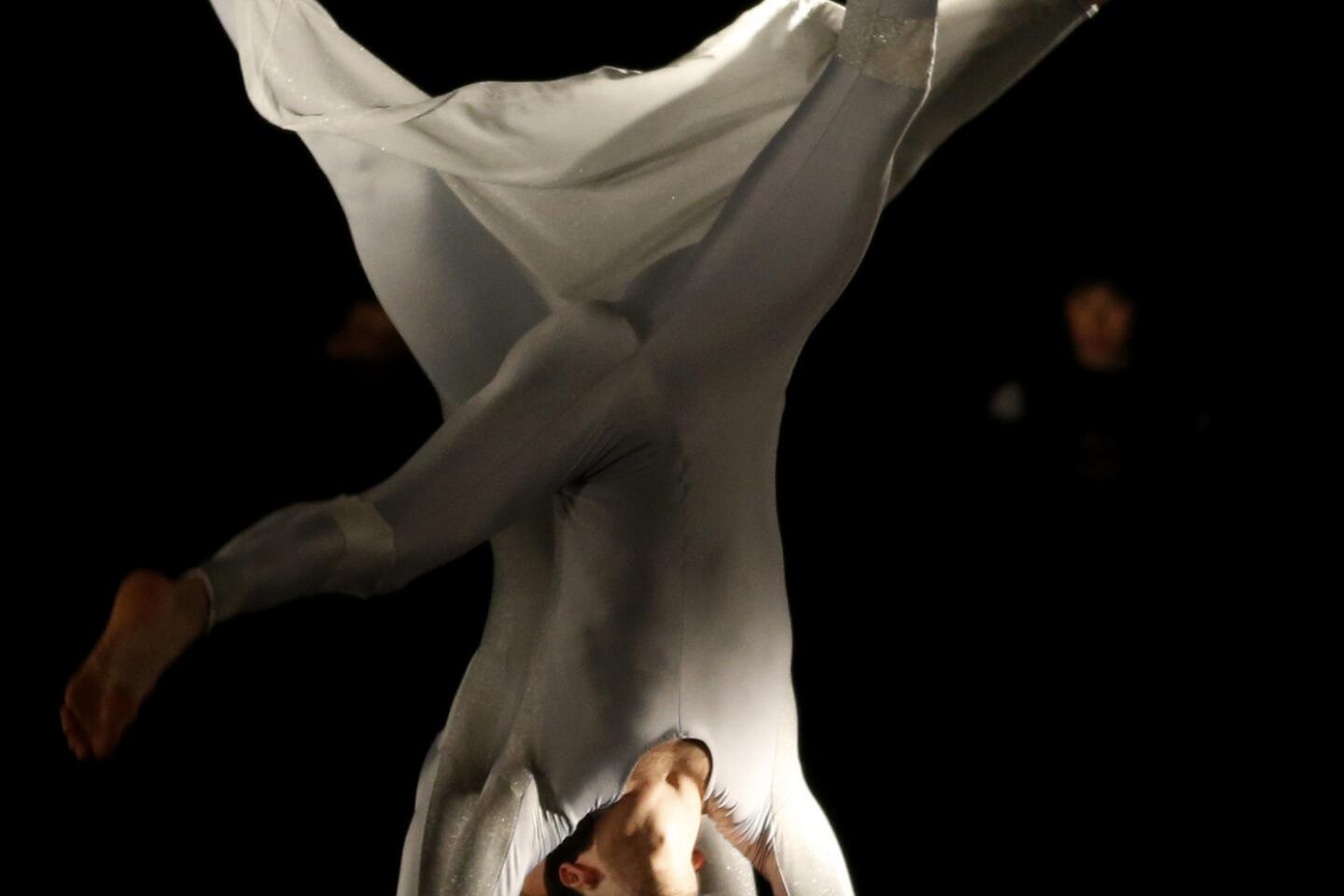
REVIEW: Flashes of lightning in Trisha Brown’s ‘Astral Converted’ (Luis Sinco / Los Angeles Times)
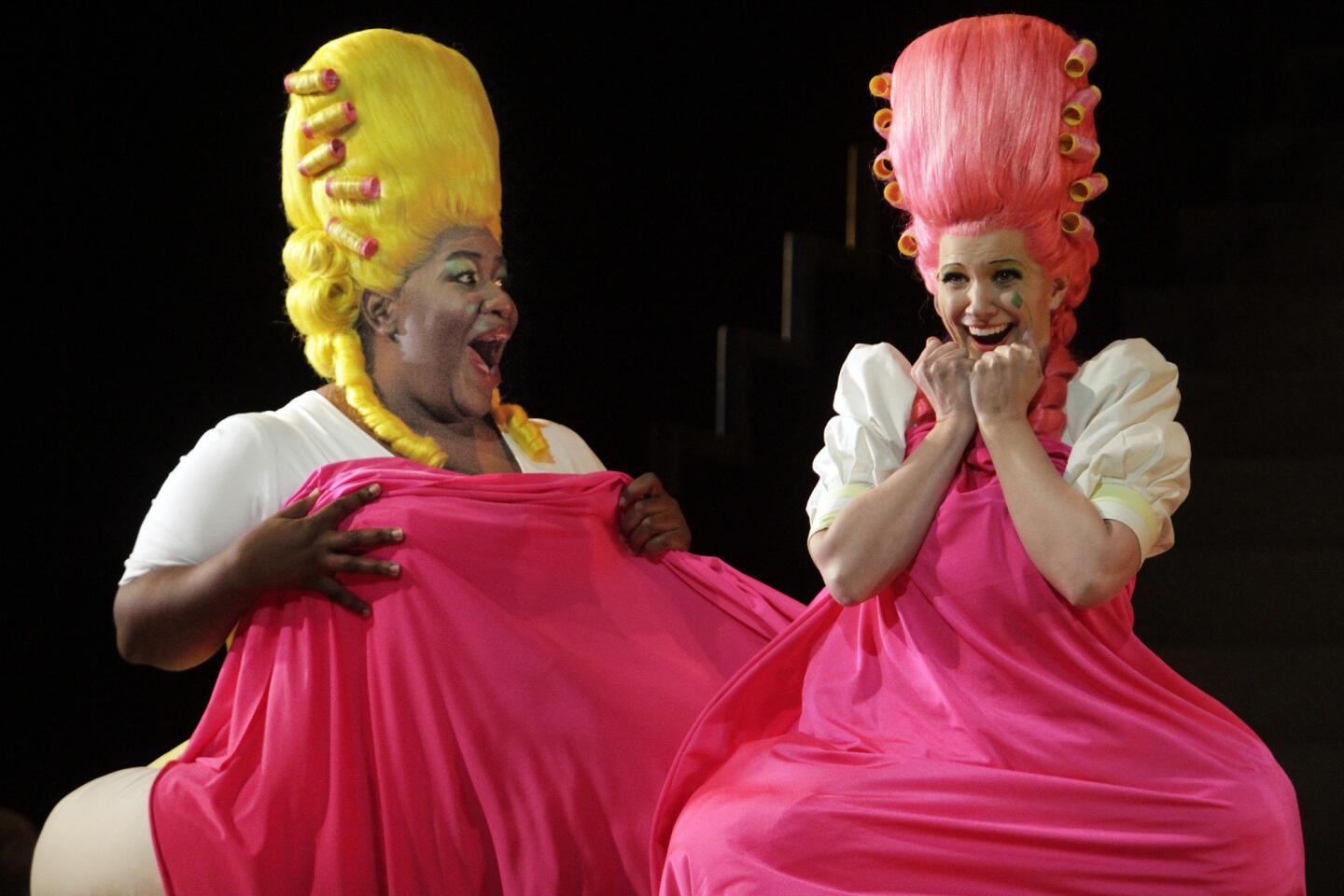
REVIEW: A new Cinderella at Los Angeles Opera makes an impression (Lawrence K. Ho / Los Angeles Times)
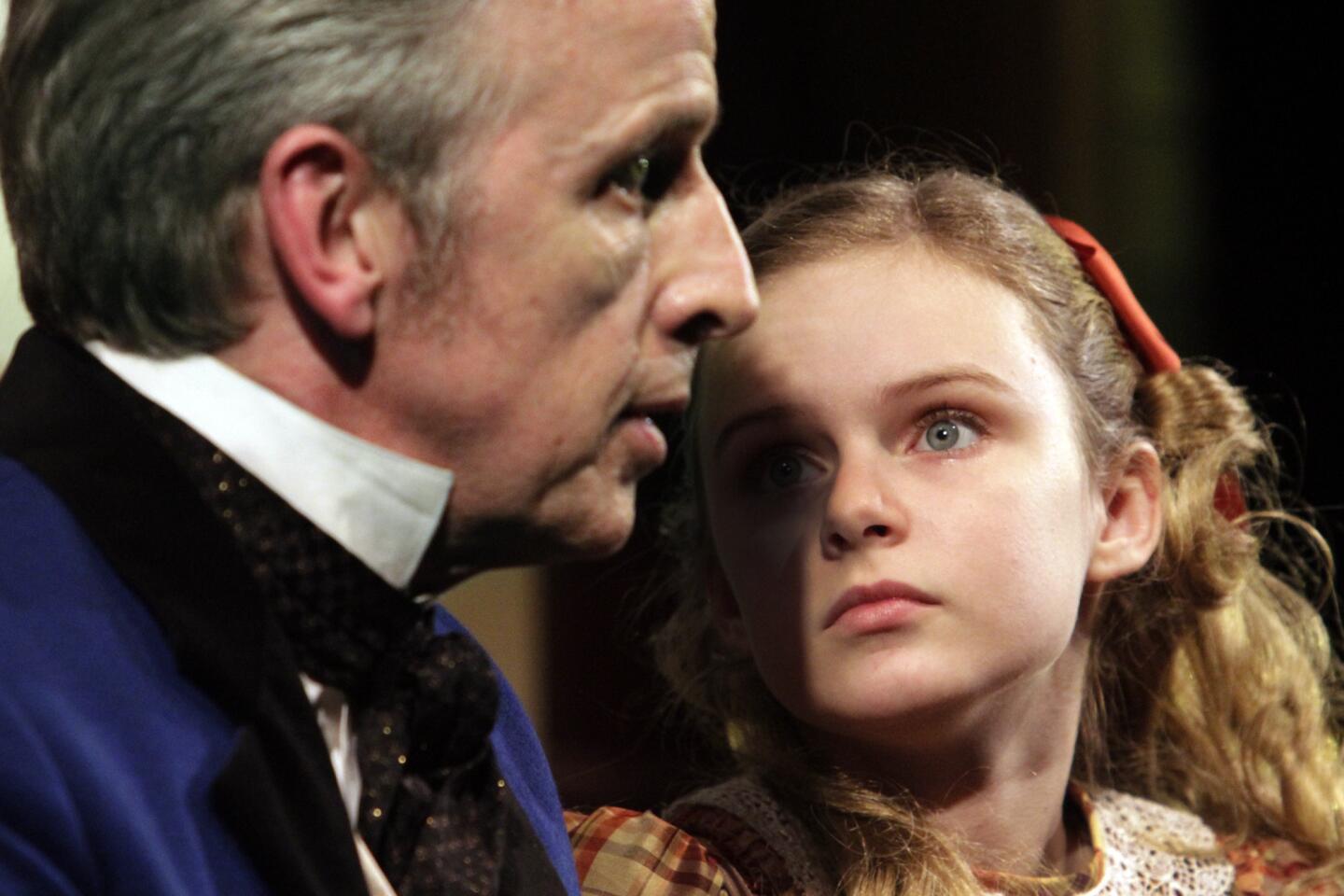
REVIEW: Ethical quandaries buzz in ‘The Nether’ (Lawrence K. Ho / Los Angeles Times)
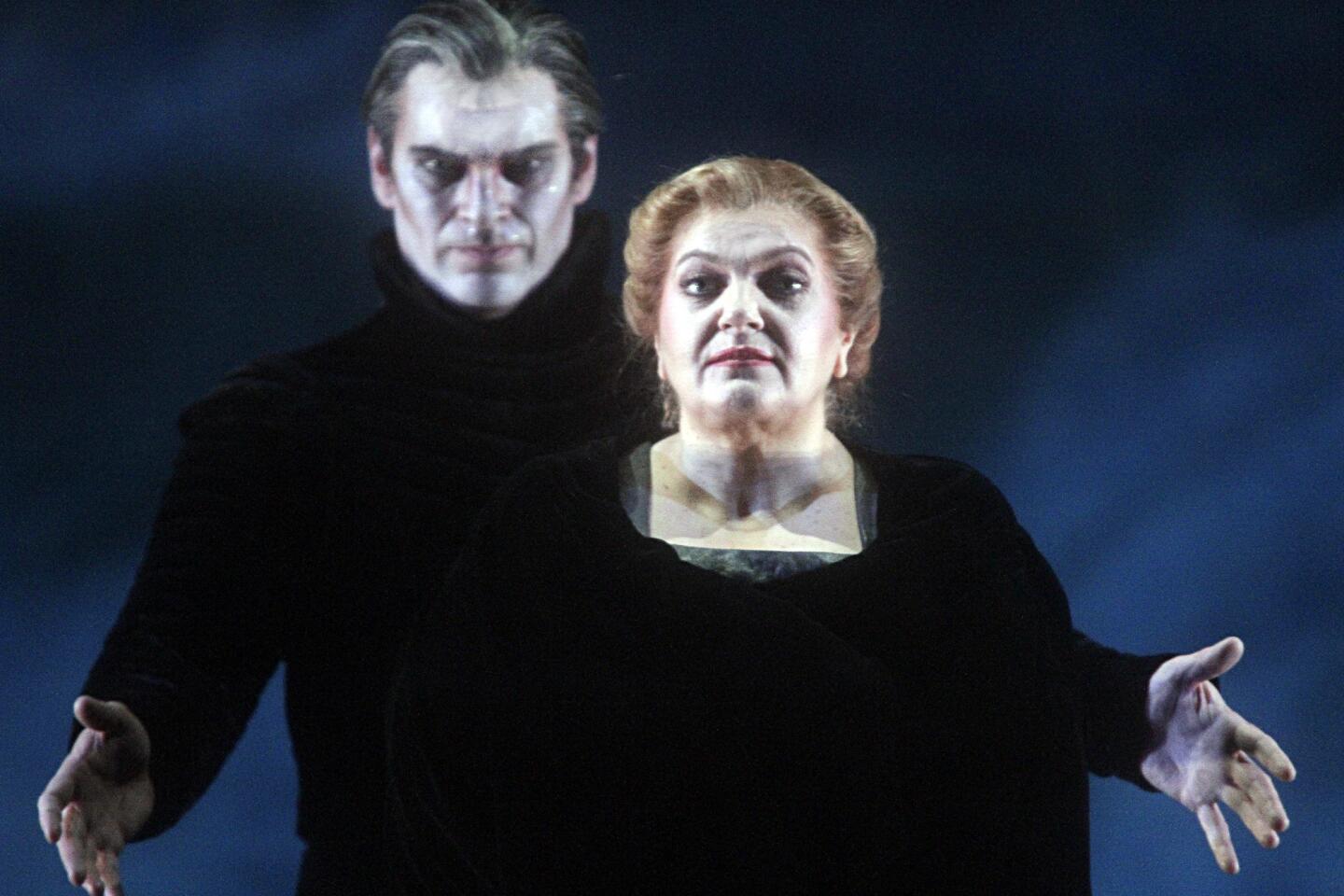
REVIEW: L.A. Opera’s ‘Flying Dutchman’ back in action (Lawrence K. Ho / Los Angeles Times)
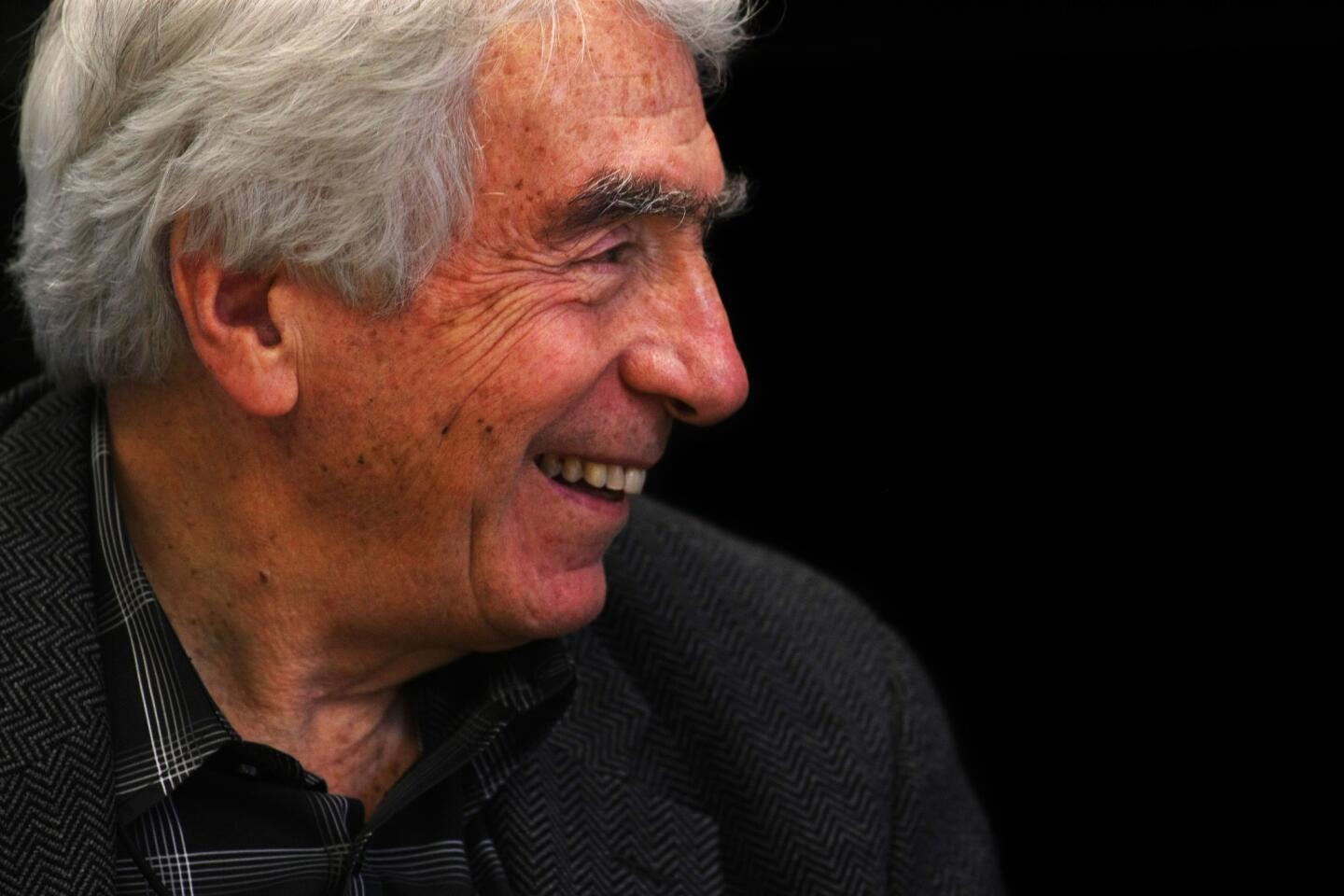
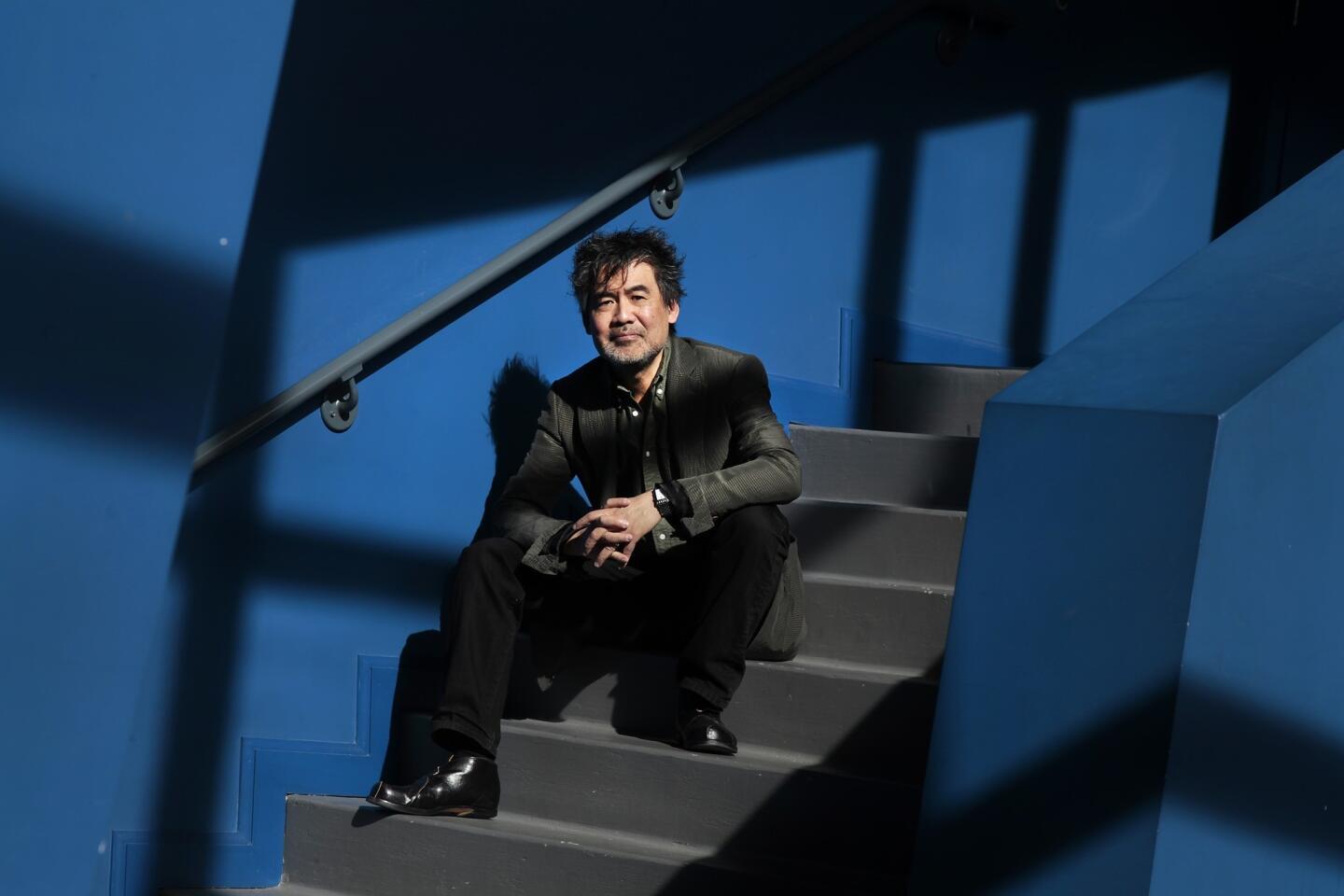
MORE: For David Henry Hwang’s ‘Chinglish,’ a case of bad timing in China (Rick Loomis / Los Angeles Times)
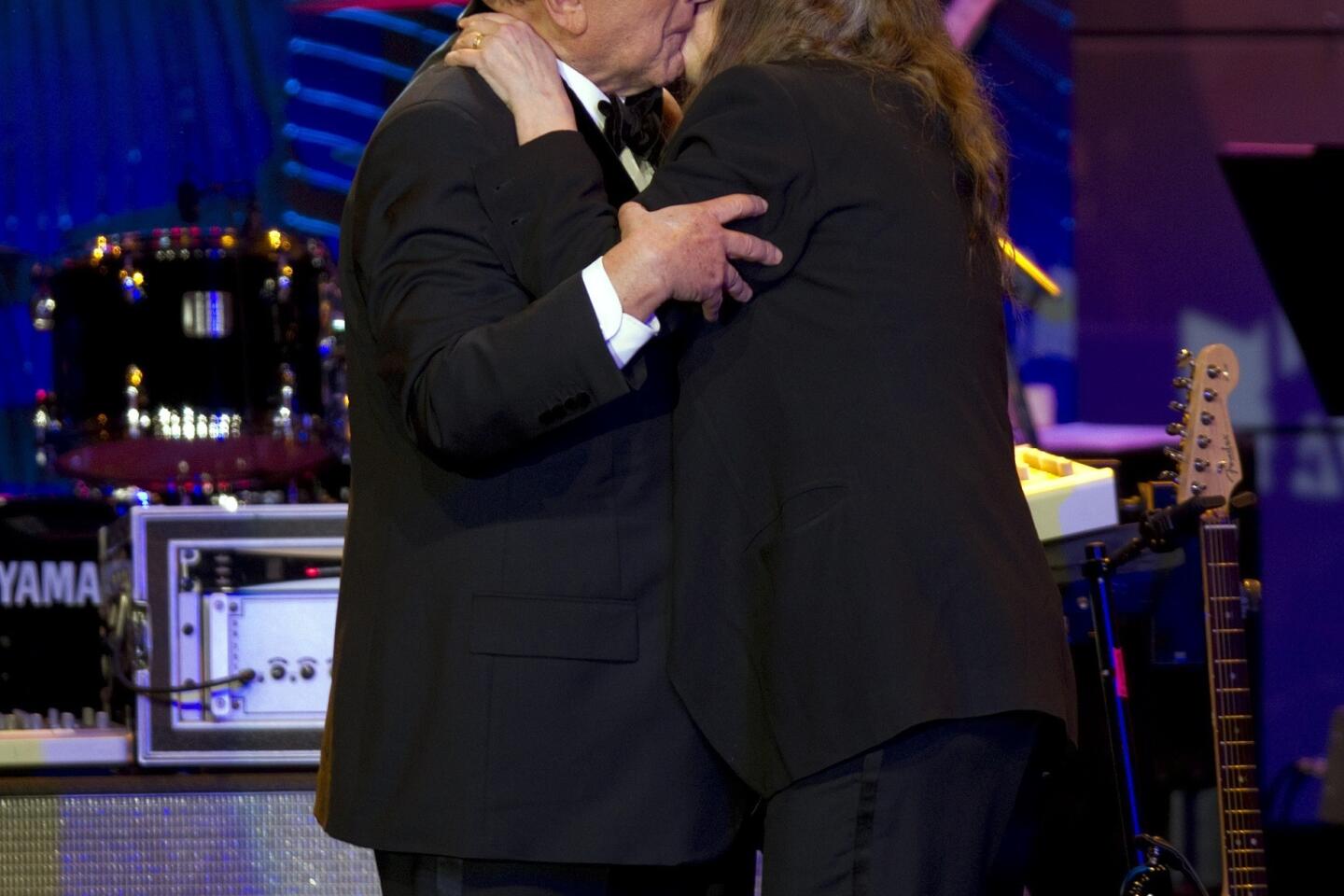
MORE: Clive Davis’ next role: Broadway producer of a new ‘My Fair Lady’ (Gina Ferazzi / Los Angeles Times)
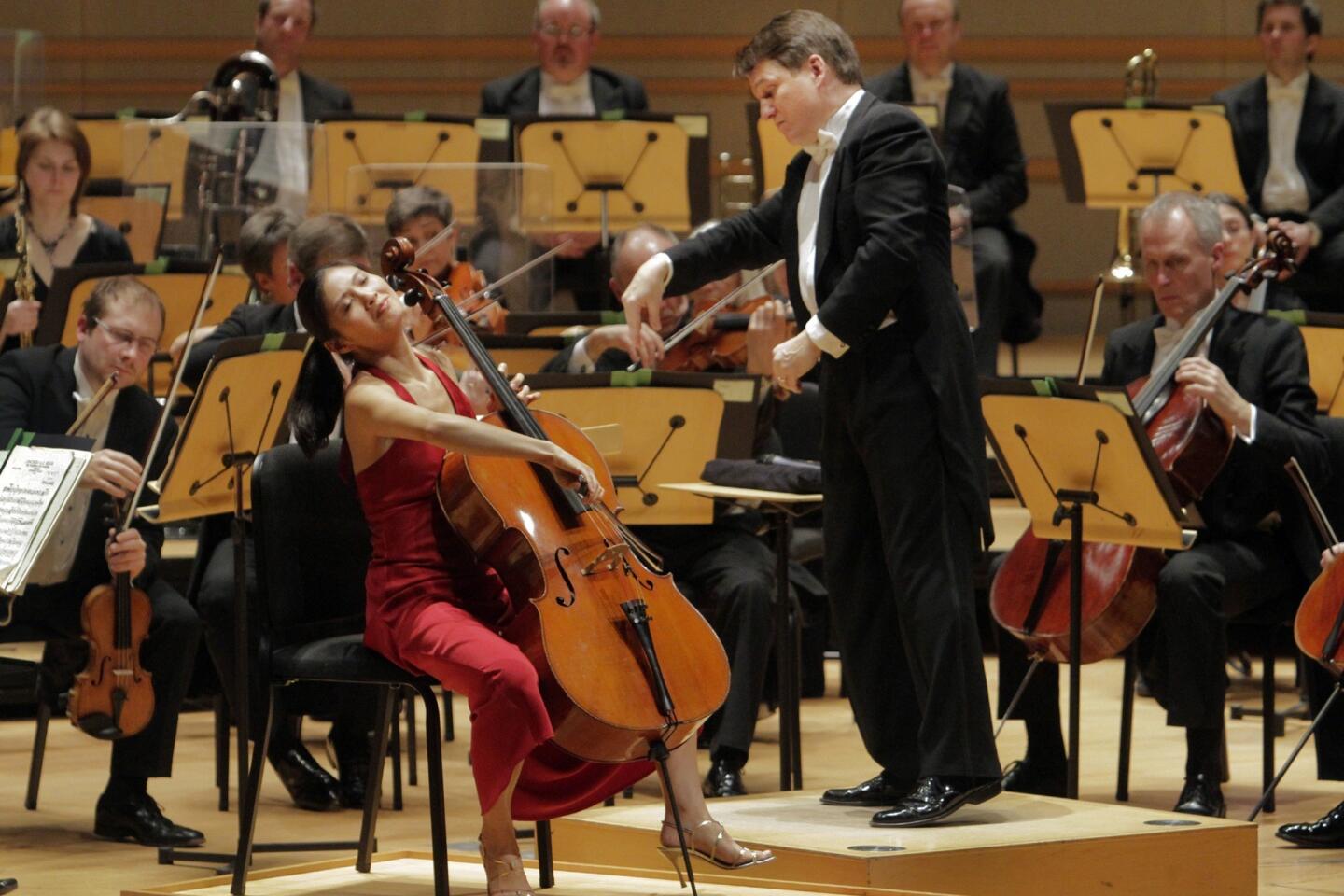
REVIEW: The usually inventive BBC Concert Orchestra goes retro (Lawrence K. Ho / Los Angeles Times)
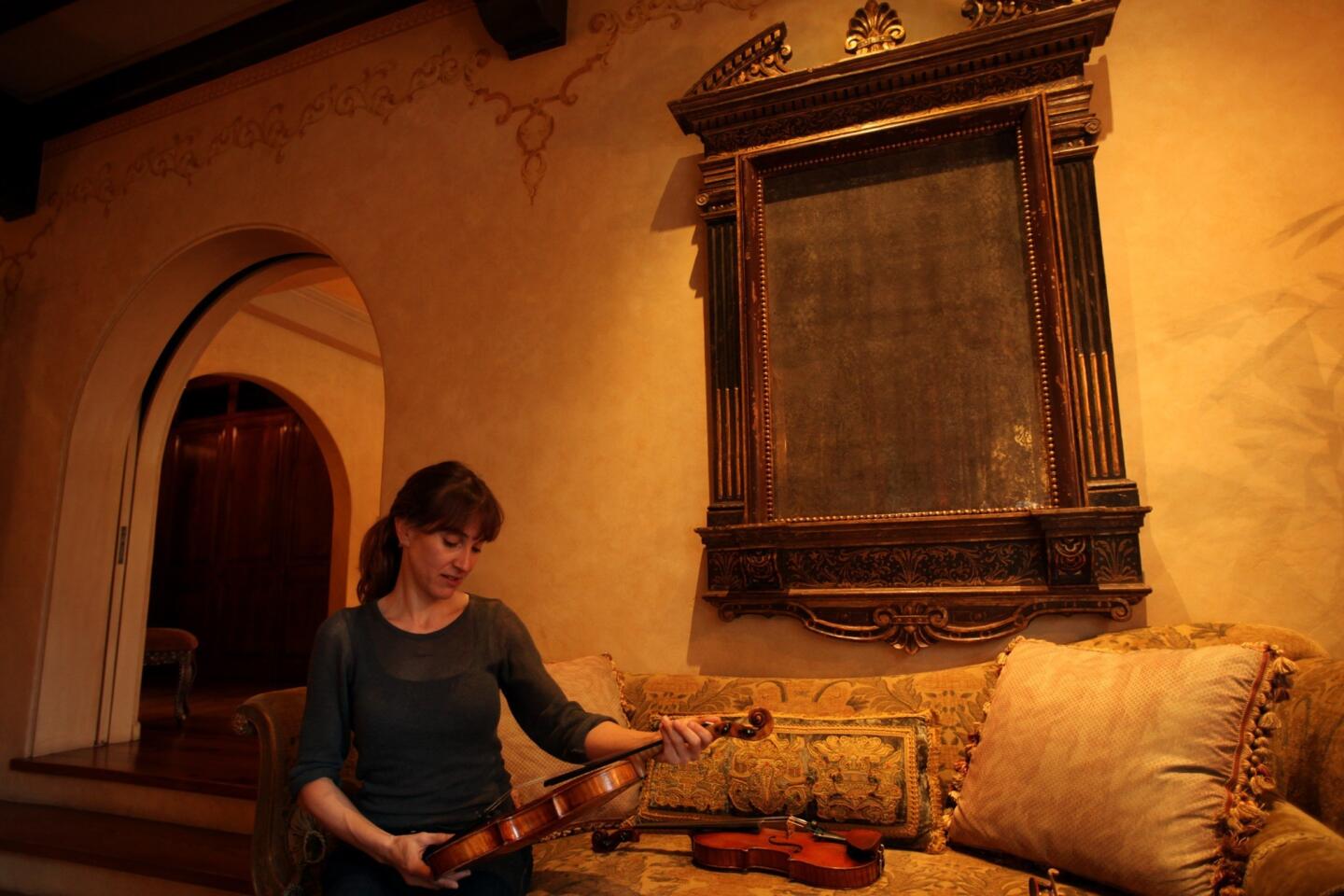
MORE: Los Angeles Chamber Orchestra violinist has a date with a Stradivarius (Francine Orr / Los Angeles Times)
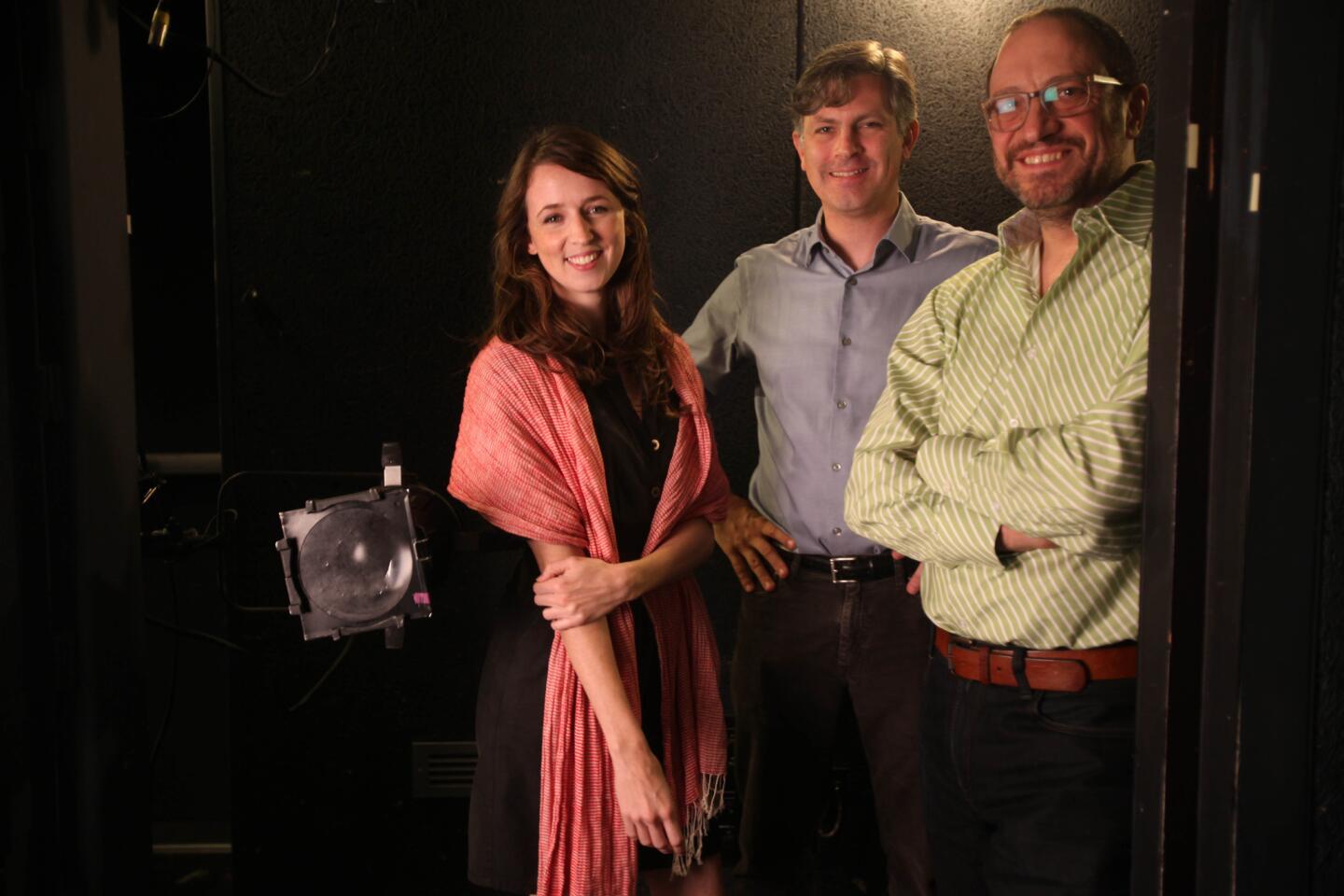
REVIEW: Elevator Repair Service’s ‘Gatz’ a rewarding marathon | Elevator Repair Service takes on the great ‘Gatz’ | Marathon plays stand the test of time (Michael Robinson Chavez / Los Angeles Times)
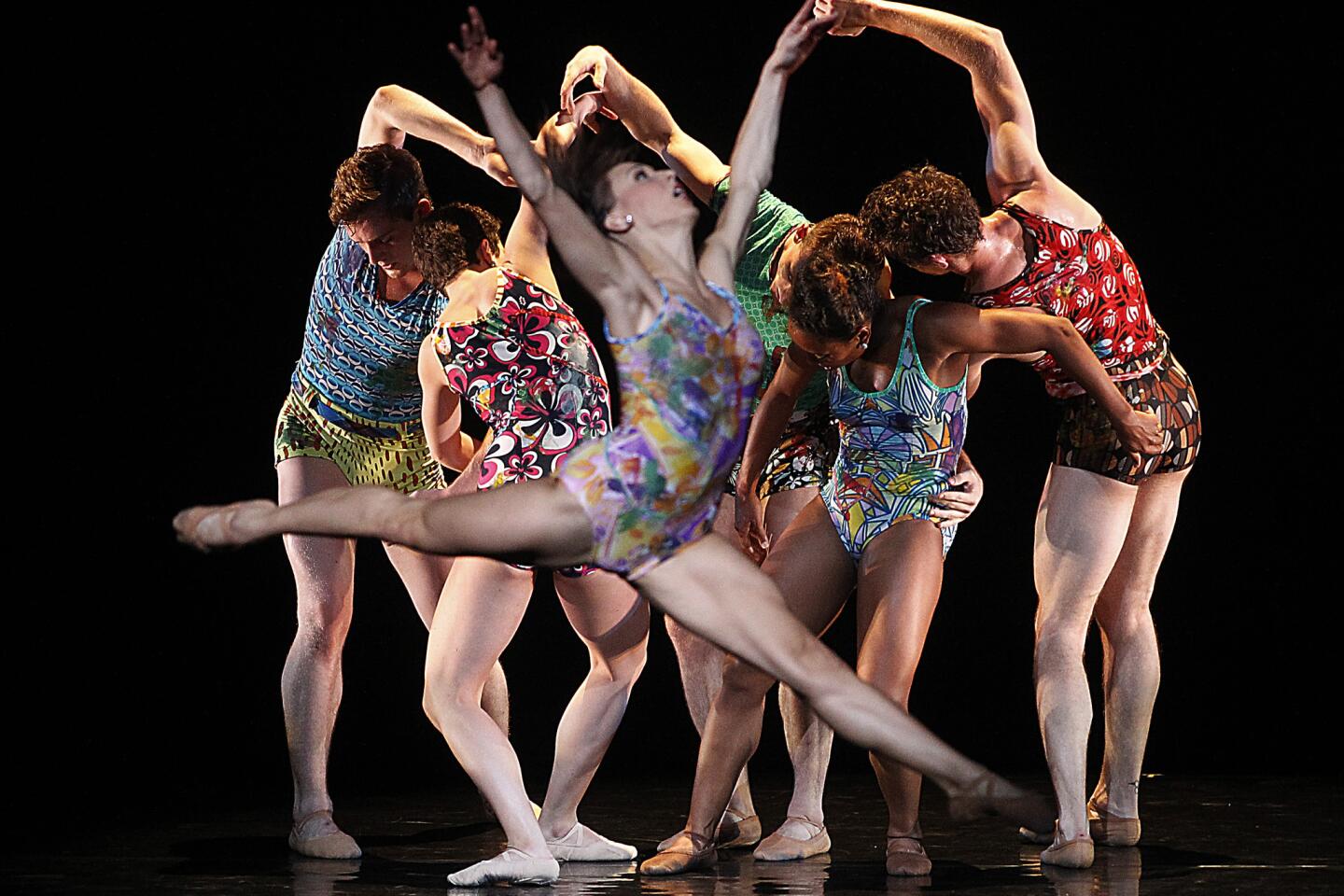
REVIEW: Trey McIntyre Project dances are both slight and potent | Trey McIntyre Project brings ‘Ways of Seeing’ to Segerstrom (Luis Cinco / Los Angeles Times)

REVIEW: Esa-Pekka Salonen and an electrifying L.A. Philharmonic | Esa-Pekka Salonen returns to L.A. with murder in mind (Matthew Lloyd / For The Times)
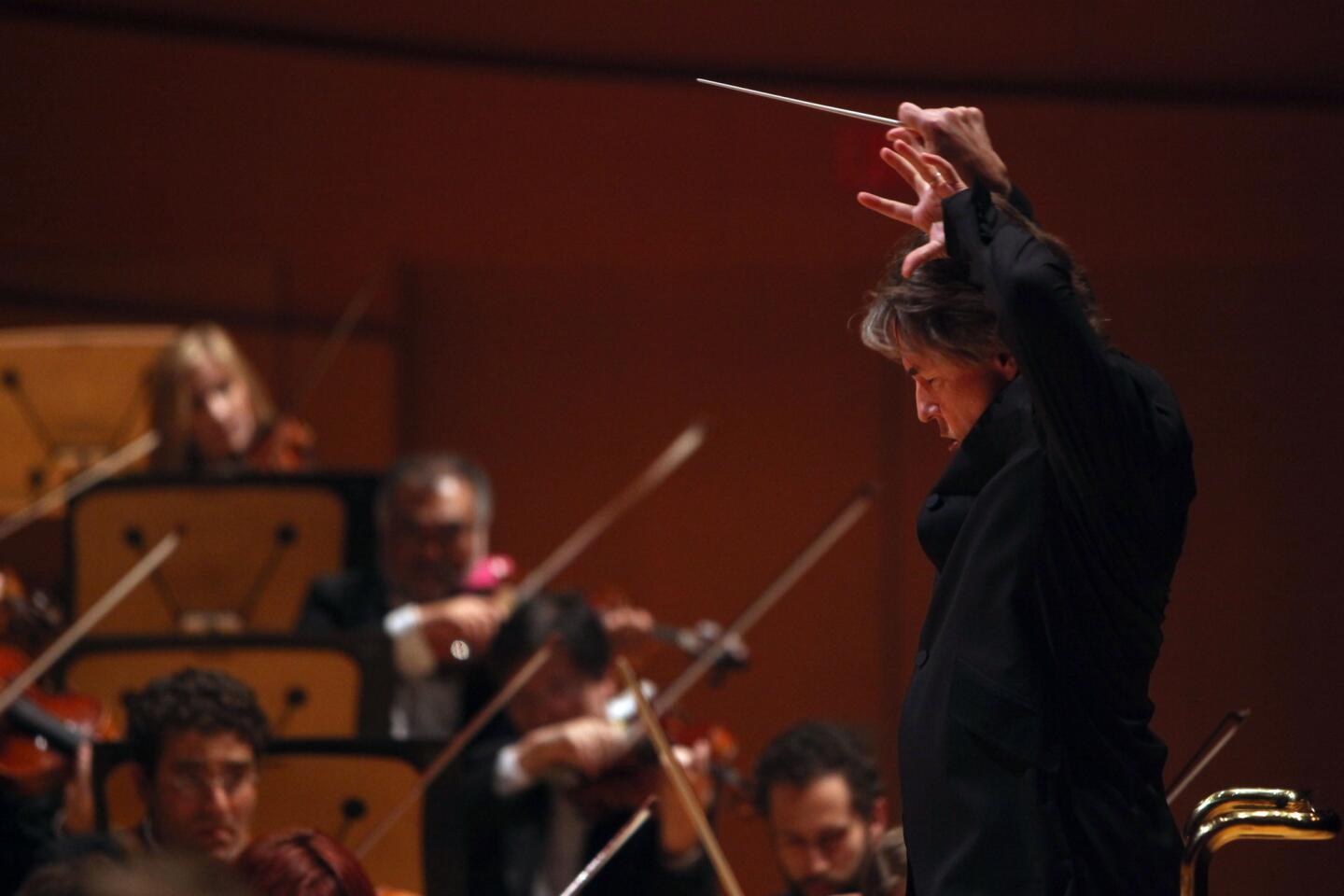
REVIEW: Esa-Pekka Salonen and an electrifying L.A. Philharmonic | Esa-Pekka Salonen returns to L.A. with murder in mind (Michael Robinson Chavez / Los Angeles Times)
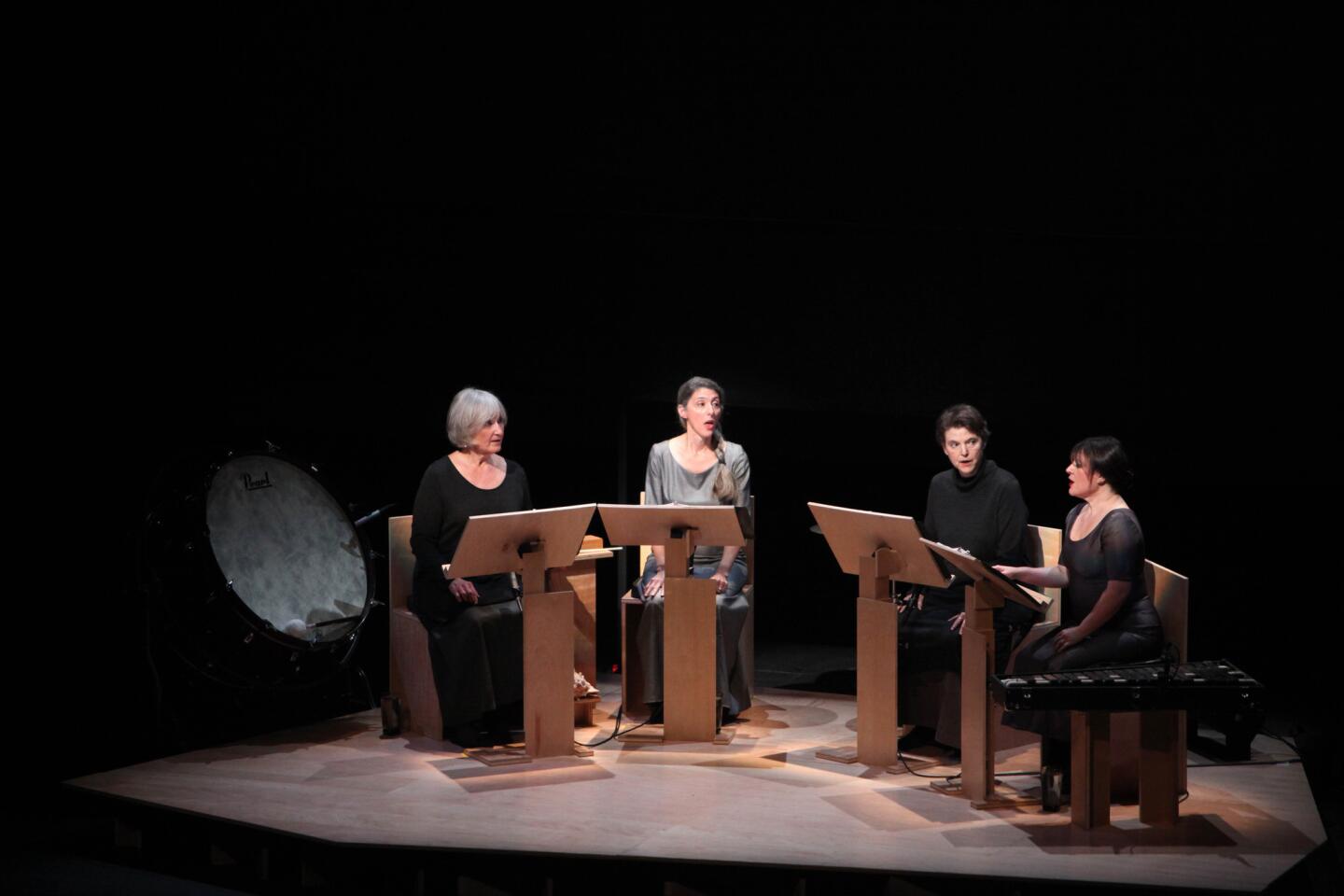
REVIEW: How David Lang’s ‘love fail’ succeeds sublimely (Michael Robinson Chavez / Los Angeles Times)
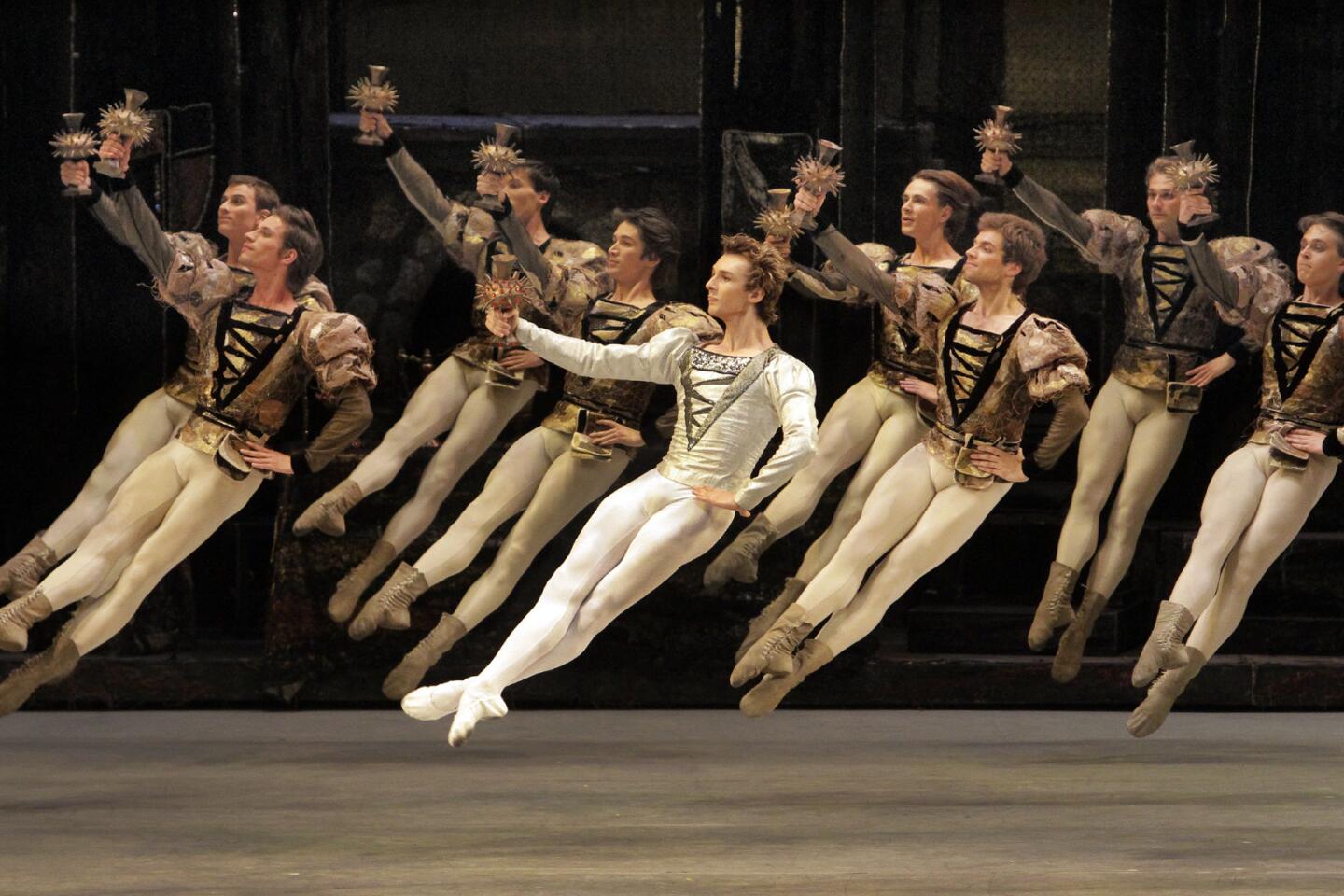
REVIEW: Bolshoi’s ‘Lake’ is sometimes choppy, sometimes smooth | Photos (Lawrence K. Ho / Los Angeles Times)

MORE: Glorya Kaufman gives USC millions to build a dance school (Al Seib / Los Angeles Times)
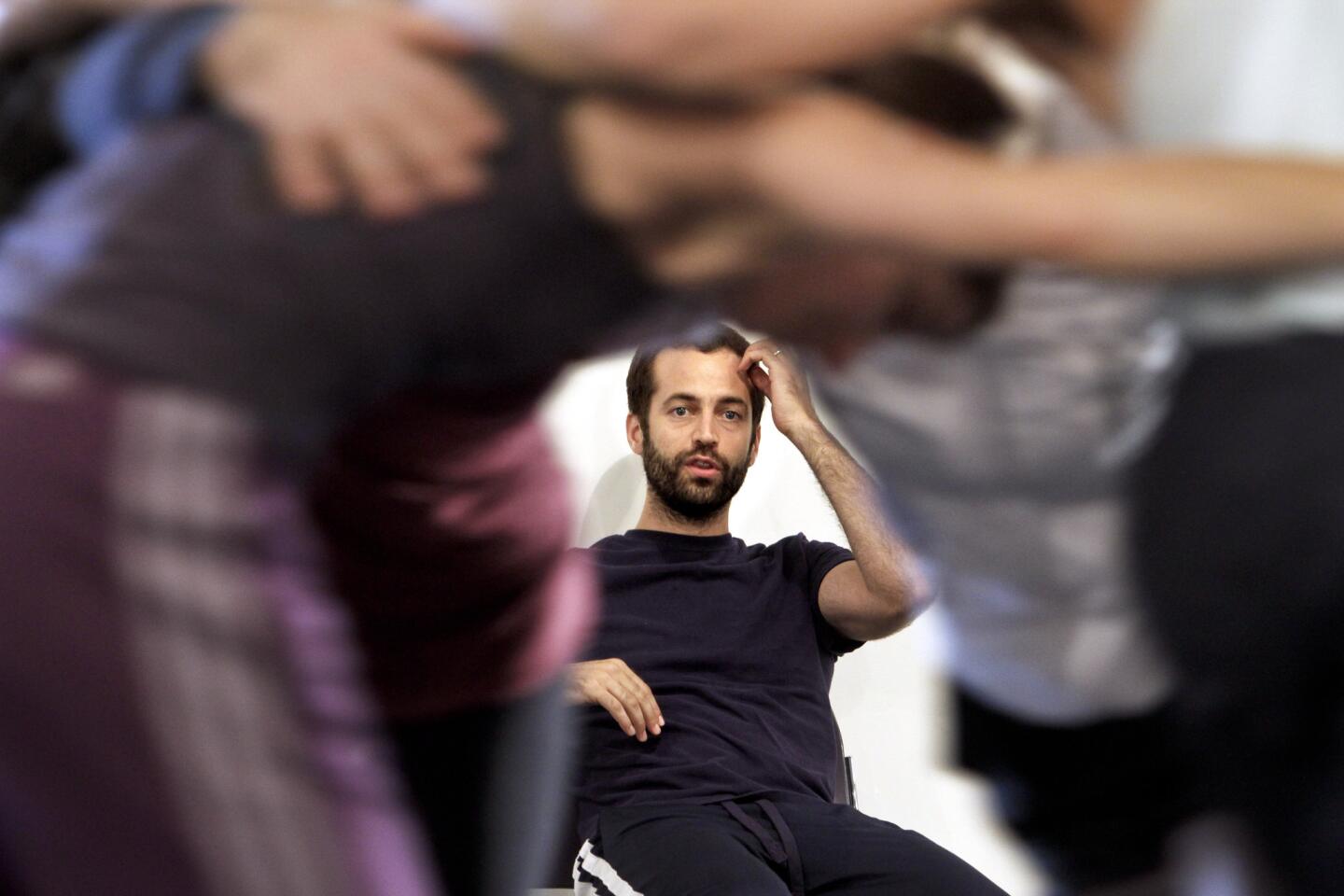
MORE: Benjamin Millepied gets moving in Los Angeles | Photos | Review (Ricardo DeAratanha / Los Angeles Times)

REVIEW: Barbra Streisand puts the Hollywood Bowl under her spell (Michael Robinson Chavez / Los Angeles Times)
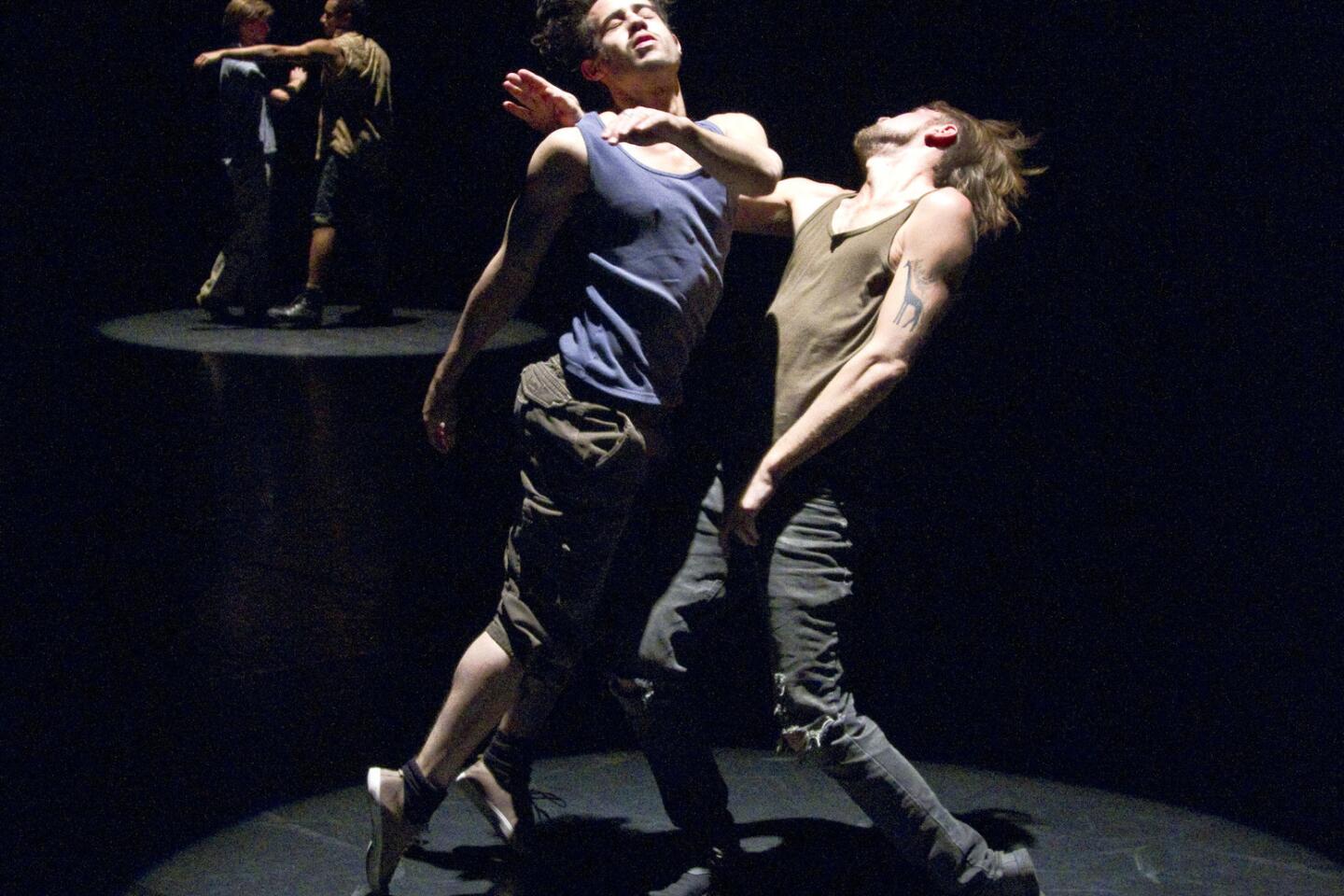
REVIEW: Desire and sexual politics whirl among ‘Them’ (Ricardo DeAratanha / Los Angeles Times)
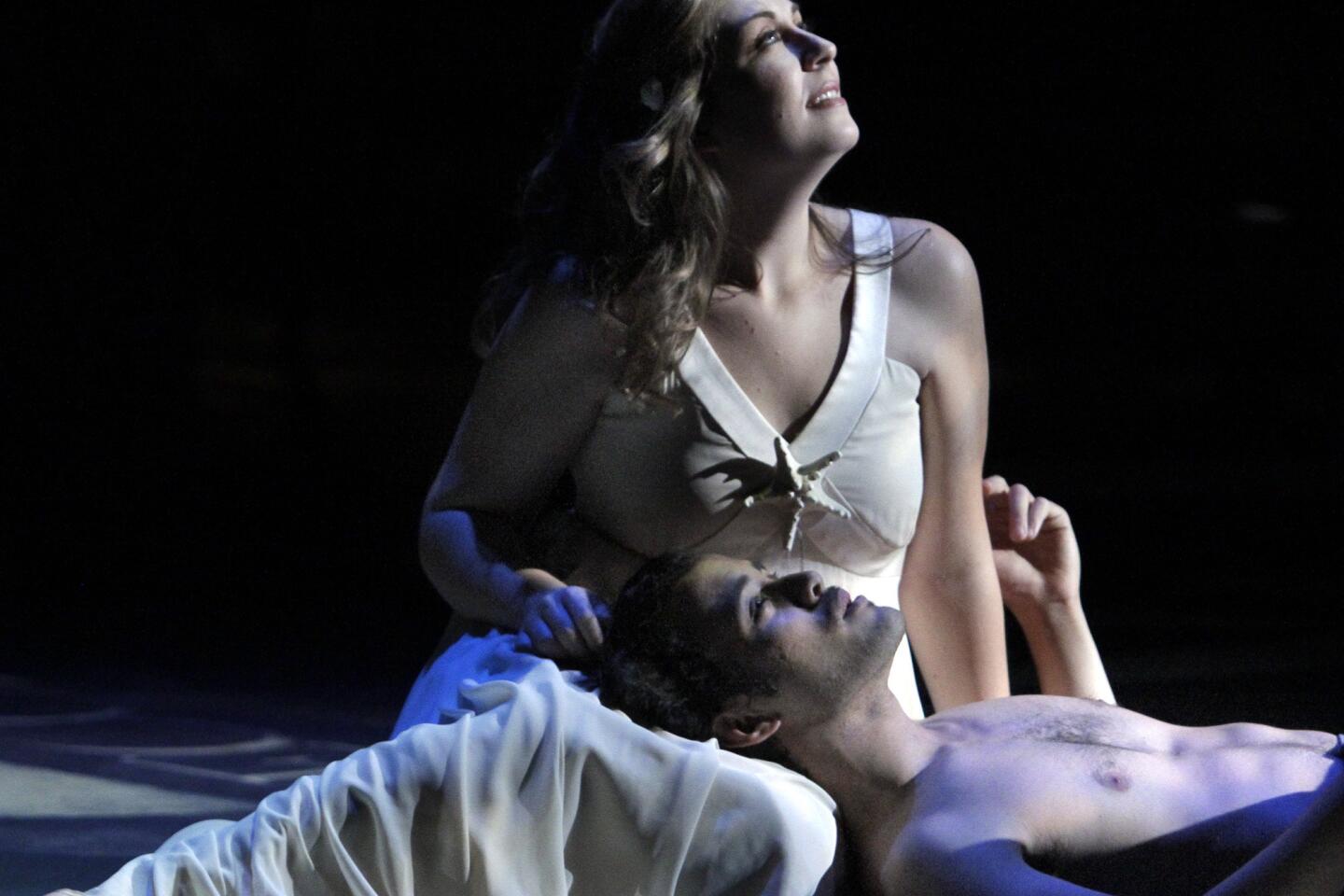
REVIEW: Two ways to capture magic of ‘The Tempest’ | Photos (Lawrence K. Ho / Los Angeles Times)
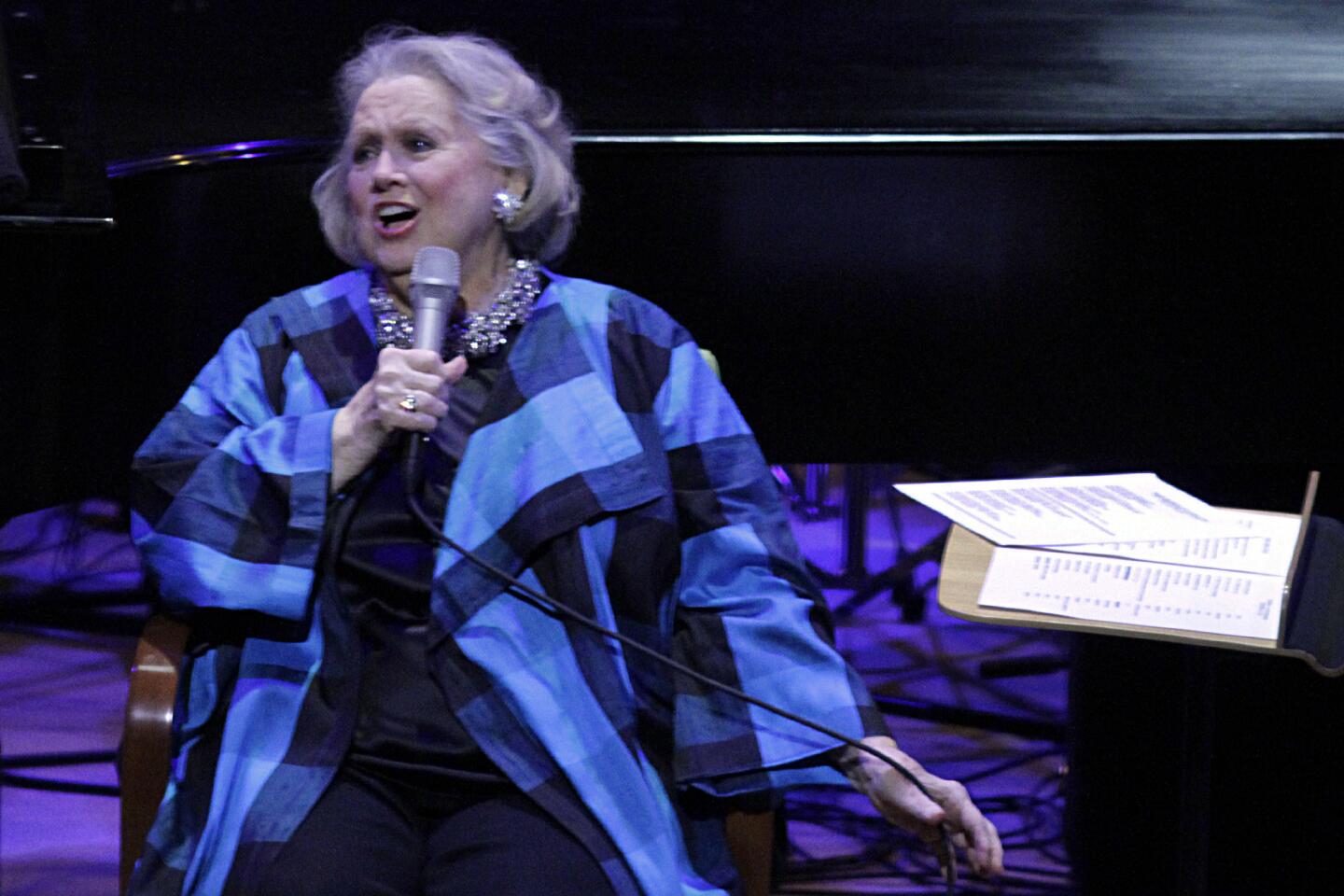
REVIEW: Barbara Cook rejuvenates song standards (Lawrence K. Ho / Los Angeles Times)
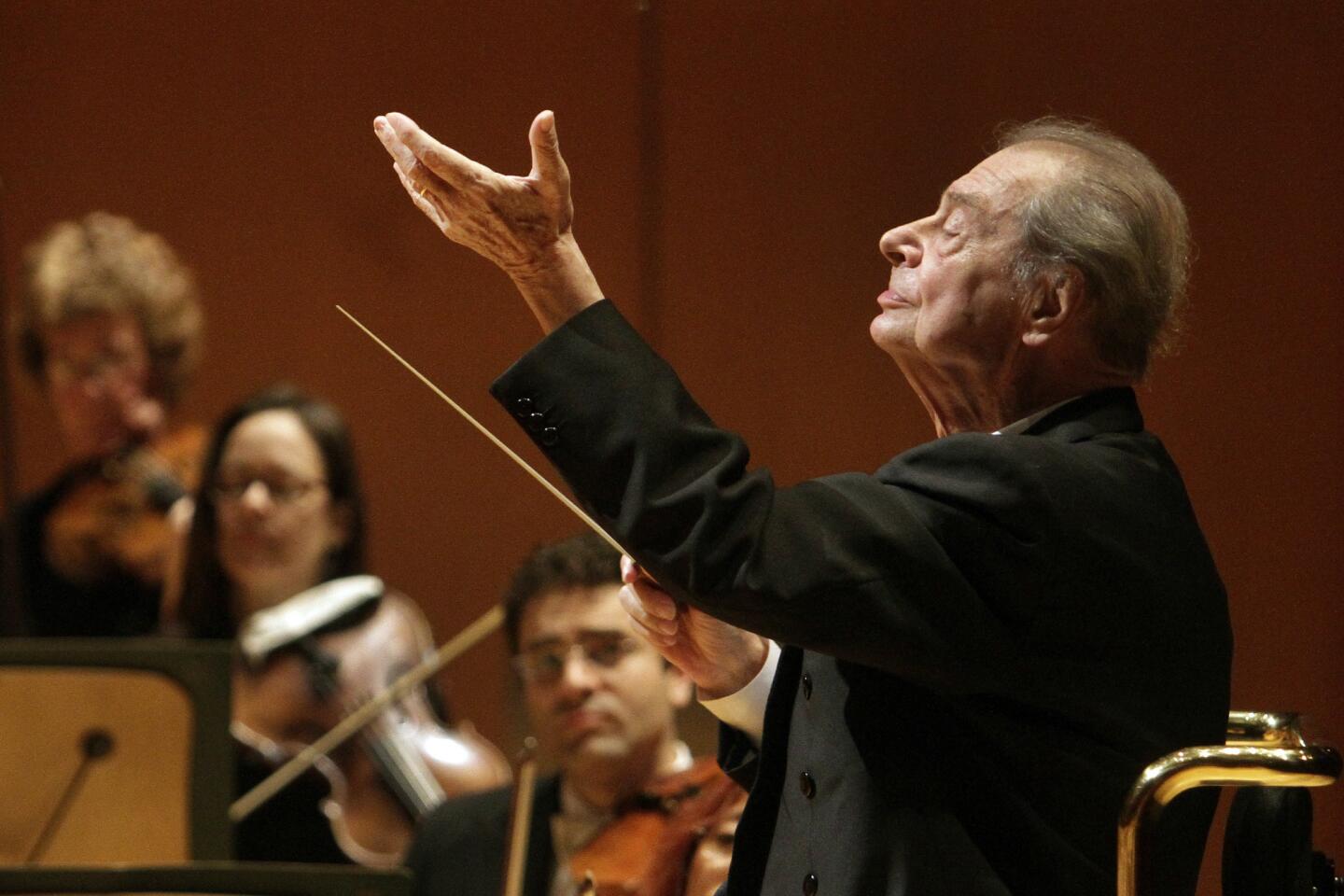
MORE: Rafael Fruhbeck de Burgos, Lynn Harrell at Disney Hall (Lawrence K. Ho / Los Angeles Times)
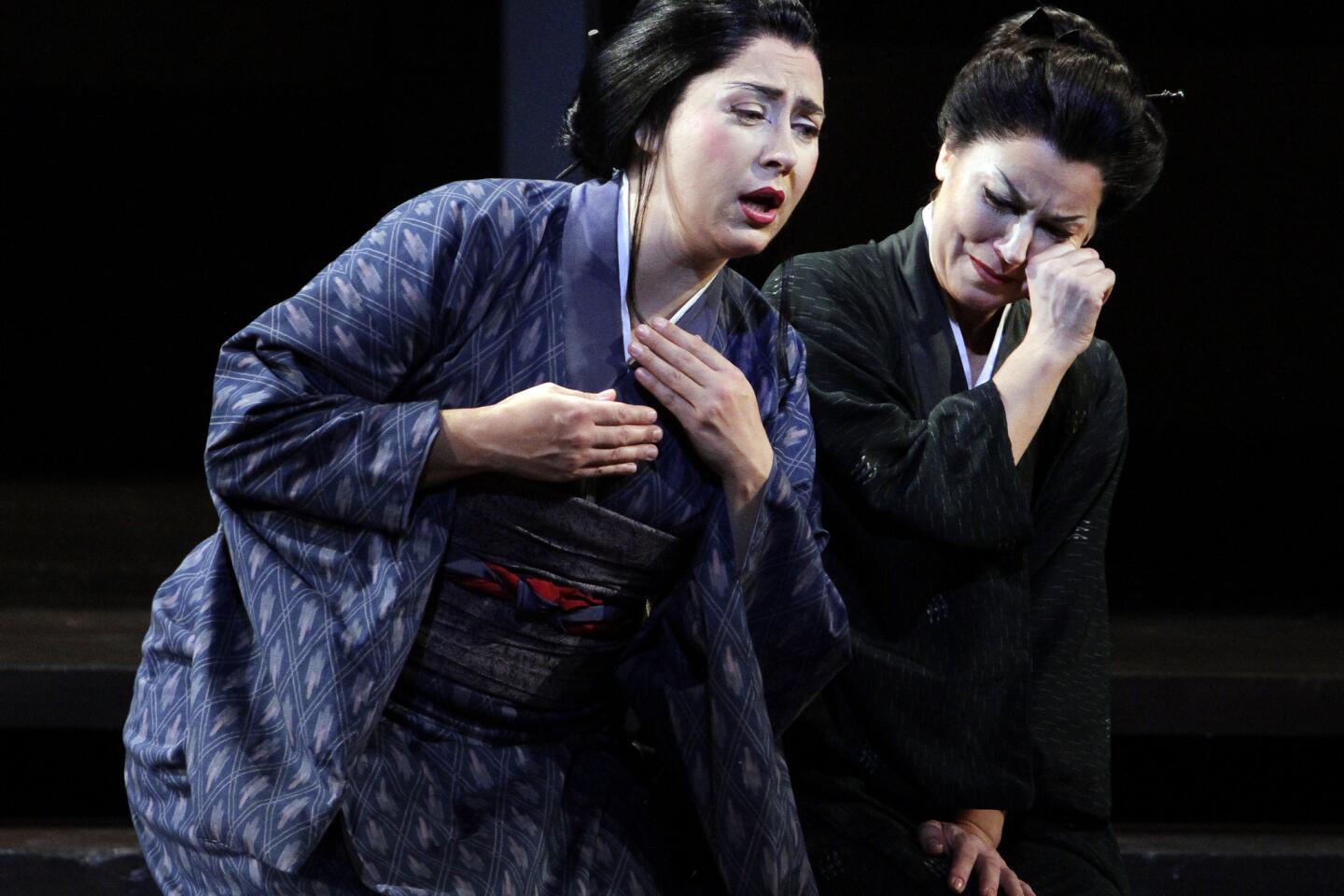
REVIEW: Some bright spots in a lesser ‘Madame Butterfly’ | Photos (Lawrence K. Ho / Los Angeles Times)
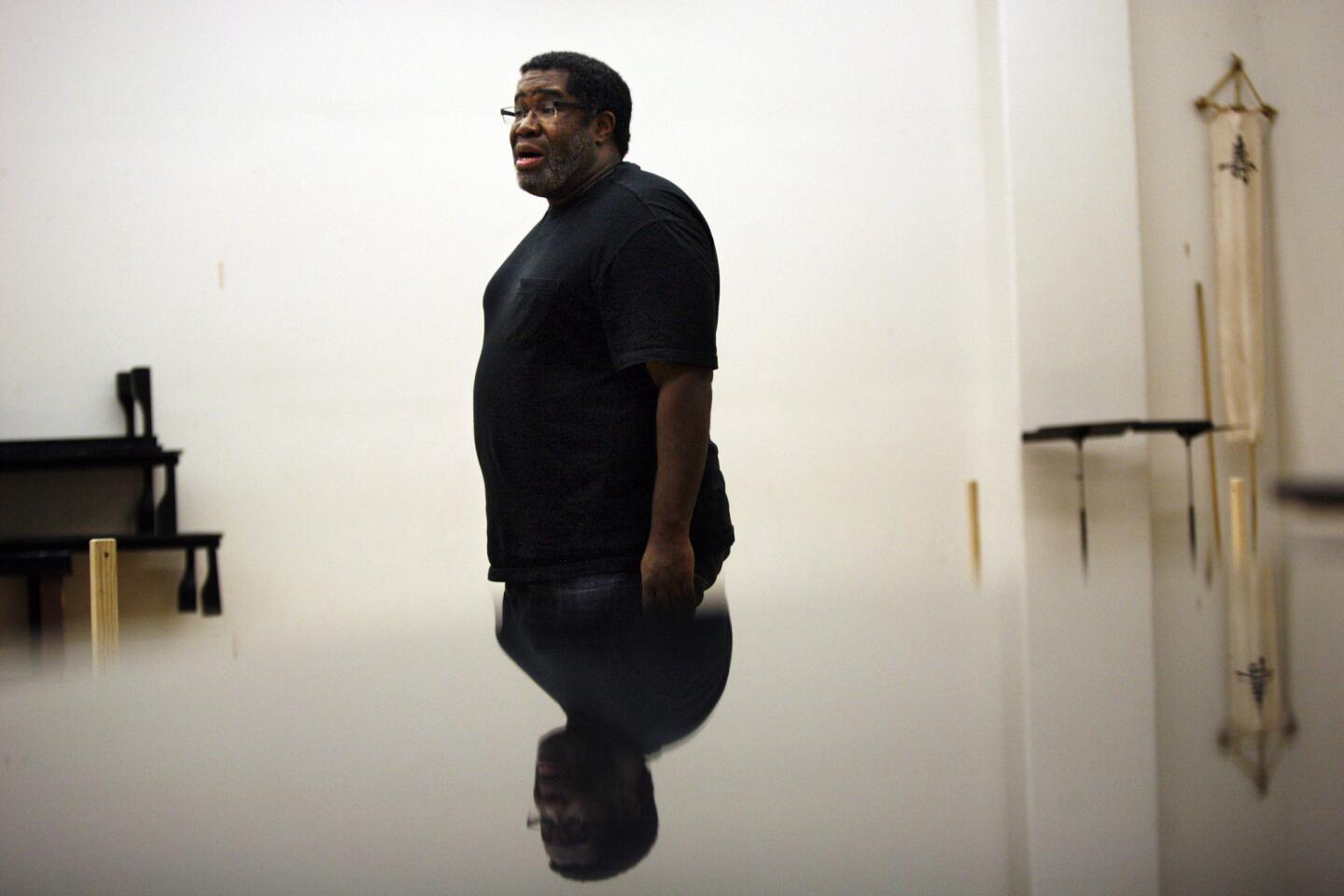
MORE: Opera’s ever-inquisitive Eric Owens is in high demand (Bob Chamberlin / Los Angeles Times)
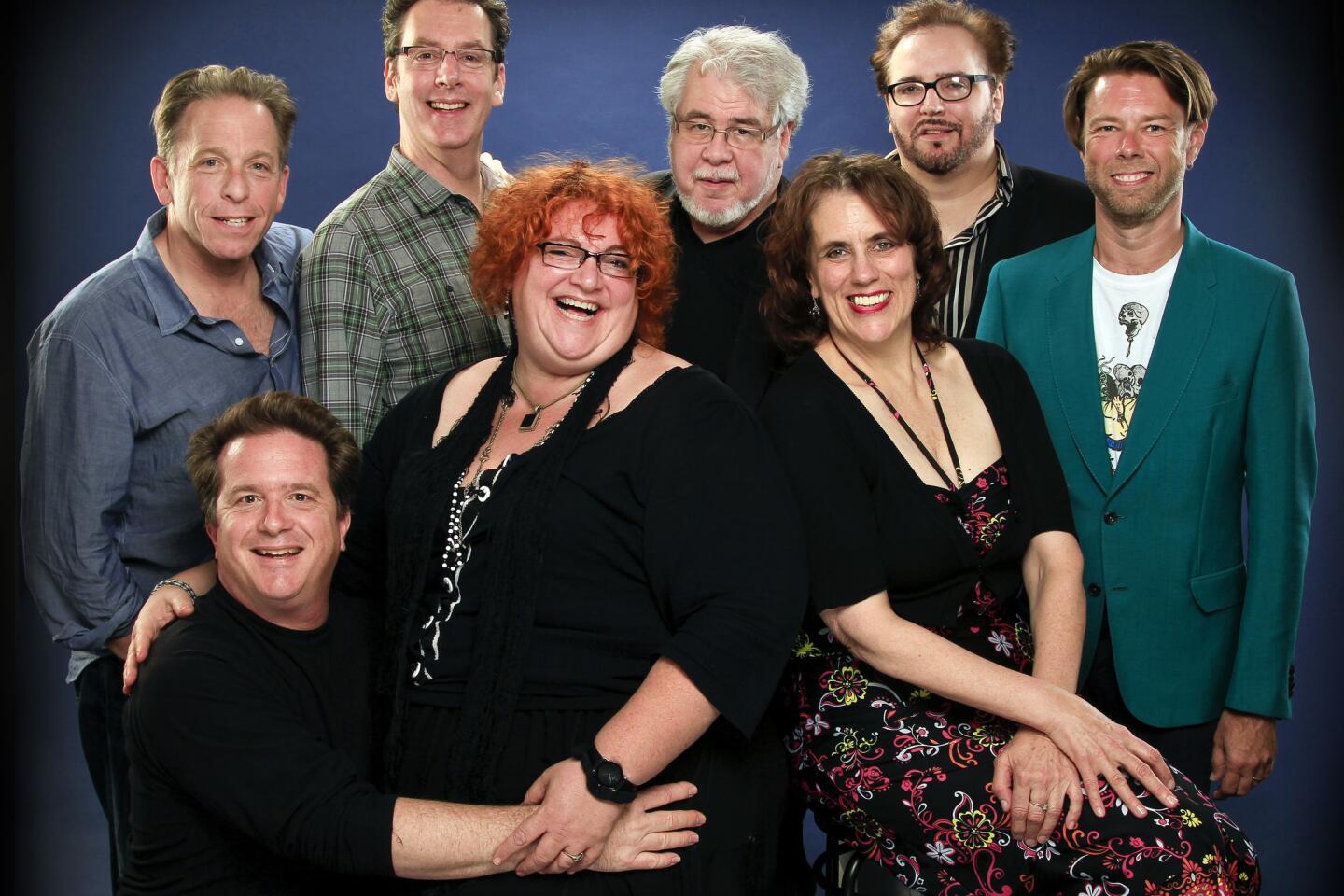
Critic’s Notebook: The joys and challenges of the L.A. small-theater scene (Ricardo DeAratanha / Los Angeles Times)

MORE: Christopher Hawthorne’s On the Boulevards Project (Luis Cinco / Los Angeles Times)


MORE: George Takei builds on legacy with ‘Allegiance’ at the Old Globe (Don Bartletti / Los Angeles Times)

MORE: Emily Mann a natural to direct ‘Streetcar’ and ‘The Convert’ (Carolyn Cole / Los Angeles Times)

REVIEW: Lackluster Expo Line reflects Metro’s weak grasp of design (Mark Boster / Los Angeles Times)
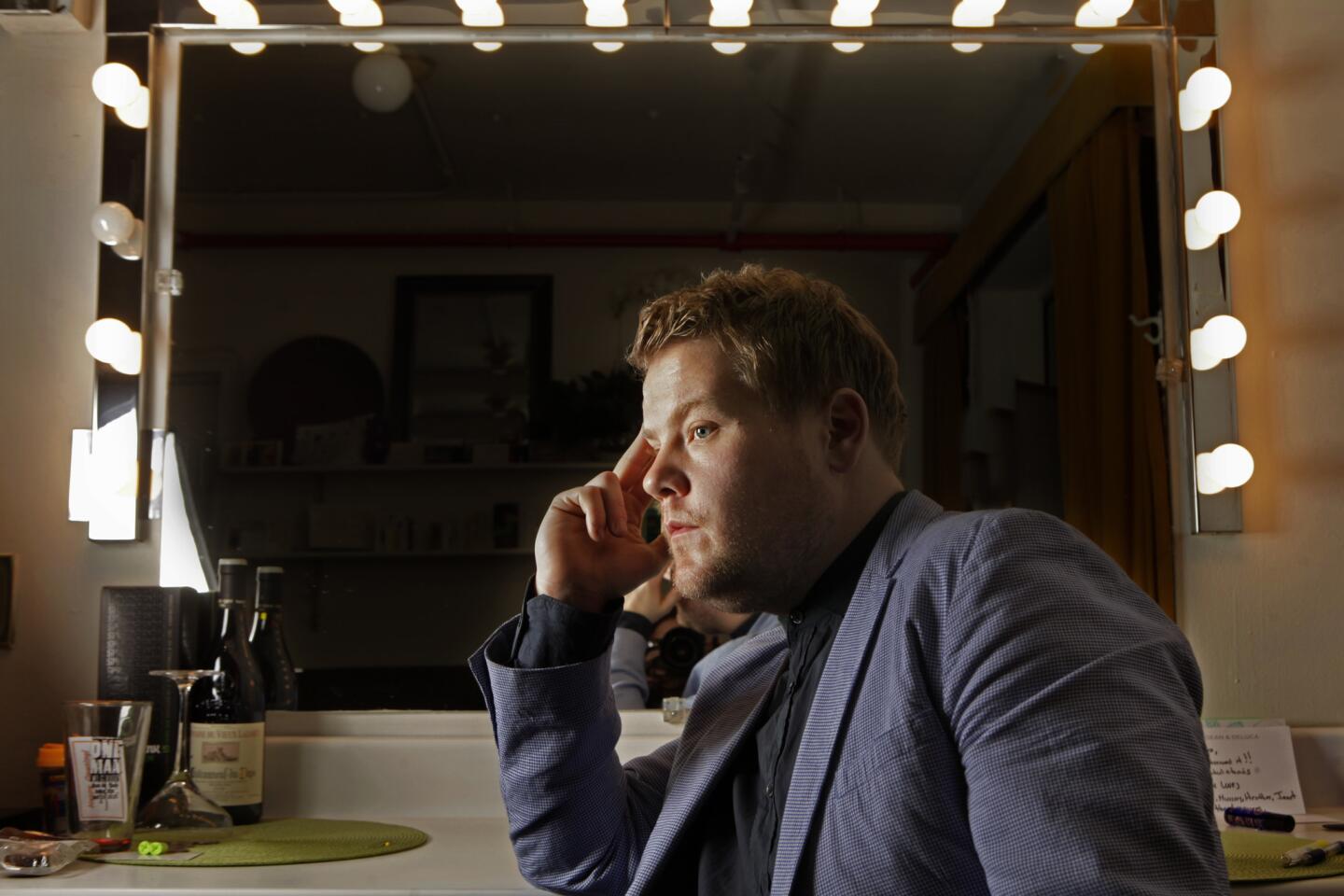
MORE: James Corden, ‘One Man’ and a plethora of talent (Carolyn Cole / Los Angeles Times)
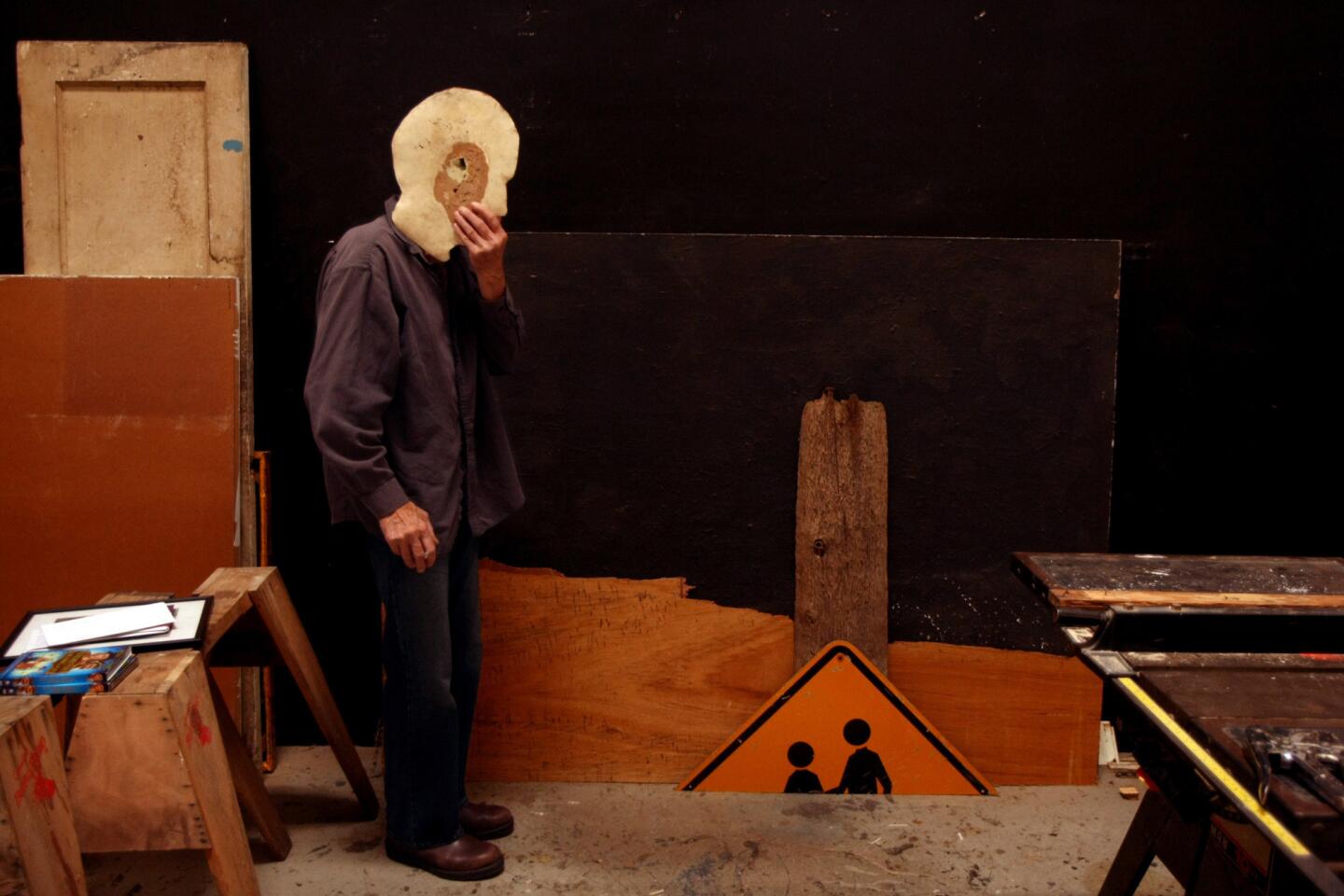
MORE: Llyn Foulkes’ art of raw emotion (Genaro Molina / Los Angeles Times)

MORE: Mickalene Thomas, up close and very personal (Al Seib / Los Angeles Times)
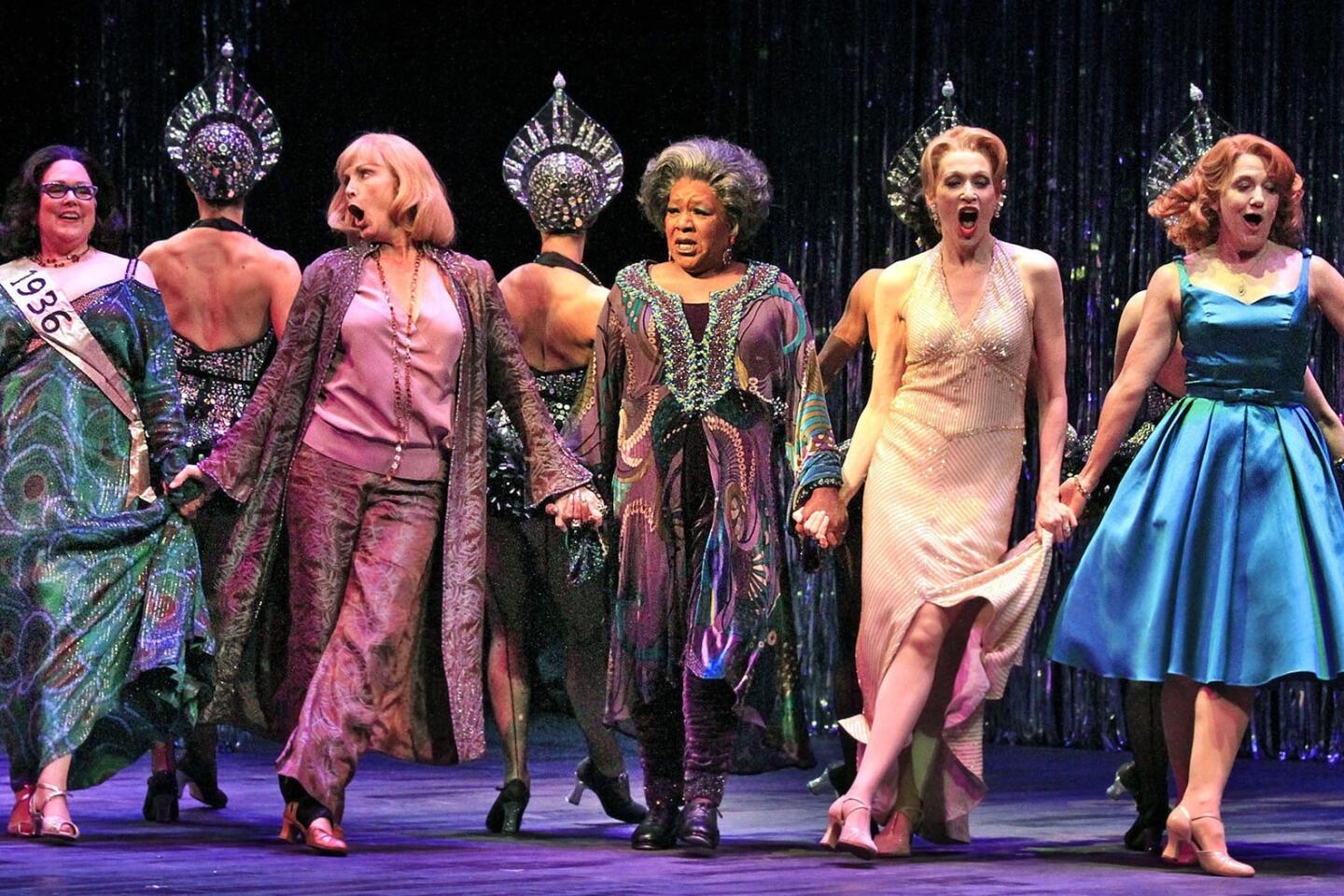
REVIEW: “Follies” is a source of heartache and razzmatazz (Glenn Koenig / Los Angeles Times)

MORE: Will downtown L.A.’s Grand Park succeed? | Photos (Francine Orr / Los Angeles Times)
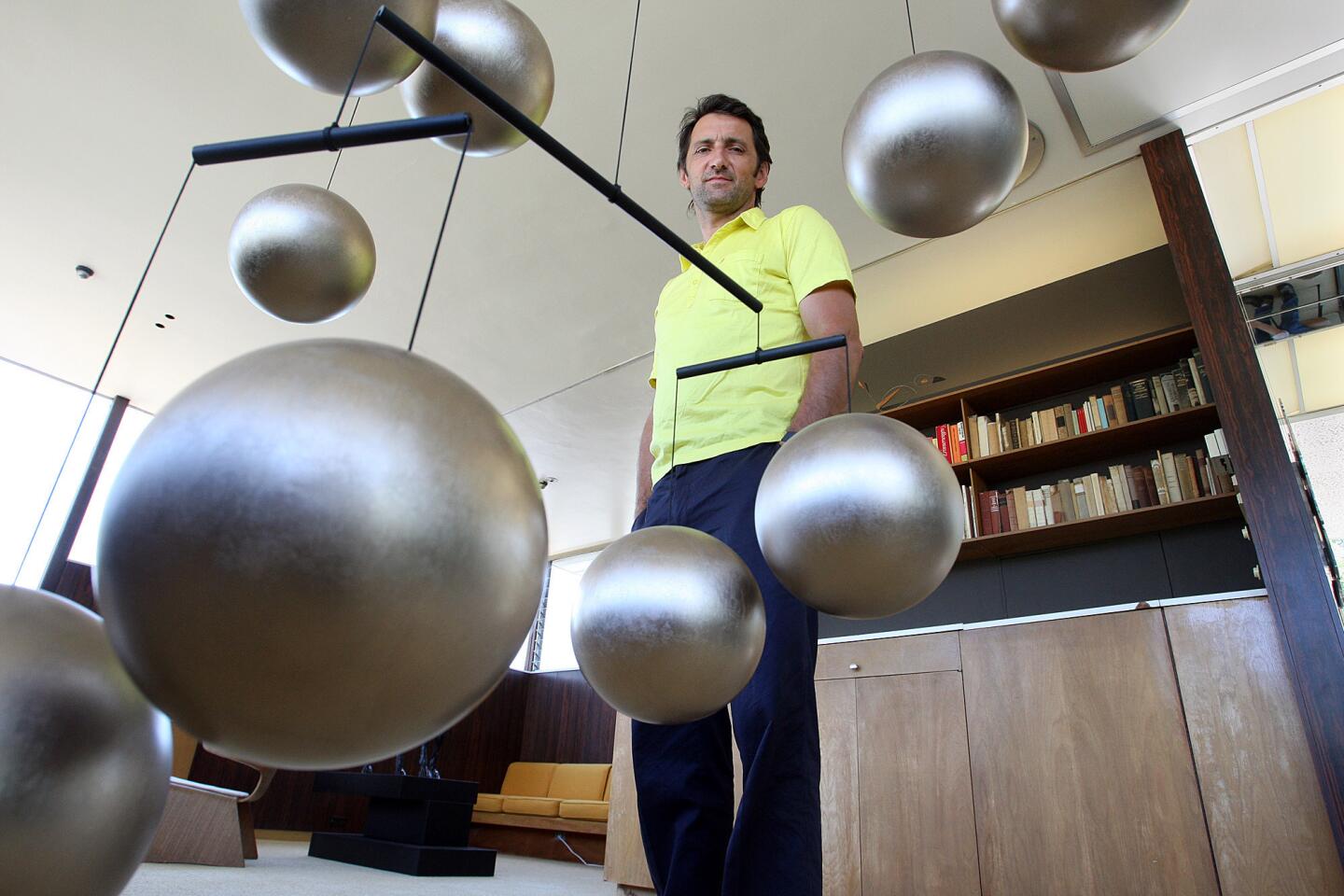
MORE: Artist Xavier Veilhan casts Richard Neutra’s VDL House in a new light (Gary Friedman / Los Angeles Times)
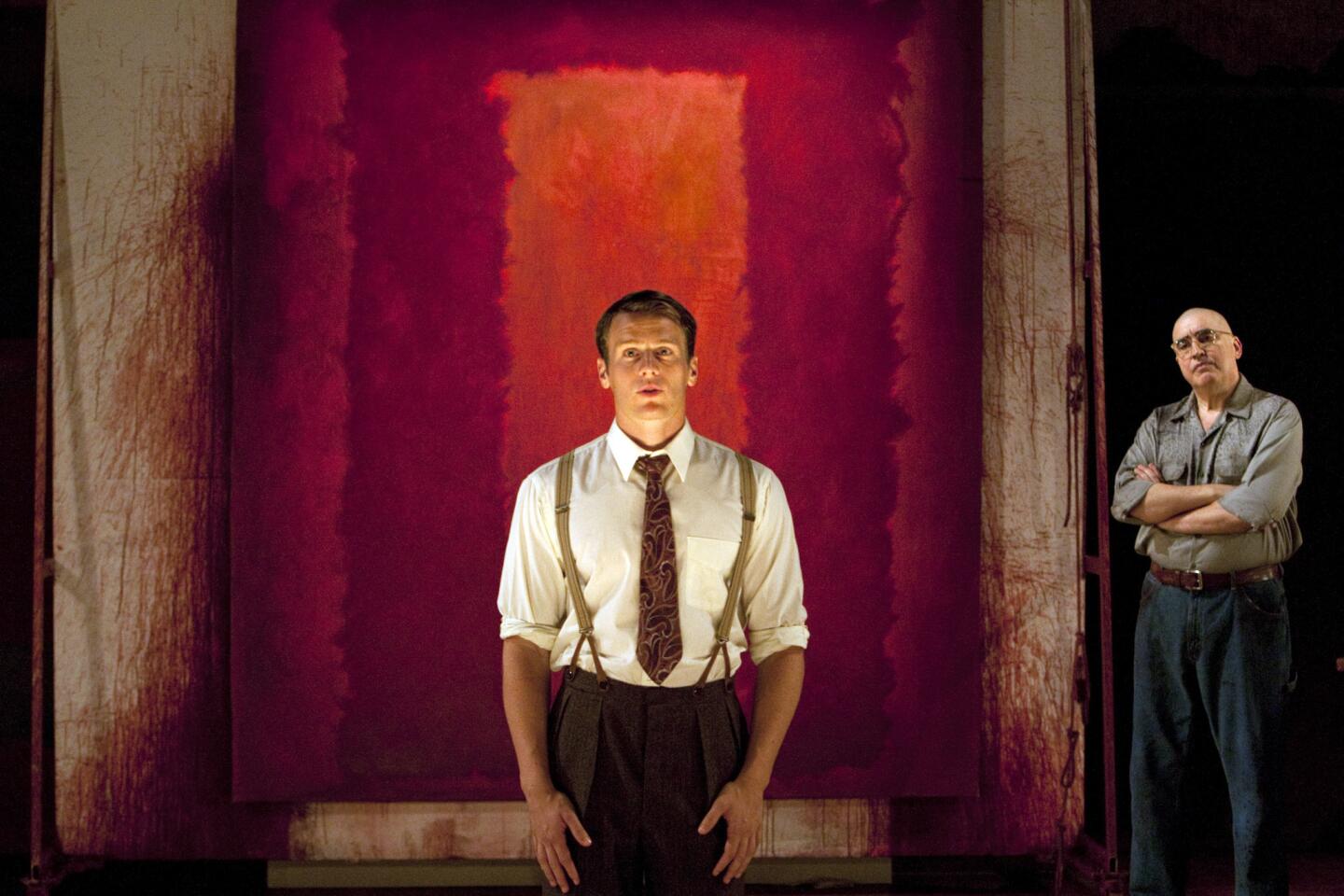
REVIEW: A blazing “Red” with Alfred Molina as Mark Rothko (Gina Ferazzi / Los Angeles Times)
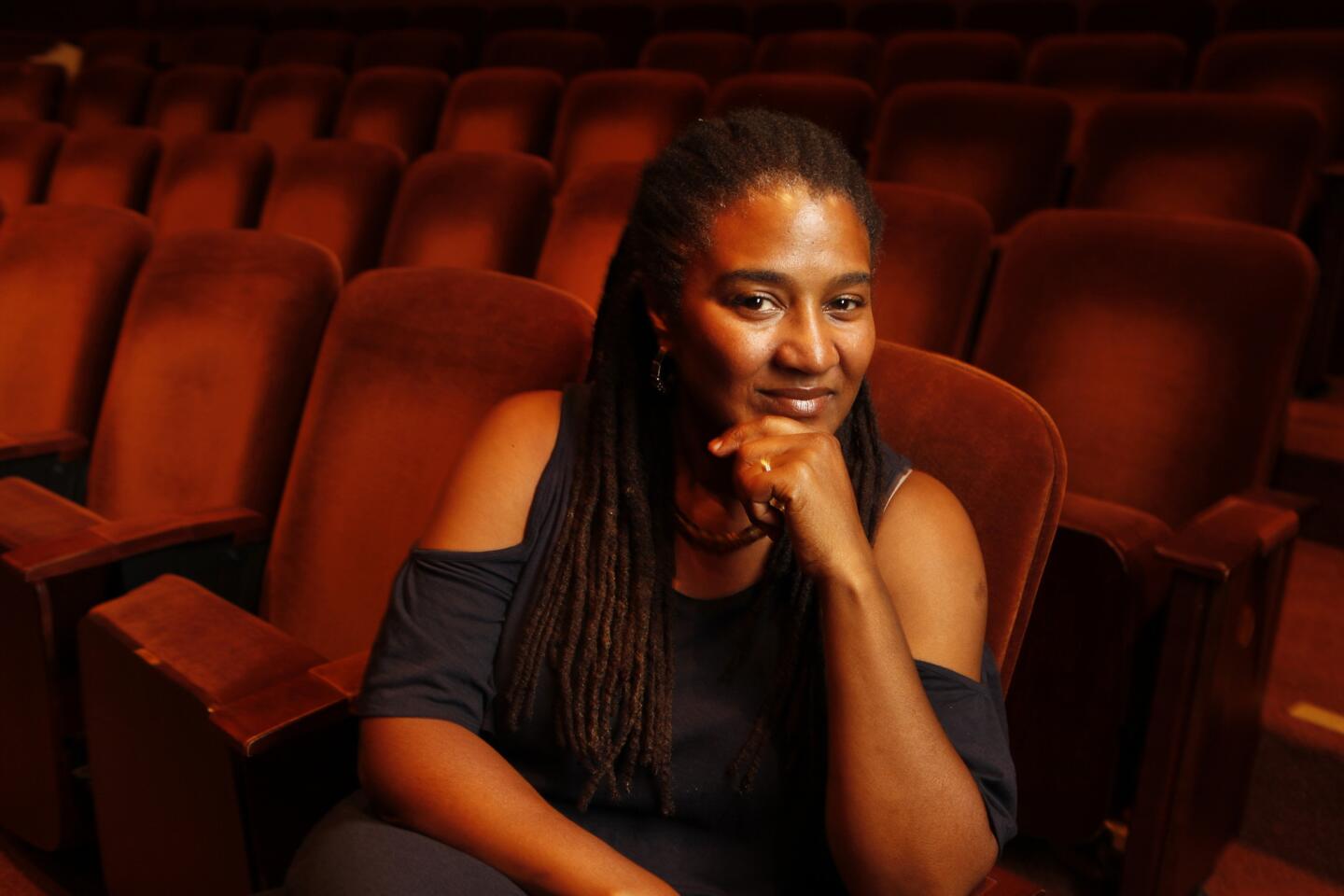
MORE: Lynn Nottage wants “Vera Stark” to be a conversation starter (Al Seib / Los Angeles Times)
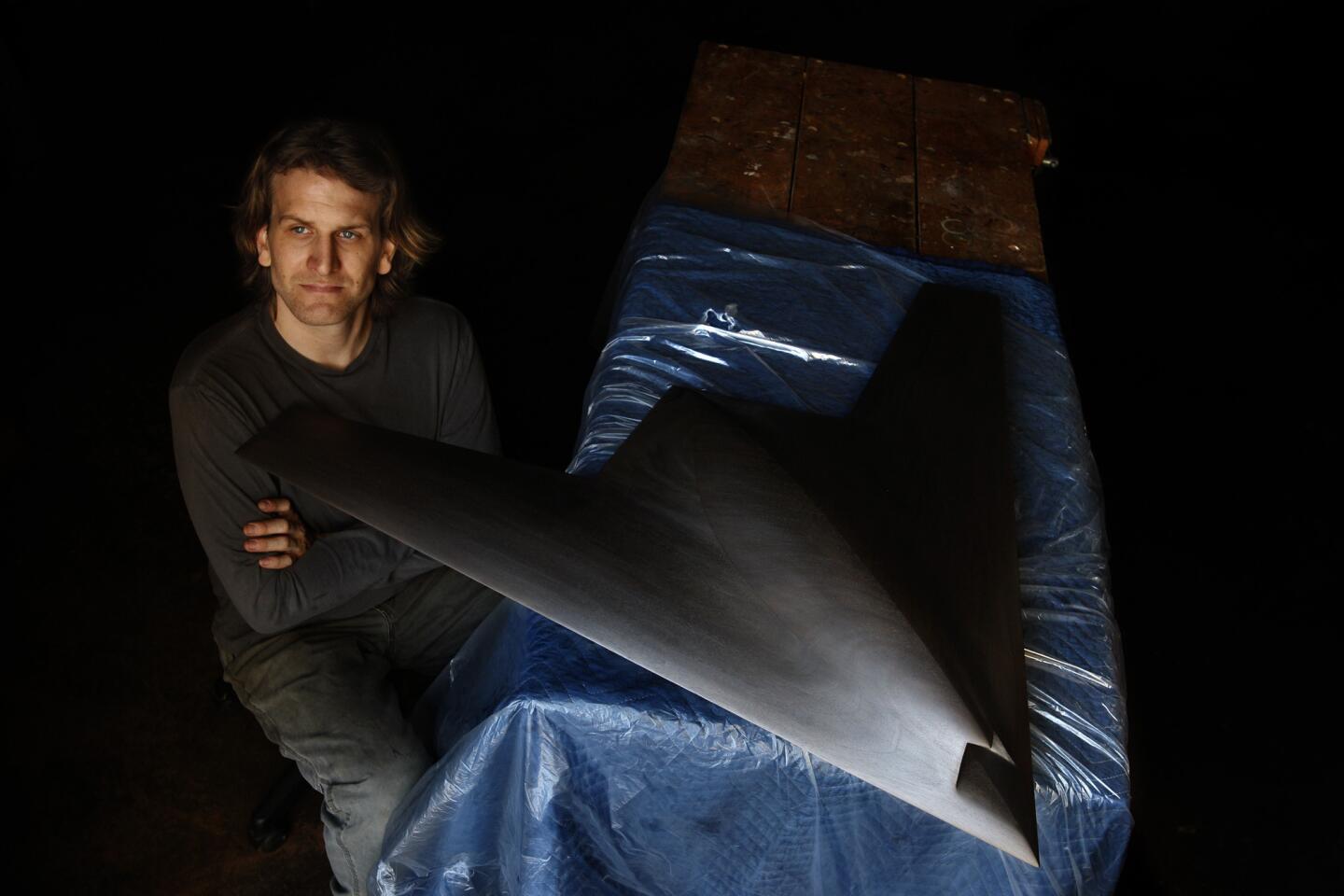
MORE: In the Studio: Ben Jackel uses broad ax strokes (Genaro Molina / Los Angeles Times)
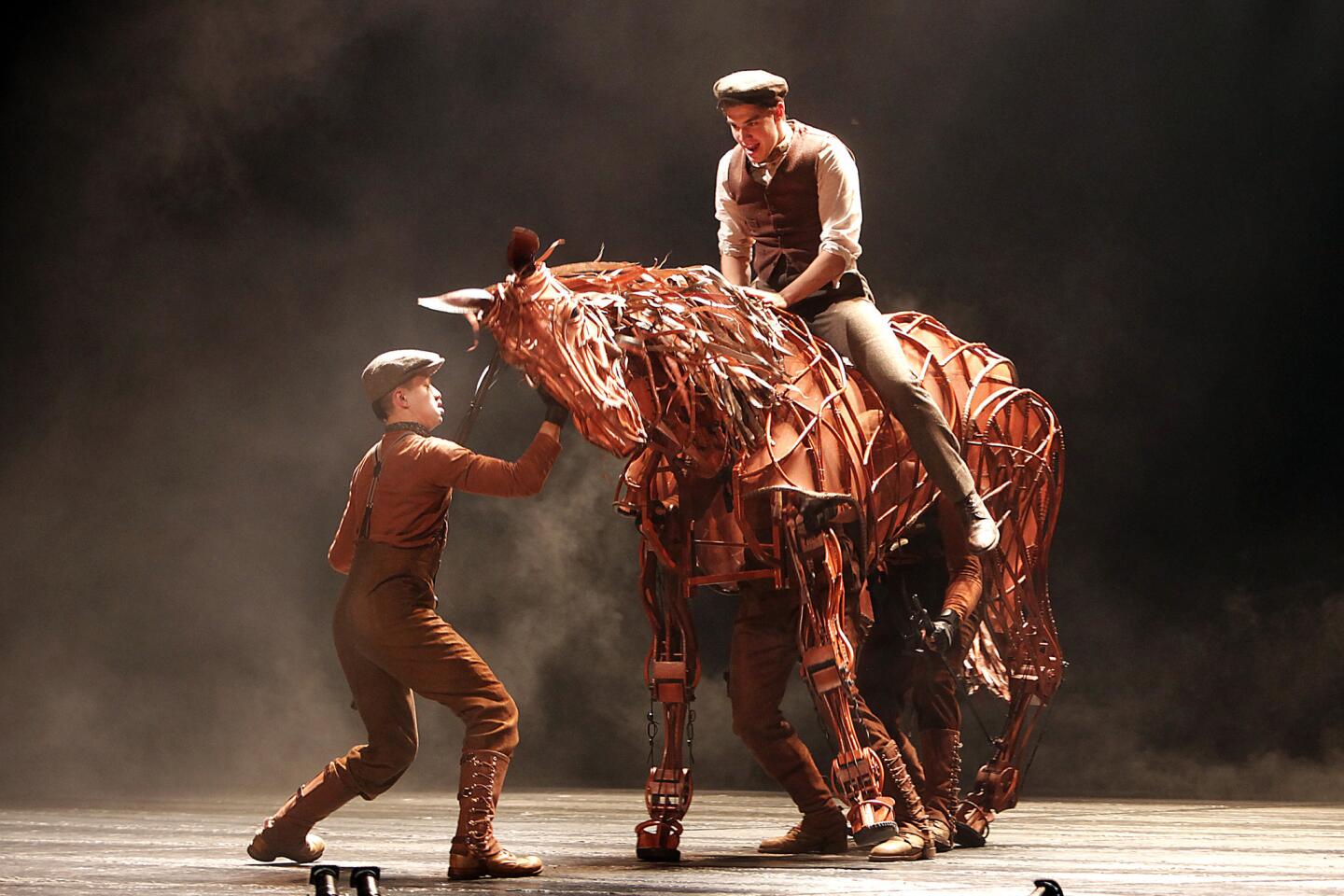
Review: “War Horse” at Ahmanson Theatre is a marvel of stagecraft | Photos (Kirk McKoy / Los Angeles Times)
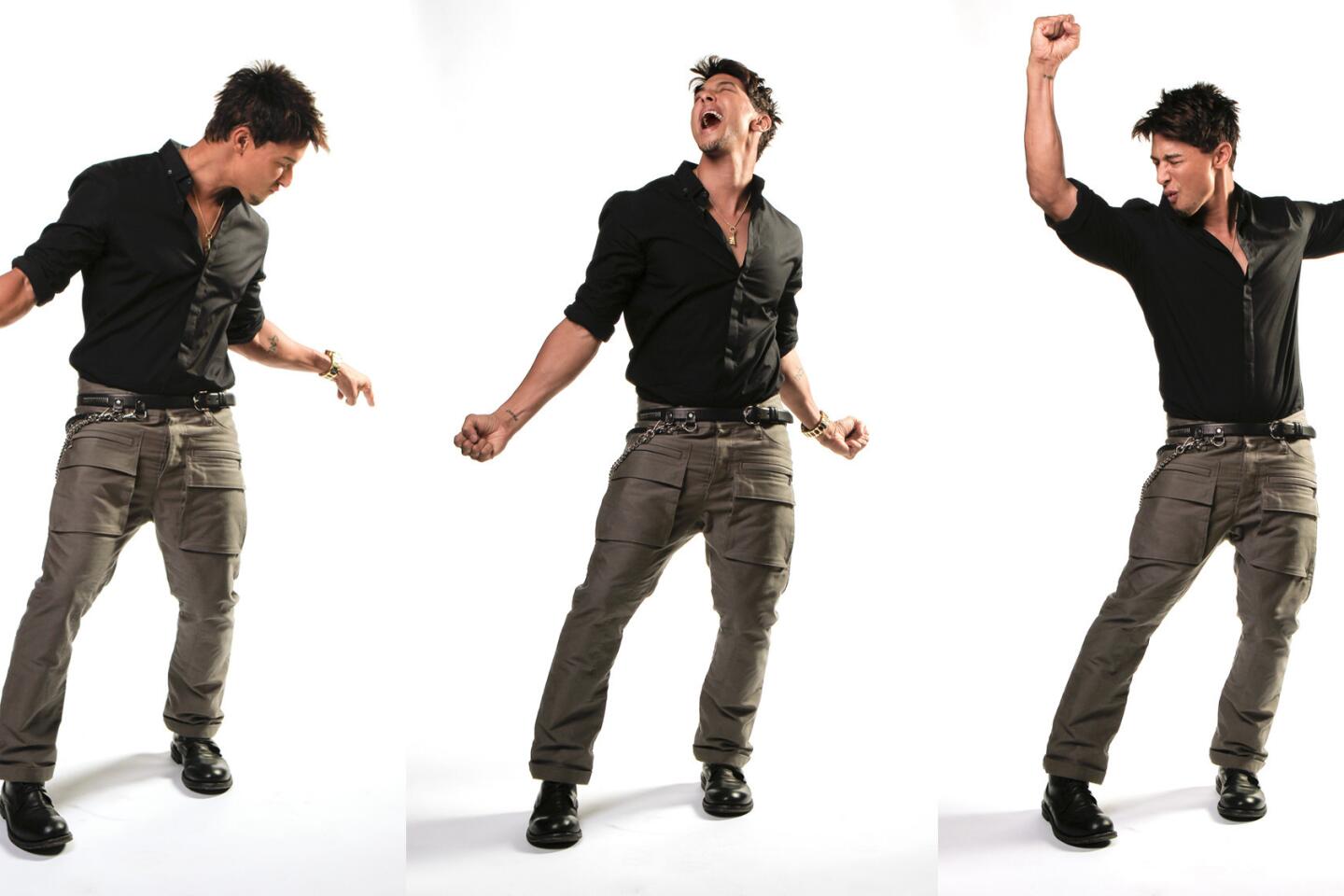
More: A pop choreographer with a busy schedule (Ricardo DeAratanha / Los Angeles Times)

More: Hammer biennial lends artists a helping hand (Kirk McKoy / Los Angeles Times)

More: Plácido Domingo leads an uptempo life (Robert Gauthier / Los Angeles Times)

More: In the moment with Cate Blanchett (Jay L. Clendenin / Los Angeles Times)
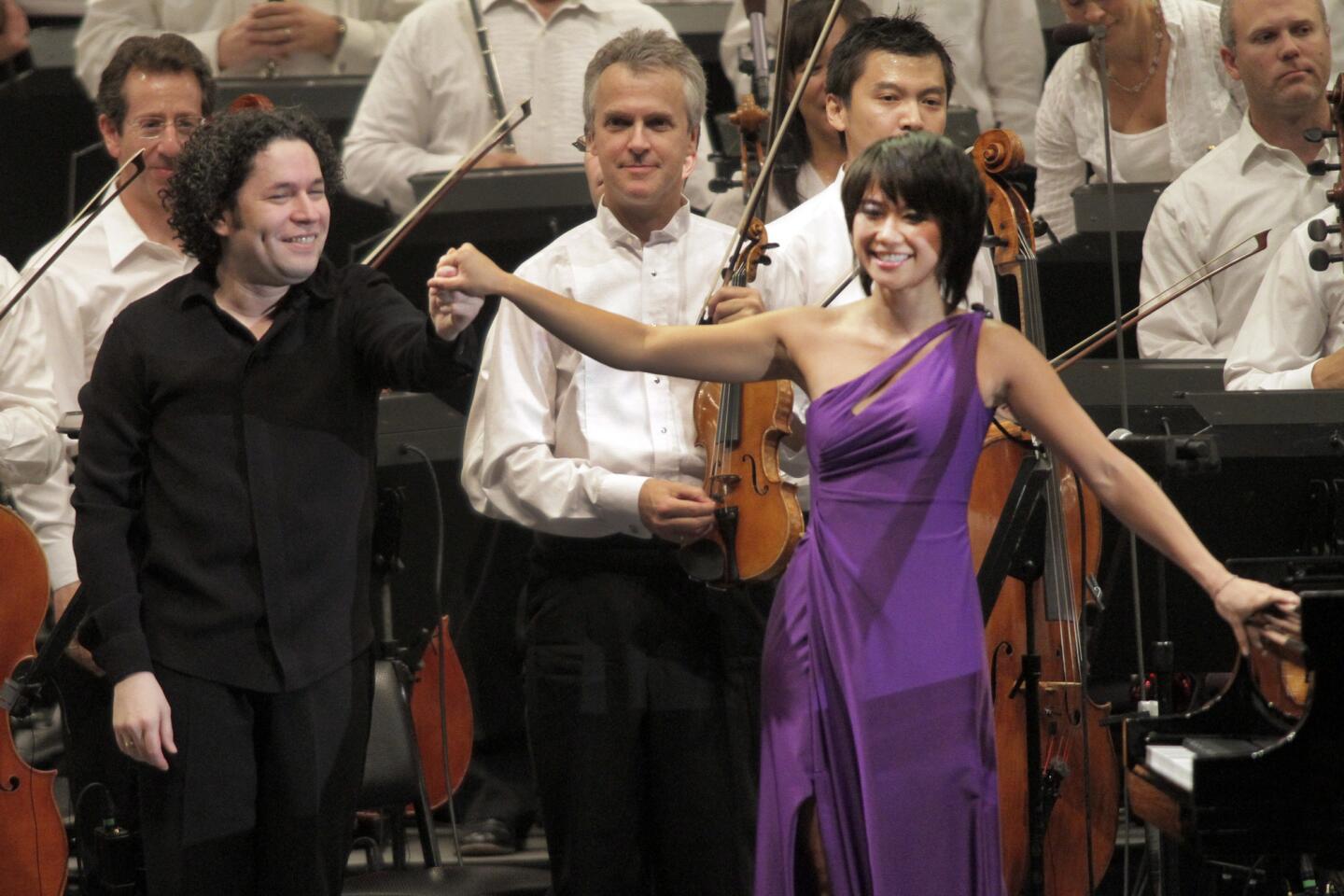
More: Yuja Wang turns heads at the Hollywood Bowl with a purple gown Photos (Lawrence K. Ho / Los Angeles Times)
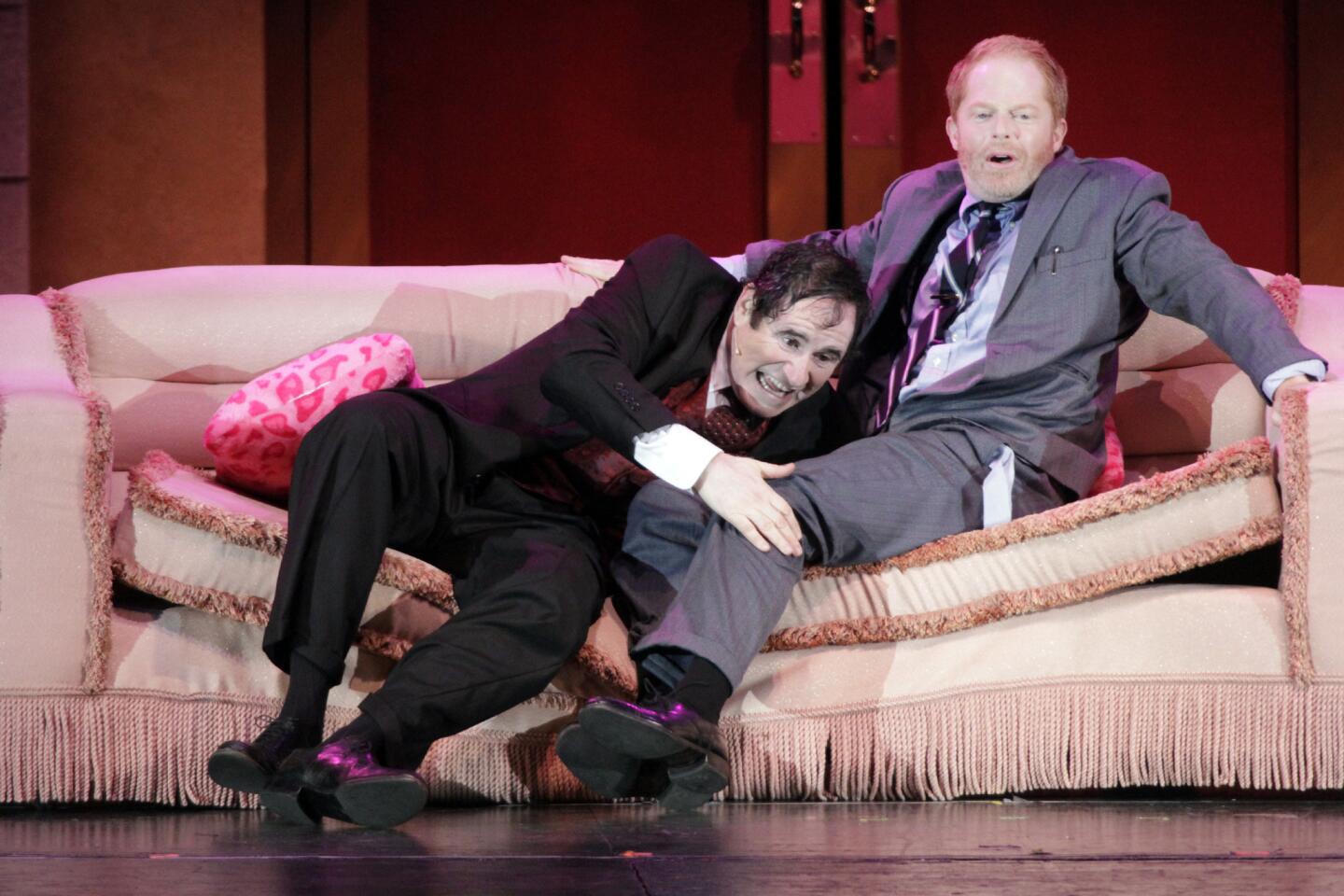
More: Jesse Tyler Ferguson takes on ‘The Producers’ at the Bowl | Review | Photos (Lawrence K. Ho / Los Angeles Times)

Review: LACMA’s new hunk ‘Levitated Mass’ has some substance | Critic’s Notebook: Art on an architectural scale at LACMA (Gina Ferazzi / Los Angeles Times)

Review: LACMA’s new hunk ‘Levitated Mass’ has some substance | Critic’s Notebook: Art on an architectural scale at LACMA (Mel Melcon / Los Angeles Times)
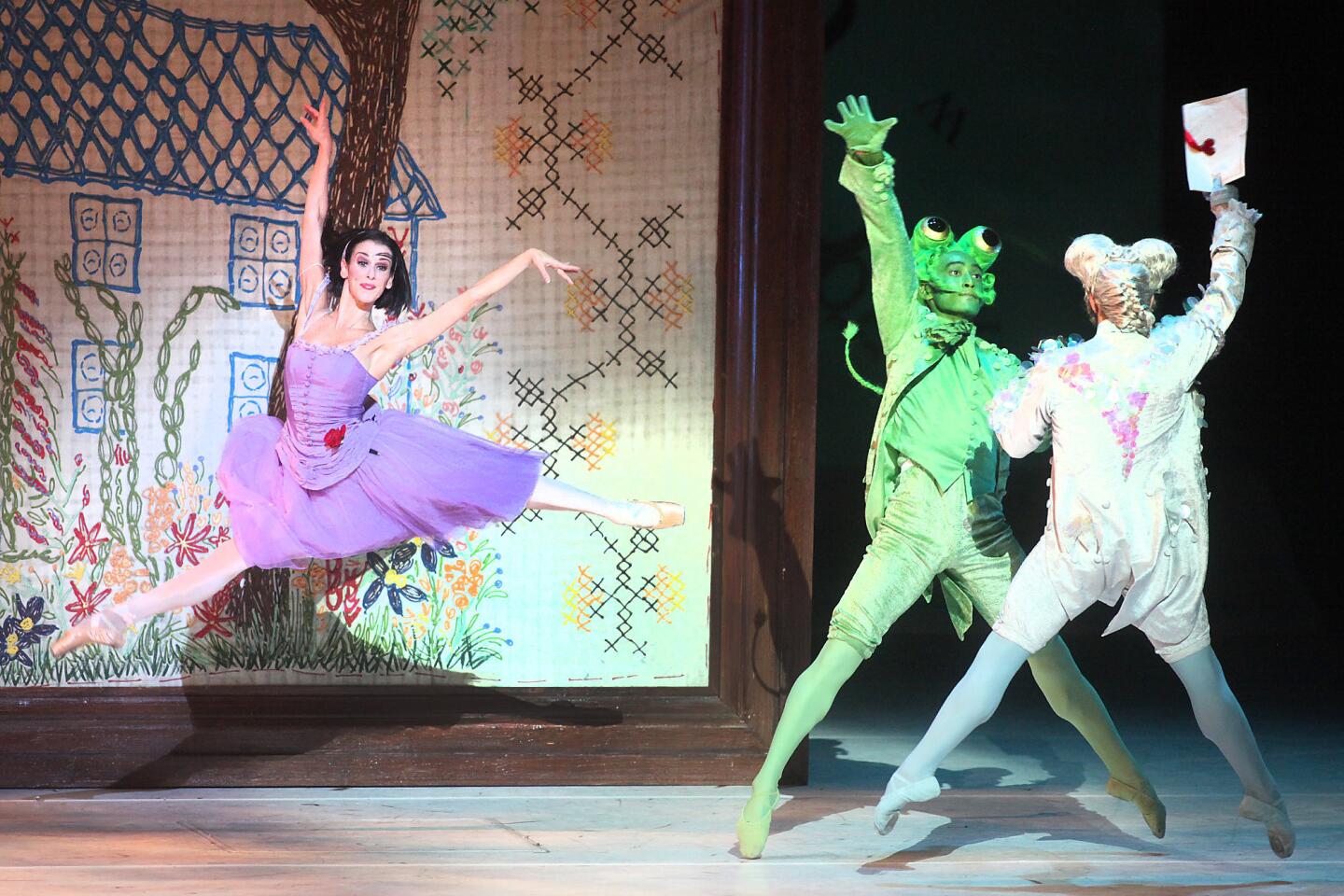
Review: Antic ‘Alice’s Adventures in Wonderland’ a scenic spectacle | More photos (Brian van der Brug / Los Angeles Times)

More: Q&A: Sanaa Lathan (Allen J. Schaben / Los Angeles Times)
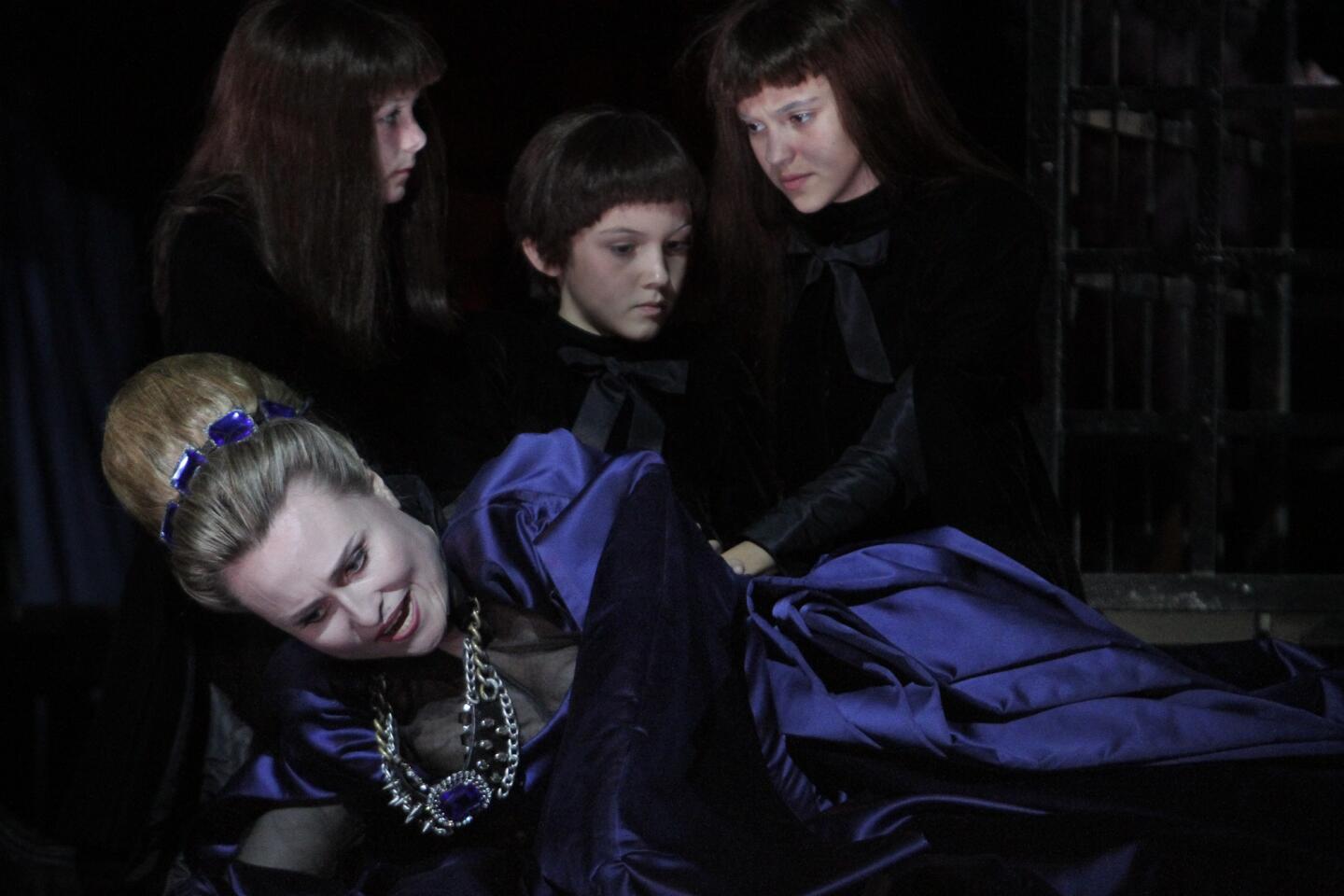
More: Los Angeles Opera takes fresh look at Verdi’s ‘The Two Foscari’ | Review (Lawrence K. Ho / Los Angeles Times)
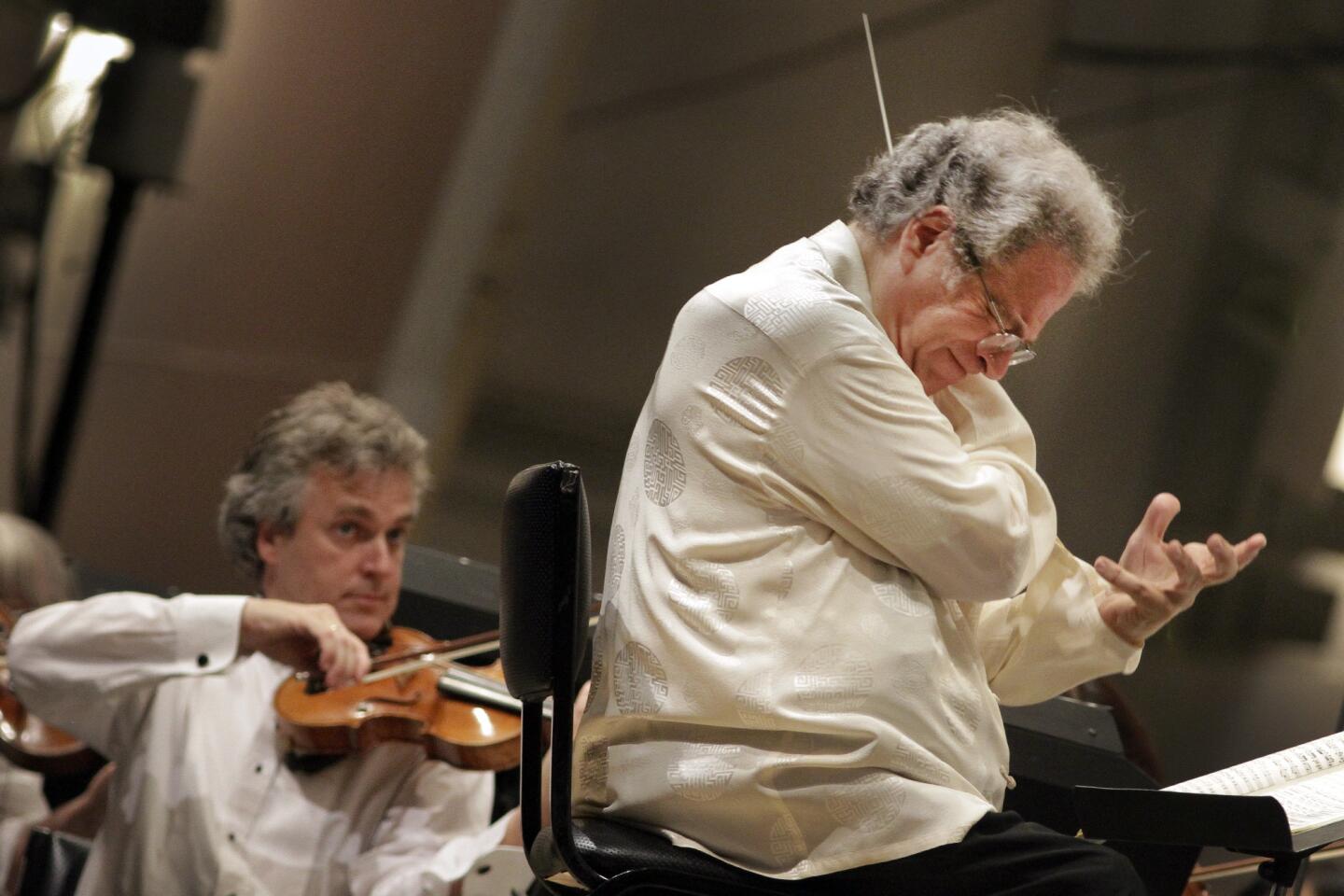
Review: Itzhak Perlman closes Hollywood Bowl classical season (Lawrence K. Ho / Los Angeles Times)
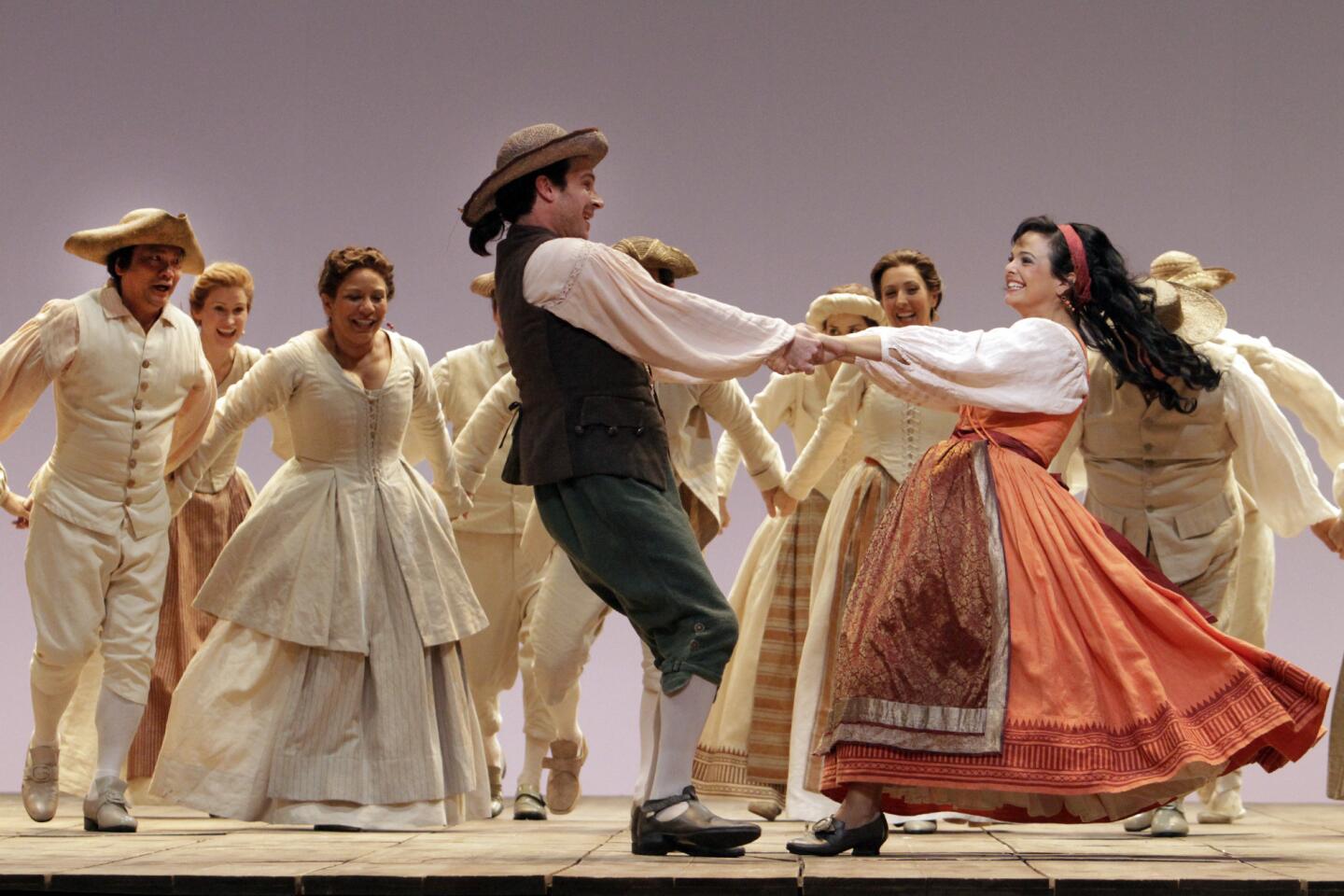
Review: L.A. Opera’s ‘Don Giovanni’ upholds tradition expertly | Photos (Lawrence K. Ho / Los Angeles Times)

More: Kristin Chenoweth warms up for California concerts (Carolyn Cole / Los Angeles Times)
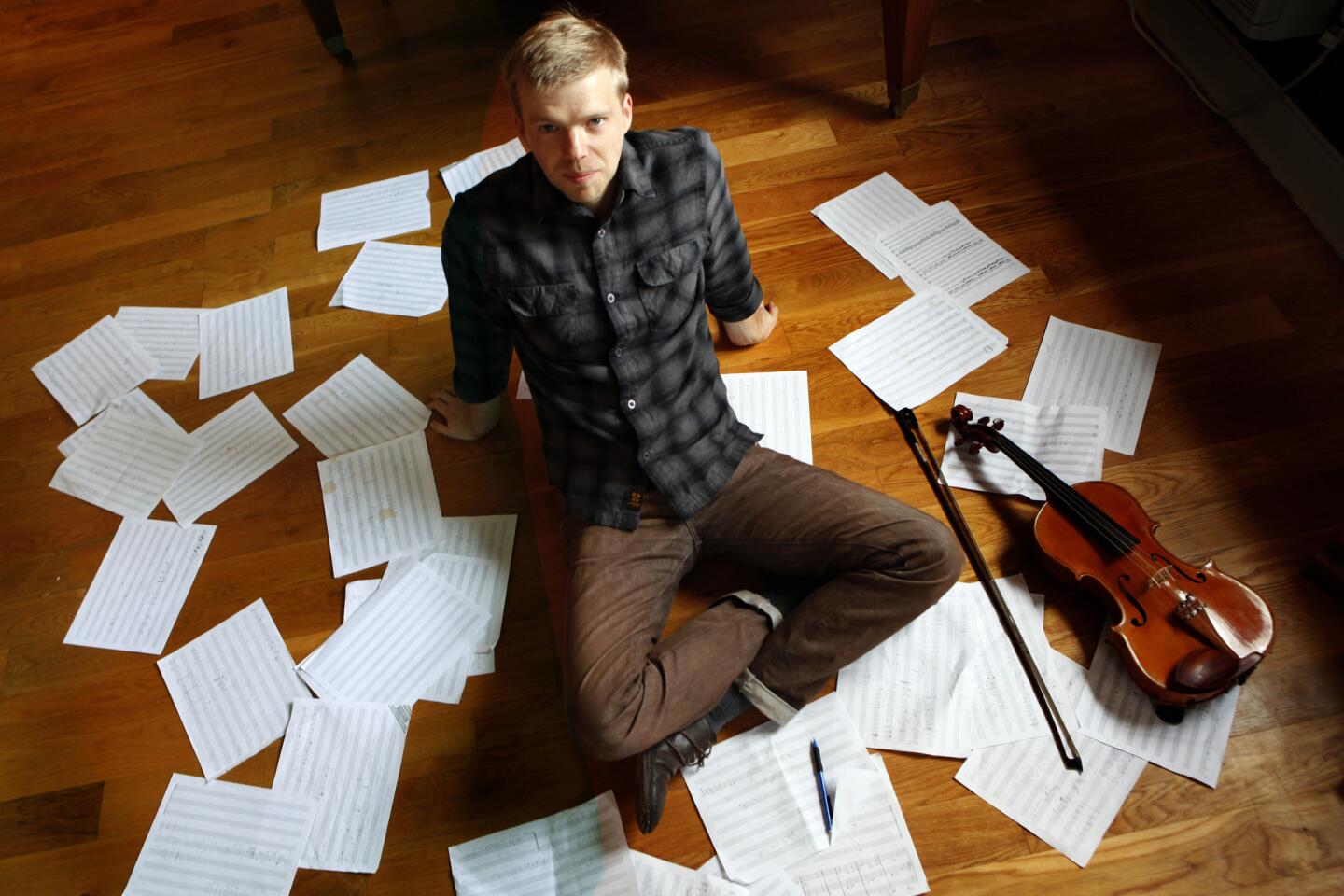
More: Composer Andrew Norman’s imagination has taken residence (Carolyn Cole / Los Angeles Times)

More: It’s no easy act for Felicity Huffman (Jay L. Clendenin / Los Angeles Times)

More: Sophie B. Hawkins channels Janis Joplin’s spirit in ‘Room 105’ (Luis Sinco / Los Angeles Times)
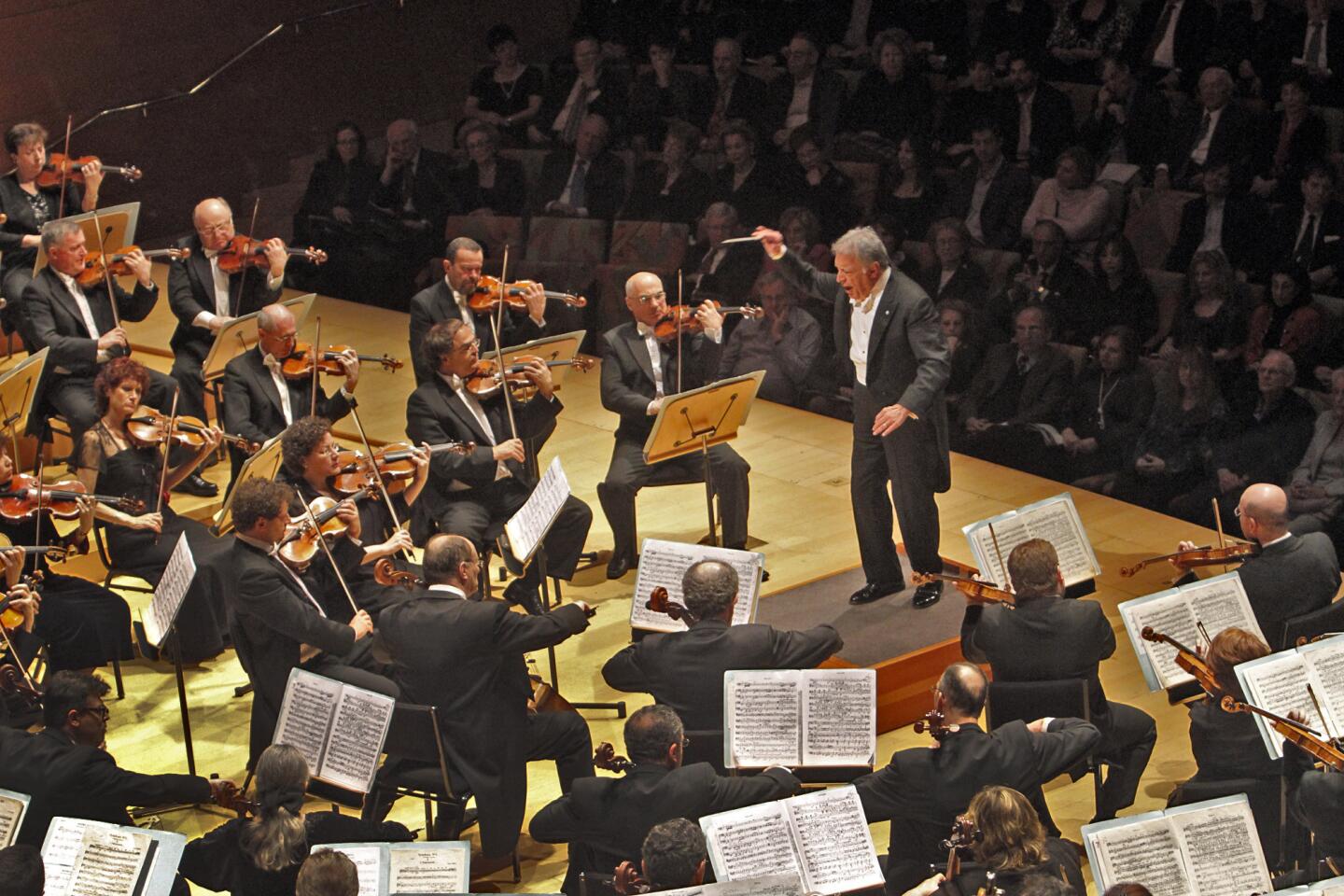
Review: Israel Philharmonic, rising above differences (Lawrence K. Ho / Los Angeles Times)
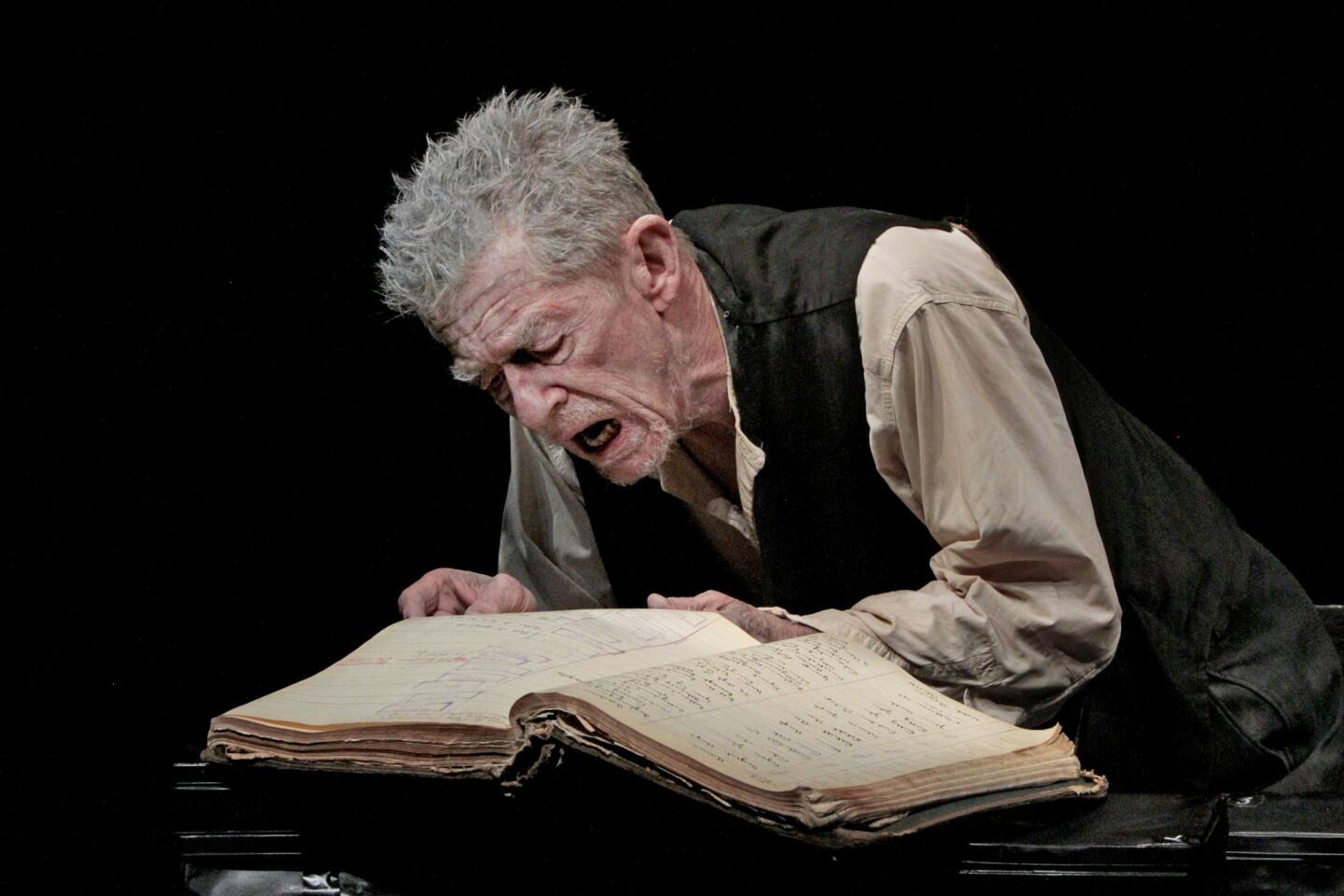
More: John Hurt plays back ‘interrupted pause’ of ‘Krapp’s Last Tape’ | Review (Anne Cusack / Los Angeles Times)

More: Teatro ZinZanni sets up a tent and fills it with elegant chaos (Lawrence K. Ho / Los Angeles Times)
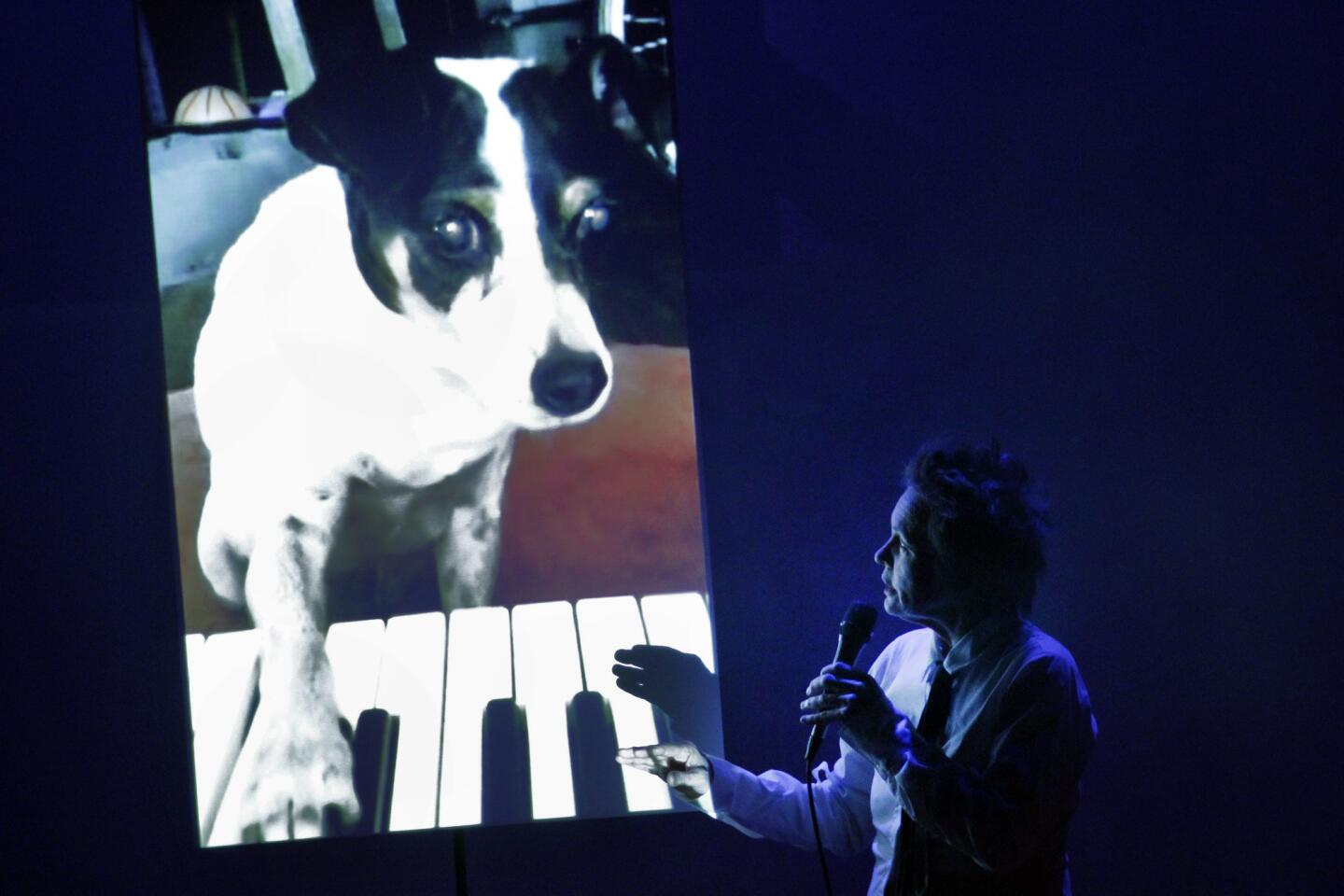
More: Performance review: A down-to-Earth ‘Dirtday!’ (Lawrence K. Ho / Los Angeles Times)
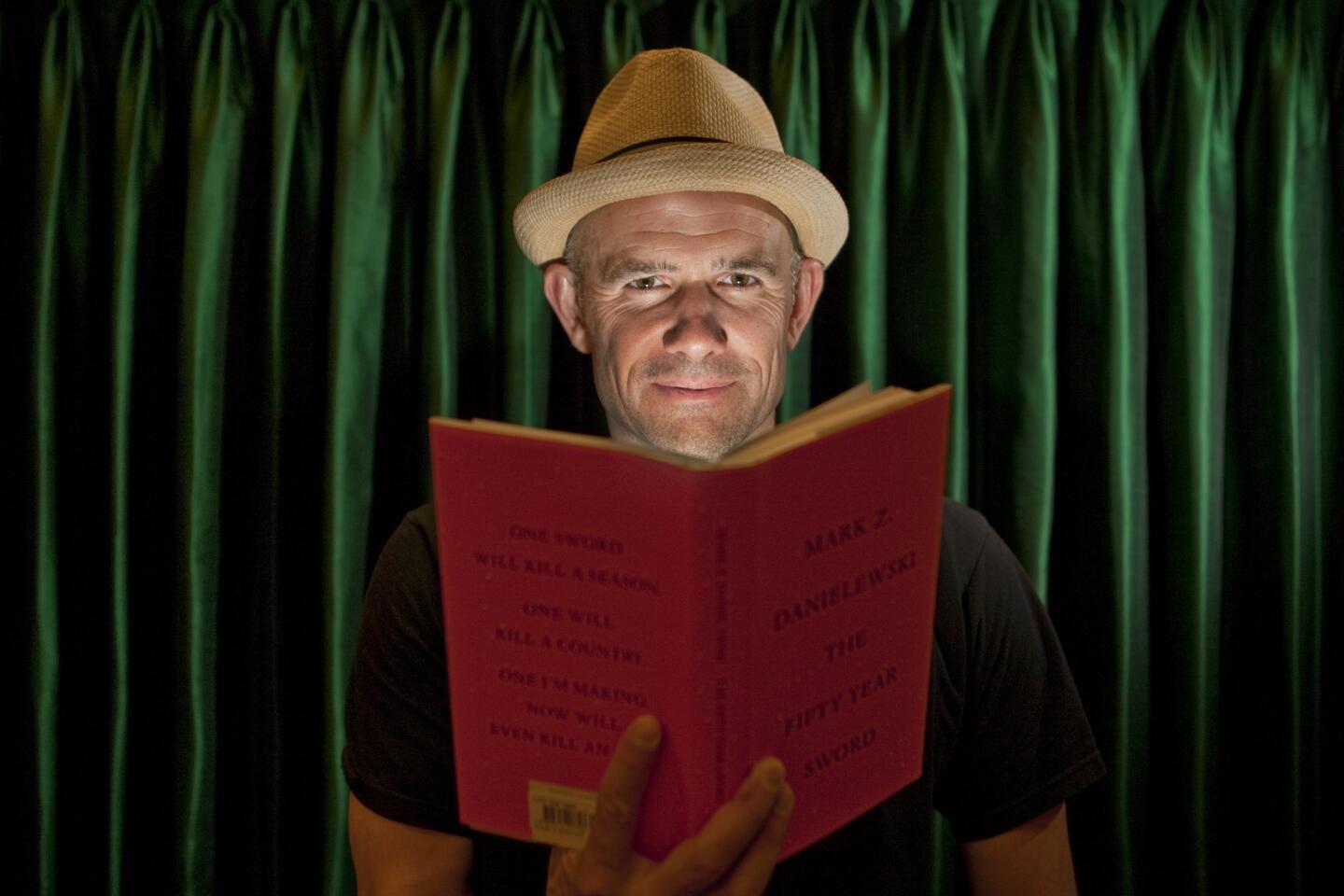
More: Mark Z. Danielewski: The writer as needle and thread (Allen J. Schaben / Los Angeles Times)
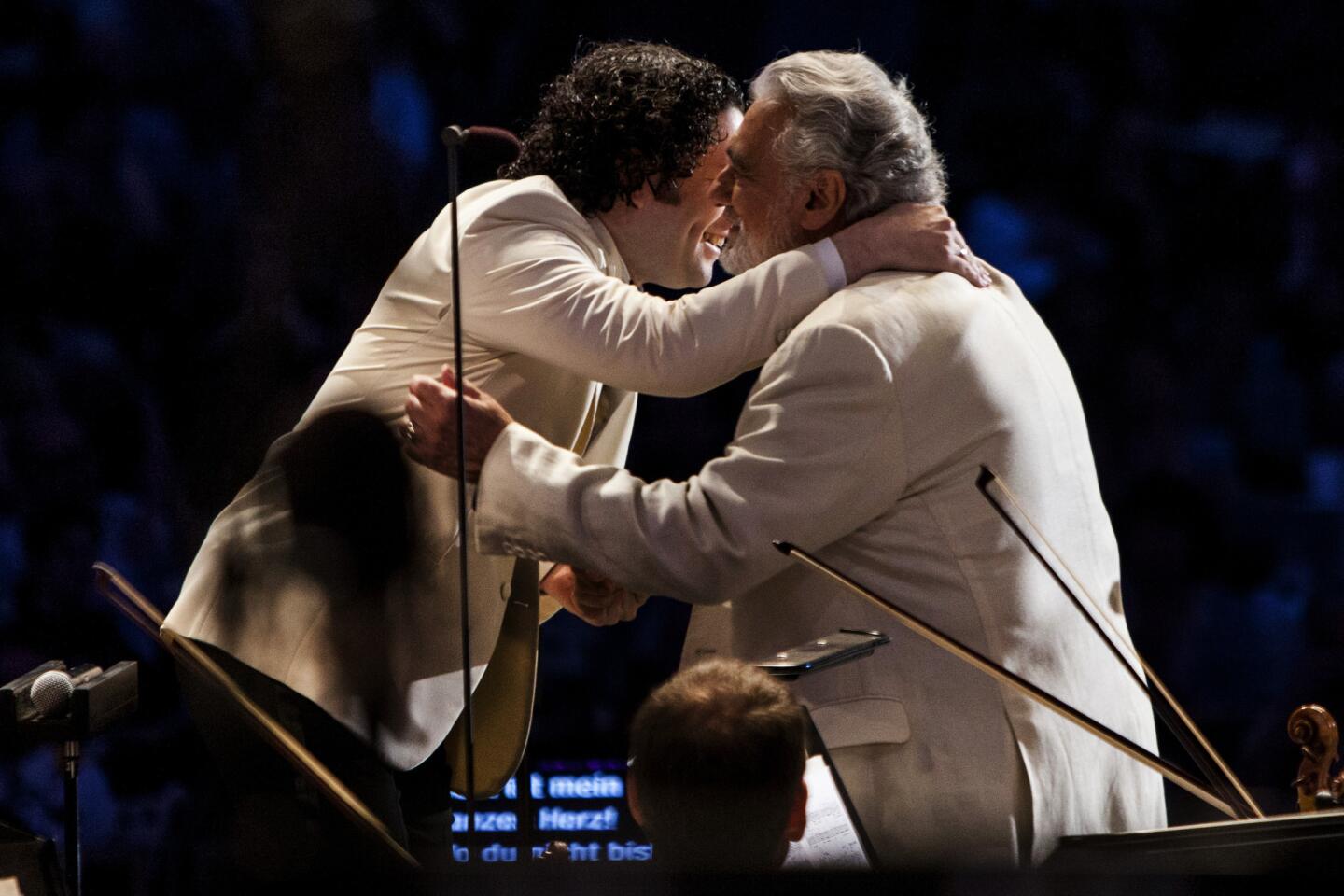
More: Gustavo Dudamel’s captivating theatrics serve the music | More photos (Jay L. Clendenin / Los Angeles Times)
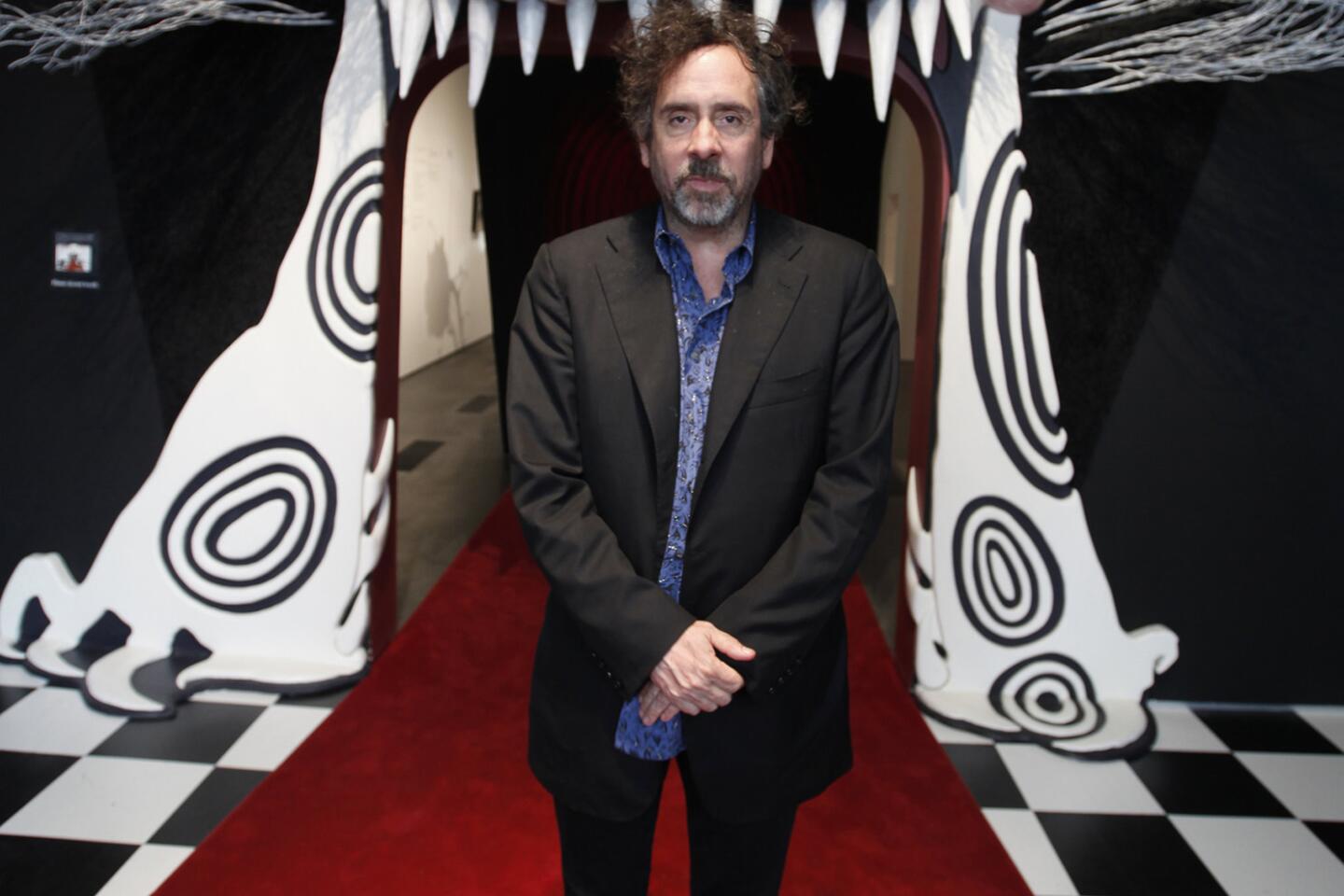
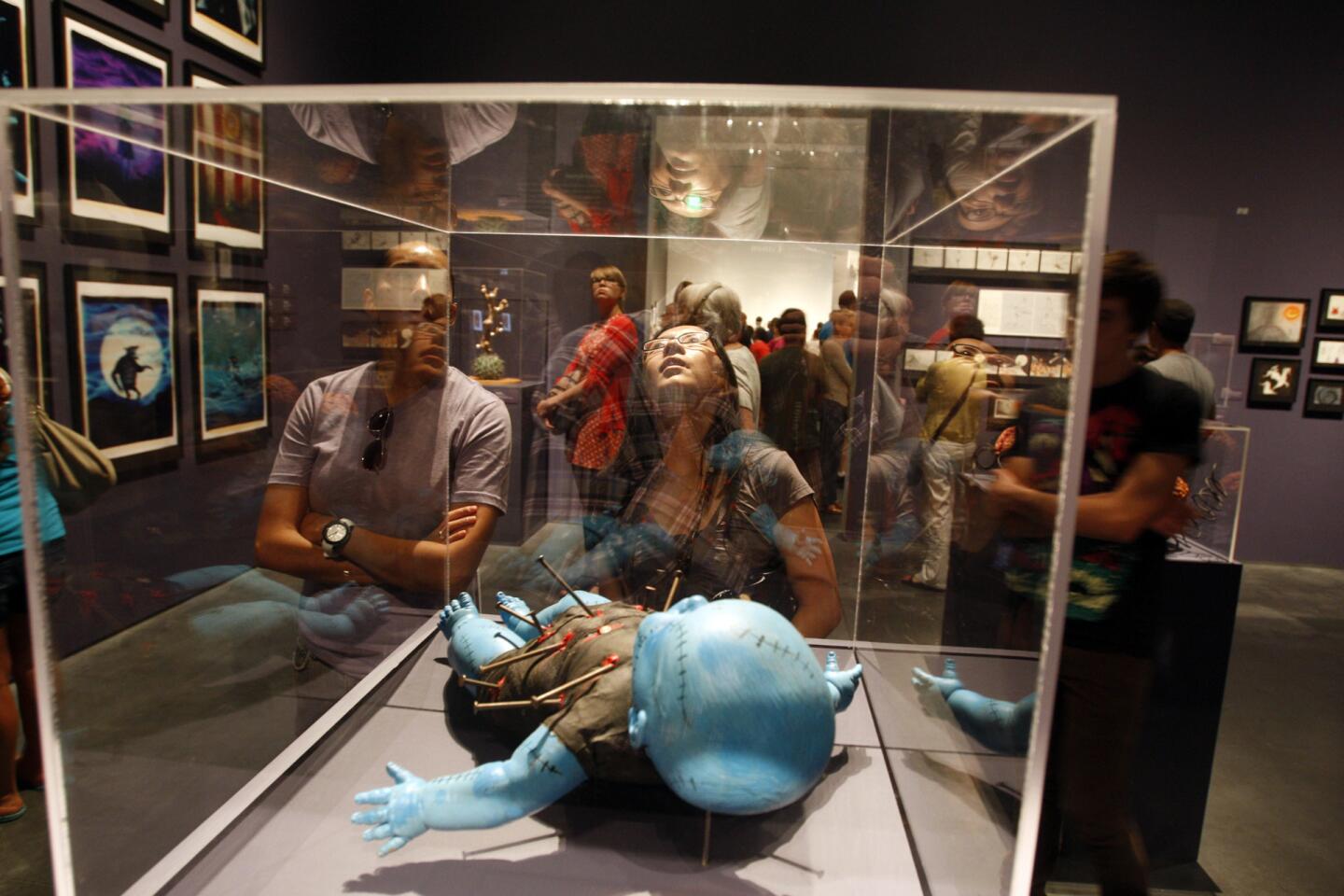
MORE: Doing the numbers on LACMA’s Tim Burton show (Gary Friedman / Los Angeles Times)
Although Pier Paolo Pasolini was best known as an Italian filmmaker, he called himself a poet and his Wikipedia entry begins by also describing him as a journalist, philosopher, linguist, novelist, playwright, filmmaker, columnist, actor, painter, political figure and all-around visionary thinker.
The Monday Evening Concerts biography of Rolf Riehm describes the 75-year-old German composer as “a political being” whose work encompasses “philosophical reflection, historical fact, myth, fairy tale, recollection, scientific argument, the elevated and the trivial, current social and political findings” and whatnot.
None of this tells us anything about the transgressive extremes of these artists, about the levels of sordid brutality or ethereal beauty to which their works could sink or rise. But there was no missing those extremes in Riehm’s “Pasolini in Ostia,” a subversive musical representation, as well as musical subversion, of reports of Pasolini’s 1975 murder outside Rome.
PHOTOS: Arts and culture by The Times
Although Riehm is a much bigger deal in Germany than in this country (he has no English-language Wikipedia entry), Monday Evening Concerts began championing him two years ago with a crazy piece about Stephen Hawking, and that led to the series commissioning “Pasolini.” The premiere was Monday night at the Zipper Concert Hall of the Colburn School.
The context is complex and, no doubt intentionally, confusing. Riehm writes in his description of his new work — a quartet for soprano, piano, cello and irritatingly loud and incessant percussion — that his model is Bach’s St. Matthew Passion. Pasolini had a Matthew obsession; his third film was his soberly sensual “The Gospel According to Matthew.”
In his quasi Pasolini Passion, which the composer calls a micro-oratorio, Riehm begins the first of four “arias” (feral vocal extravaganzas, in fact, sounding nothing like arias) with the line Bach used in his “St. Matthew”: “He was arrested.” Only Riehm’s he is no He.
The convict was a bug-eyed 17-year-old male prostitute nicknamed the Frog accused of running over Pasolini in a sex crime. Italian justice leaves holes, however, and the possibility remains that Pasolini, an outspoken Communist, was a political target and the Frog a patsy.
Whatever happened that terrible day in Ostia, no saints were on hand, and Riehm’s Passion is a revelation of a passion gone astray, a descent into hell. An arresting soprano, in all senses, Alice Teyssier was required to maintain an impossibly high tessitura for nearly half an hour. She got breaks, occasionally asked to calmly read texts or mimic eating olives and spitting out the pits. The text itself ranged from spoken description of the arrest to howls. In moments of hushed piety, Riehm required Teyssier to assume Jesus’ arm motions from Pasolini’s “Matthew.”
IN CASE YOU MISSED IT: Tony Awards nominations
Now and then pianist Rei Nakamura, cellist Jeremiah Campbell and percussionist Jonathan Hepfer — all terrific — were on her side; mostly, though, they were not and used as weapons for Riehmian shock and awe. Nothing in the score is meant to happen gradually or naturally, but rather as trauma, as if this were a Passion of startling mistakes.
We were, at least, prepared for trouble. The half-hour “Pasolini” came at the end of a long and peculiar program that began with the U.S. premiere of a related Riehm piece, “Lenz in Moscow.” Between Riehm’s premieres was a traditional piano recital by Alexander Lonquich, who is well known in Germany and has been recording for more than 30 years. But he has seldom come to the United States, and this was his Los Angeles debut.
“Lenz in Moscow,” completed two years ago, is for trumpet, trombone, piano, cello, guitar, percussion and a recorded speaker. It characterizes in again wildly unmannered outbursts the incident of the 18th century German philosopher Jakob Lenz being found dead on the streets of Moscow.
What did Lonquich playing Schumann’s “Kreisleriana,” Schubert’s short Allegretto in C minor and Janácek’s Sonata possibly have to do with Riehm? Not much, as far as the material went. But Lonquich plays spookily the way Riehm writes. There is no middle ground with him. He is a ferocious percussion player, focused and furious in his attacks on the keyboard. His other side is seamless lyricism and a heavy foot on the petal causing thick sonorities to ring long.
Lonquich chose the unkempt early version of “Kreisleriana,” rather than the smoother-edged and much more common revision, slightly tying in fantastical Schumann with fantastical Riehm. In this 35-minute series of short pieces, the pianist went straight for Schumann’s split personality, as though riffing off a line from Riehm’s “Lenz” about “infantile schizophrenic references.” It was exciting. Schubert was bathed in a soft blanket of sound. In his Janácek, Lonquich rattled the walls.
But Riehm did more. He rattled sanity and soul.
More to Read
The biggest entertainment stories
Get our big stories about Hollywood, film, television, music, arts, culture and more right in your inbox as soon as they publish.
You may occasionally receive promotional content from the Los Angeles Times.


